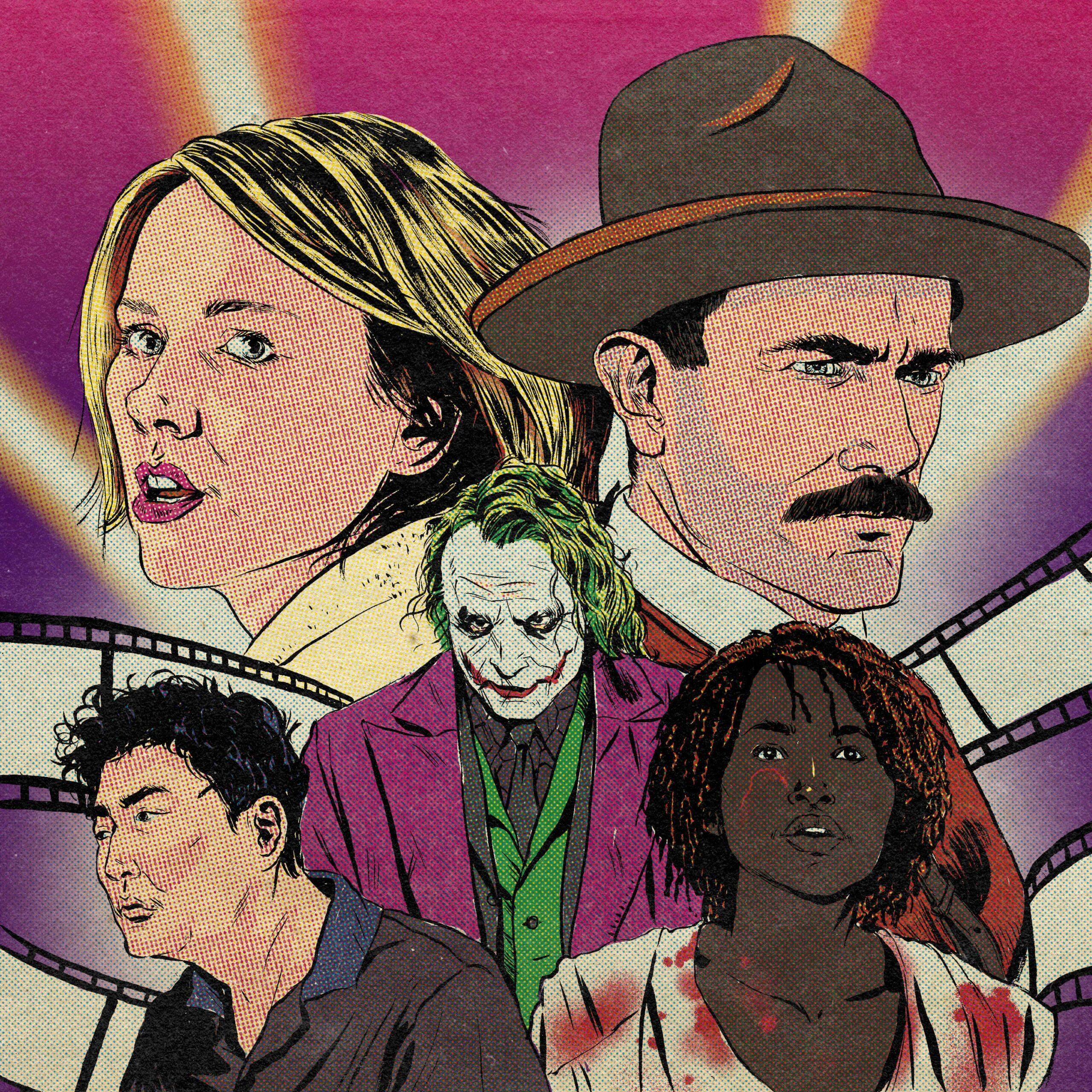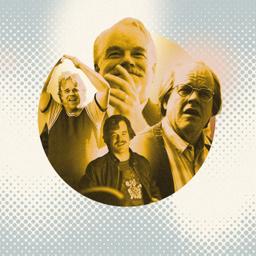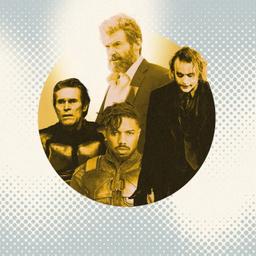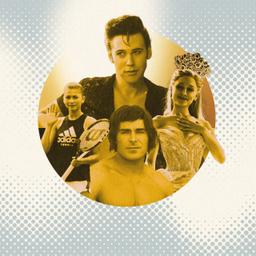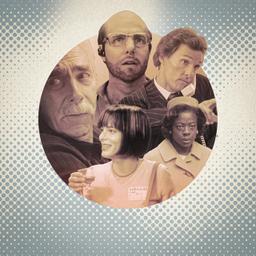The 101 Best Movie Performances of the 21st Century
We’re talking capital-A Acting, baby! From Daniel Day-Lewis in ‘There Will Be Blood’ to Mark Wahlberg in ‘The Departed,’ we’re celebrating the best of the best of the past 25 years. How do your favorites stack up?The great Philip Seymour Hoffman once compared acting to “lugging things up staircases in your brain.” “I think that’s a thing people don’t understand,” he said. “It is that exhausting. If you’re doing it well, if you’re concentrating the way you need to, if your will and your concentration and emotional and imagination and emotional life are all in tune, concentrated and working together in that role, that is just like lugging weights upstairs with your head.”
After weeks of trying to put together this list, let me tell you that we feel the same about simply figuring out the best acting performances of our time.
What you have before you is The Ringer’s ranking of the 101 best movie performances of the 21st century. When we came up with the idea, we didn't realize how hard it would be to limit the list to that number. That means that a few of our favorites are missing—and assuredly some of yours, too. (Rest assured, PSH makes an appearance here—and very high up.)
After a few weeks of balloting, back-and-forth debates, and just overall list-shaping mechanics, we feel great about where this ranking landed. However, a few notes up top.
We had only one hard-and-fast rule: only one performance per actor on the final list.
That means that while we could’ve chosen a half dozen or so Hoffman performances—alas, there is no Along Came Polly—he has only one. We made this decision for two reasons:
- We wanted to put a stamp on the performances we felt were truly worthy.
- It allowed us to get some more interesting entries onto the list. Rather than loading it up with Cate Blanchett or Denzel Washington roles, we were able to get some smaller performances on here.
But while the final list had only one role per actor, the balloting process offered us many to choose from. Here’s the total list of actors who received votes for three or more performances from our committee:
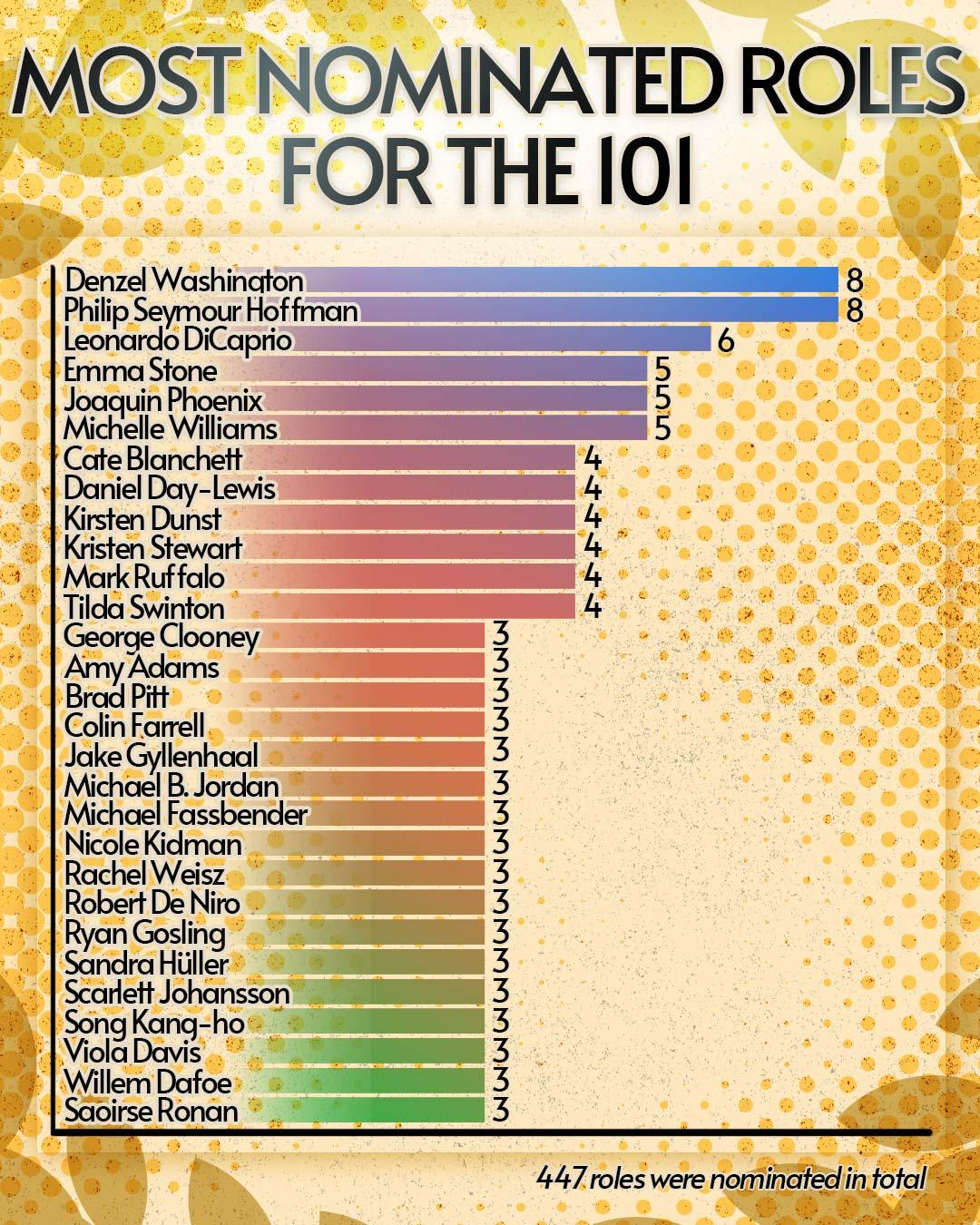
Most of these actors landed a performance on the final list. A few, however, did not. You’ll have to read on to find out who.
There are only human performances—no animals.
This wasn’t a rule so much as a practicality. Look, I love Snoop from Anatomy of a Fall as much as the next cinephile, but it was hard to get Messi on here over, say, Julianne Moore. But if you say you want a list of the best animal performances, let’s just say, we’re listening.
Oscar wins and nominations had little bearing on our end results.
Here’s a breakdown of our list by who took home the most prestigious hardware in Hollywood and who didn’t:
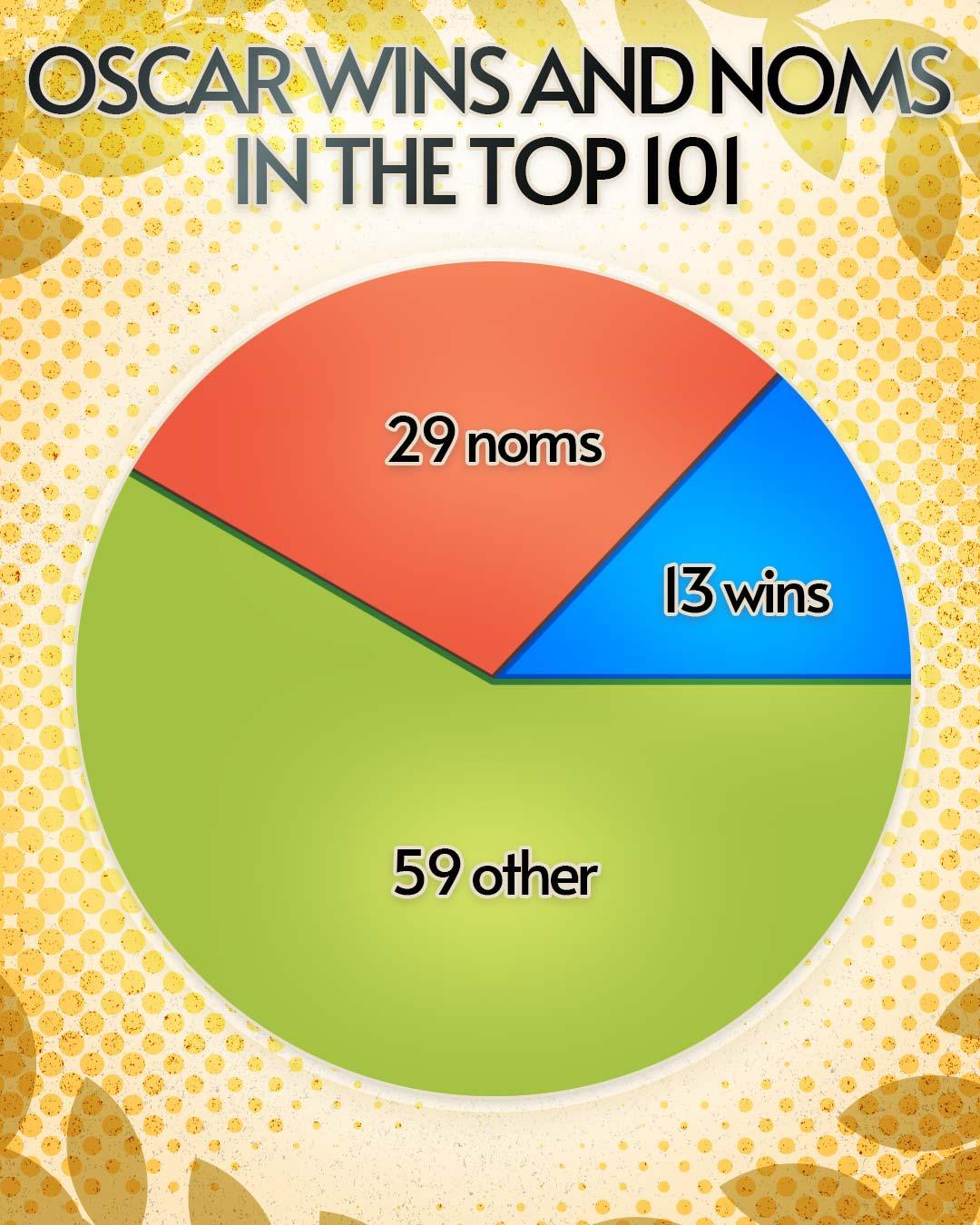
As you can see, nearly 60 percent of the entries below weren’t even nominated for an Oscar. That includes our no. 1.
In other words: Awards are cool, but we’re not gonna let them decide things for us!
Comedy matters.
The Naked Gun and Friendship may have proved this year that funny people still belong at the cineplex. But they never left the big screens of our hearts. I mean, you look at what some of these comedic actors are doing and tell us it’s not every bit as impressive as the prestige bait that racks up nominations.
We expected to have some nostalgia bias, but …
Turns out the period from 2016 to 2019 was the most fruitful for our list. Here’s the breakdown:
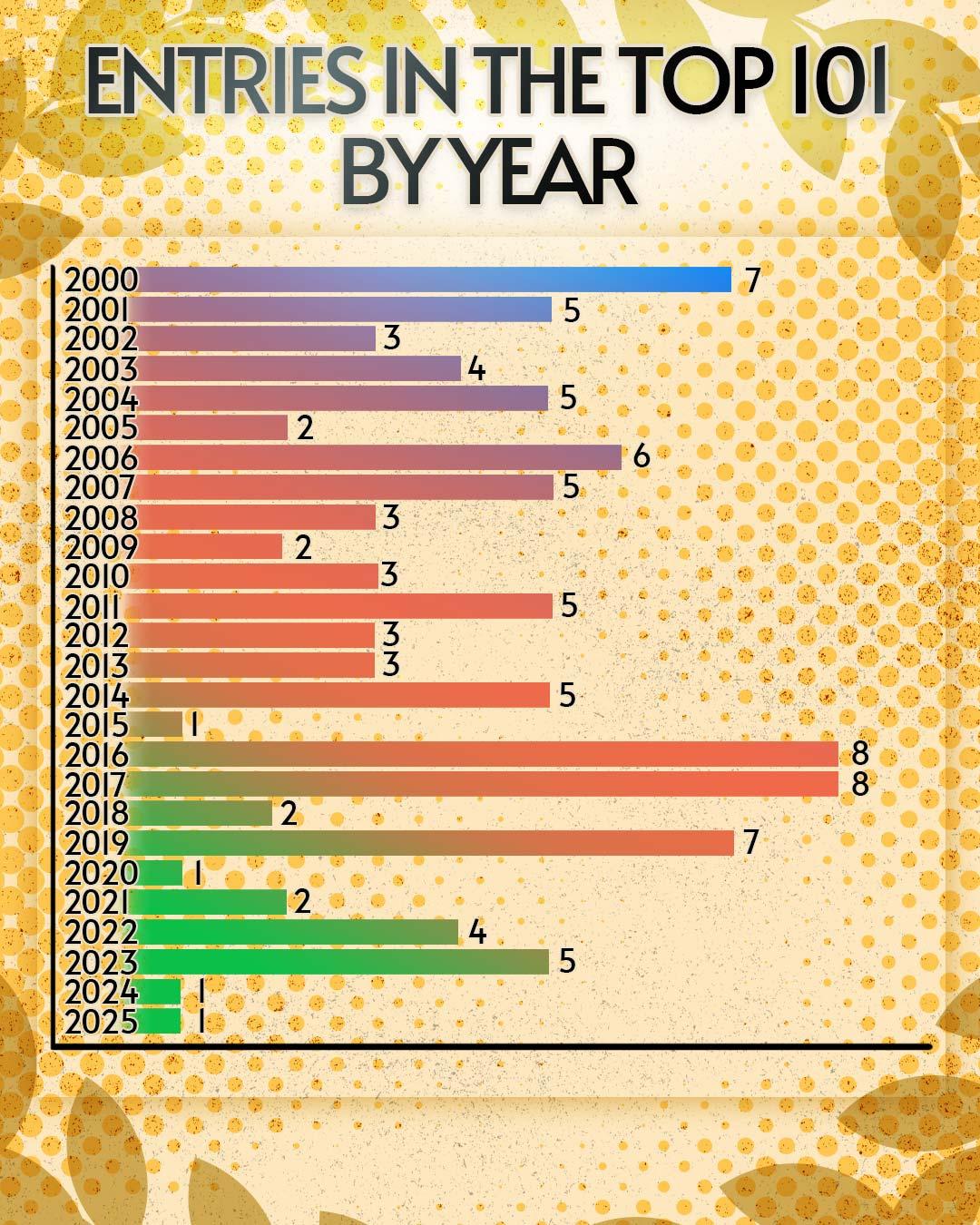
2016 and 2017 led the way with eight entries apiece, while 2019 had seven. (We’re never gonna have a movie year like that one again, huh?) 2022 and 2023 also claimed four and five spots, respectively, which is in line with the best of the 2001-05 period. Even 2025 has a performance here—and that’s before the awards-season favorites begin to roll out in the next few weeks. (Again, not that those awards are gonna influence us or anything.)
So without further ado, let’s lug some things down the staircases of the brain and see how this all shakes out. And let’s start with an old favorite of The Ringer, both on the screen and on the court. —Justin Sayles
101
Kevin Garnett as himself, Uncut Gems (2019)
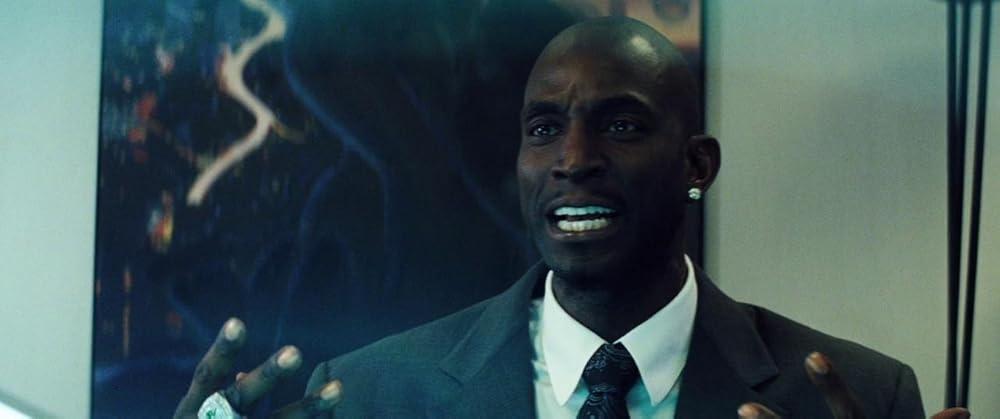
The most effective actors are able to convince an audience that what they’re watching is real. What performance? Every word you hear, every move you see, every speck of spittle that might as well span the screen and smack you on the cheek is 100 percent authentic, volatile, spontaneous energy. Anything can happen. Anything is possible.
Forget athletes—I don’t think anyone has ever “played” themselves with more comfort and authority than Kevin Garnett did in Uncut Gems. It’s simultaneously a revelation and exactly what would happen if a camera followed KG around the Diamond District on a spring day in 2012. Garnett’s brake-free intensity amplified the relentless boil of an atmosphere in which Uncut Gems flourished. “He’s incredible,” Josh Safdie said. “He tells stories in a way that’s so engaging. And it’s so three-dimensional in a weird way. He’ll set up where everybody was sitting, what was happening. Then he shifts the stories based on who’s paying attention. He’ll give it a shape. It’s like, ‘OK, this guy can act. That’s acting.’” On the surface, it all came naturally, which makes sense. For KG, natural is a performance. —Michael Pina
100
Ben Affleck as Nick Dunne, Gone Girl (2014)
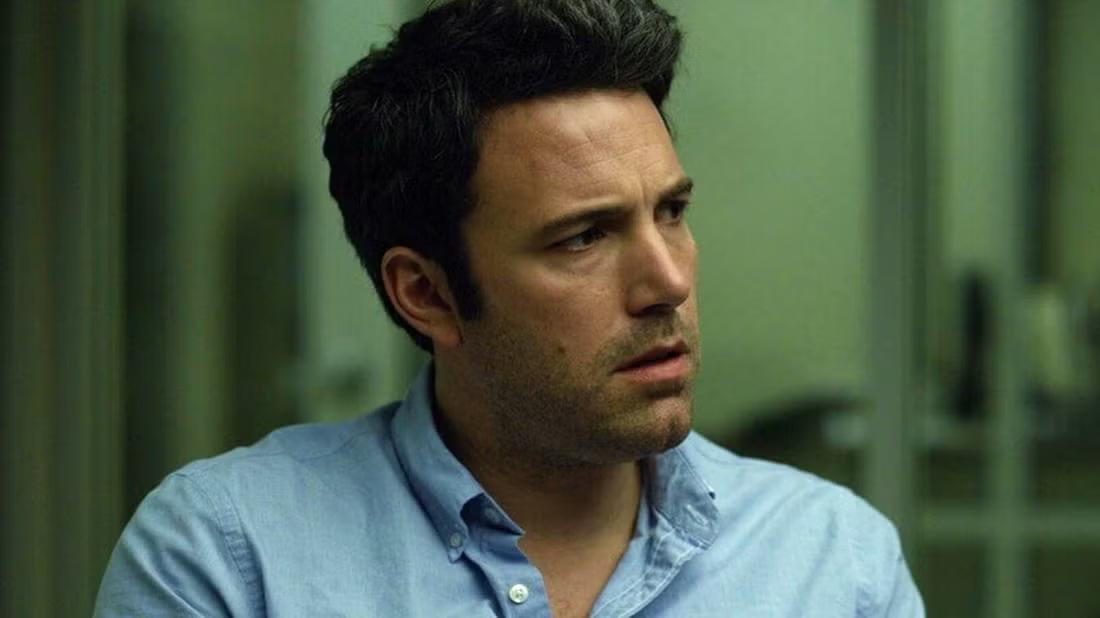
Notoriously, Ben Affleck and David Fincher got into a bit of a Gone Girl tussle over Affleck’s refusal to wear a Yankees hat in the film. After a four-day shutdown, they compromised on a Mets hat, and Fincher called him unprofessional in his iconic DVD commentary. But Affleck wasn’t there to be a breeze—he was there to give the complex, enigmatic performance that only a man capable of being complex and enigmatic while juggling four Dunkin’ iced coffees could give. Author Gillian Flynn’s story of Amy and Nick Dunne was inspired by the real-life media coverage of Laci Peterson and the strange optics of her seemingly perfect husband Scott Peterson—who was ultimately convicted of her murder in 2004—and his grief … or lack thereof. The ultimate visualization of that eerie emptiness is Nick Dunne, who, though worshipped by the media and rubbernecking volunteers for his giant, handsome face, makes the strange, split-second decision to smile—nay, smirk—for a photo in front of his wife’s missing poster. When Fincher read that scene in the book, he could think of only one giant, handsome face to pull it off. Indeed, Affleck’s no-I-definitely-did-not-kill-my-wife look perfectly nailed the smarm-in-pursuit-of-charm—the mark of a performer using every tool in his occasionally tool-ish arsenal. —Jodi Walker
99
Zac Efron as Kevin Von Erich, The Iron Claw (2023)
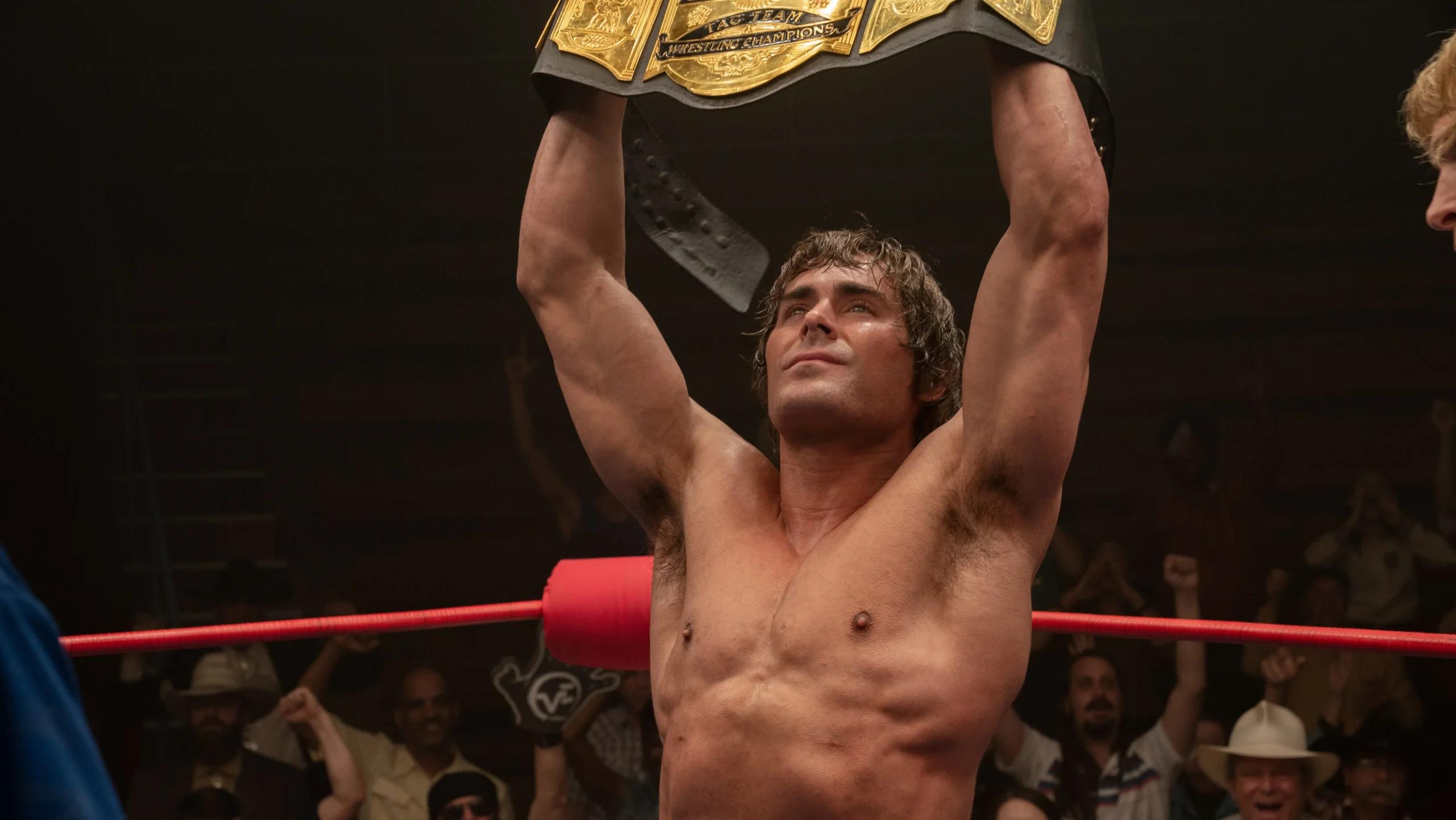
Perhaps the final scene of the movie is enough of an argument? Sitting in his backyard as his boys run around, his brothers gone, reunited in the afterlife, Kevin Von Erich breaks into tears. The foundation of this moment of outpouring, of course, is two hours’ worth of simmer from Efron. It’s a career-defining turn in which the actor best known for High School Musical amplifies and shades his trademark charisma and pushes humanity, hope, and pain through a character who, by definition, is oppressed to the point of oblivion. Kevin is The Iron Claw’s center, and even going toe to toe with Holt McCallany, Harris Dickinson, and Jeremy Allen White, Efron never cedes that ground. The day I stopped believing in the Oscars was the day the Academy failed to nominate this performance. —Andrew Gruttadaro
98
Keke Palmer as Emerald Haywood, Nope (2022)
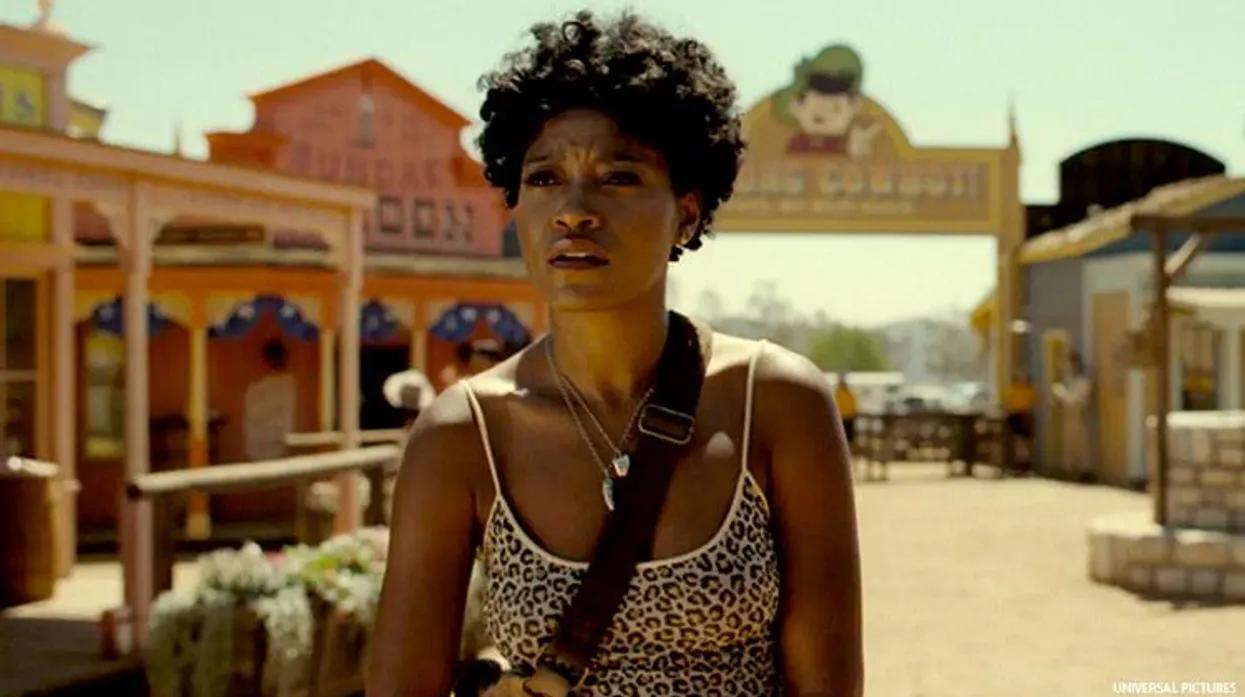
First of all, the dap. Second of all, the outfits. Keke Palmer’s Em Haywood enters Jordan Peele’s sci-fi-horror masterpiece Nope like a lightning bolt, rushing in as she’s late to the family business’s animal wrangler safety presentation on a movie shoot. Her eternally chilled out brother OJ (Daniel Kaluuya) is about to mumble his way through the spiel in her absence, but here comes Emerald to the rescue, absolutely demanding the camera’s attention. From her first moment, it’s clear we’re witnessing a master class in unbridled energy and pure magnetism (“I do a little singing on the side”). Sometimes you find an actor so charming, all you have to do is point the lens and let them cook. Just let her wax poetic about the Oprah shot and taunt a praying mantis with Sour Patch Kids. Of course, when things get serious, Palmer’s just as game to shift her tone—like when fear dances around her eyes as blood pours down on the Haywood home, or when she puts her back into turning the lever on a coin-operated wishing well camera to capture the perfect shot of Jean Jacket. But it all culminates in one last primal cry, a dispatch from her fiery spirit to claim victory on the foremost task at hand: Nobody fucks with Haywood, bitch. —Julianna Ress
97
Rachel McAdams as Regina George, Mean Girls (2004)
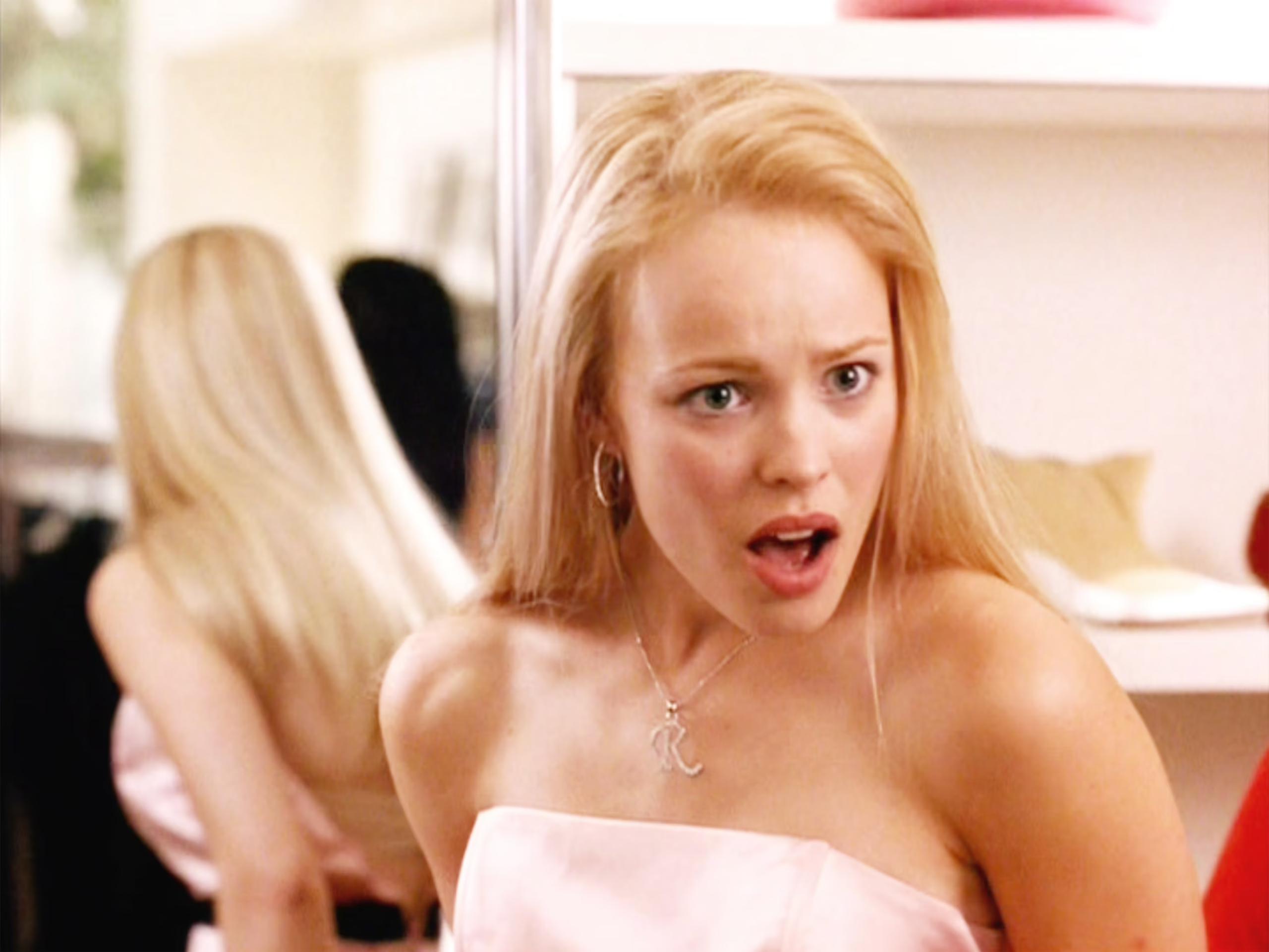
I want to be very clear that Rachel McAdams didn’t just originate the iconic role of Regina George in Mean Girls in 2004—she also originated the iconic role of Allie Hamilton in The Notebook two months later. And part of what makes the Regina performance such a marvel upon reflection is how completely different it is from the warm depth of Allie. Regina is as mean as she is charming, as compelling as she is revolting—and that complicated tightrope is walked perfectly by McAdams in a perfectly 2004 kitten-heel sandal. Mean Girls—with its teenage animal kingdom and occasional bus hits—is over-the-top at times, but McAdams’s Regina isn’t a caricature. She is a girl so cool, so captivating, so gifted in the backhanded compliment that you too would wear army pants and flip-flops or cut nipple holes in your tank top simply because it would get you closer to her. Likewise, from the moment I heard McAdams say, “Get in loser, we’re going shopping,” I knew I would follow her anywhere (even if just for the promise of one perfect line read) and that every teen movie would be chasing Regina’s giant devil-horned shadow for decades to come. —Walker
96
Robert De Niro as William King Hale, Killers of the Flower Moon (2023)
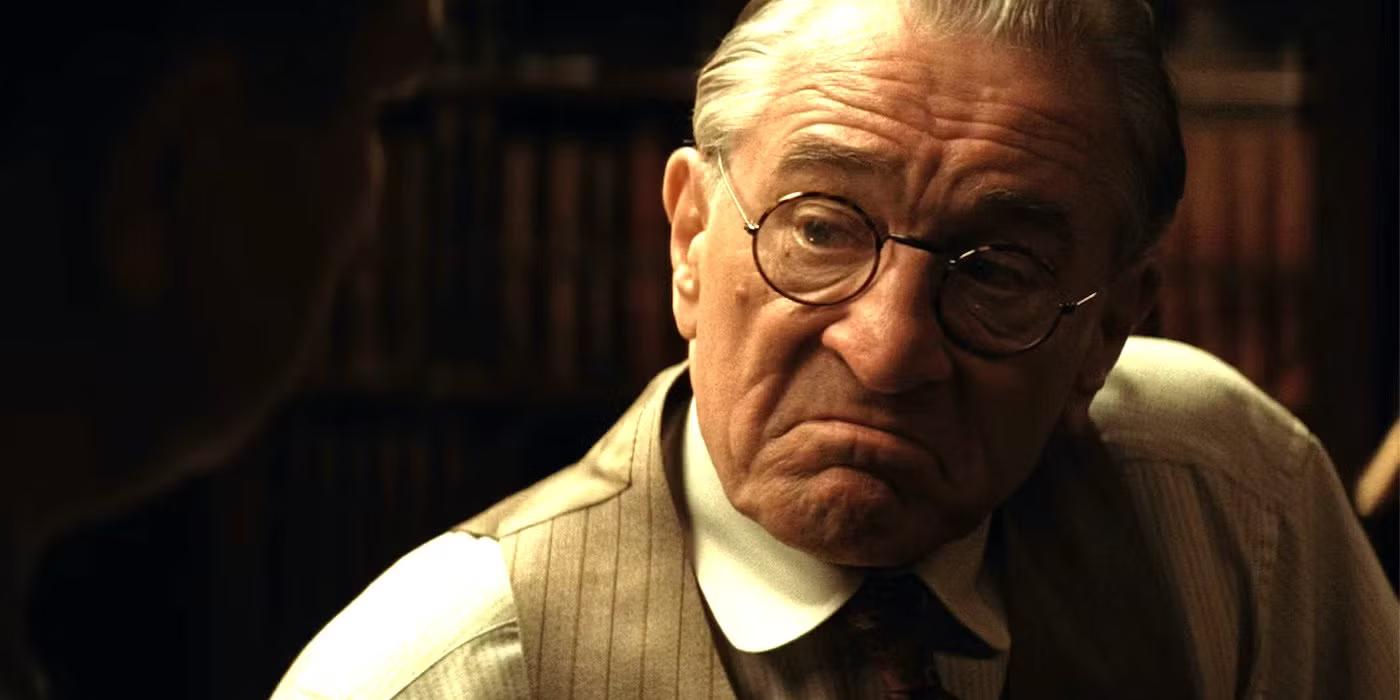
This is, it should be said from the jump, a messy construction. Love stories mined from annihilation. Put aside whether the foundations of Killers of the Flower Moon are faulty (I don’t believe they are) or whether the builder, Martin Scorsese, had all the right permits (I believe he did). Focus instead on this one section, this lone pillar. Few can claim the position that De Niro had, by the dawn of the century, solidified. This is not his best, but William King Hale—an architect of vicious destruction, wrapped up in folksy paternalism—is damn near close.
De Niro’s played unwell before. Murderous. Disturbed. But what he does in Killers is so subtly brutal, so altogether ordinary, so despicably banal, it nearly capsizes the film itself. You can’t stop looking at it. At his greatest, De Niro’s always been concerned with the American id, the darkest corners of our national consciousness. He mines it here. Pulls it out. Covered in blood. Picture clean. He’s never been more horrifying. —Lex Pryor
95
Jake Gyllenhaal as Louis Bloom, Nightcrawler (2014)
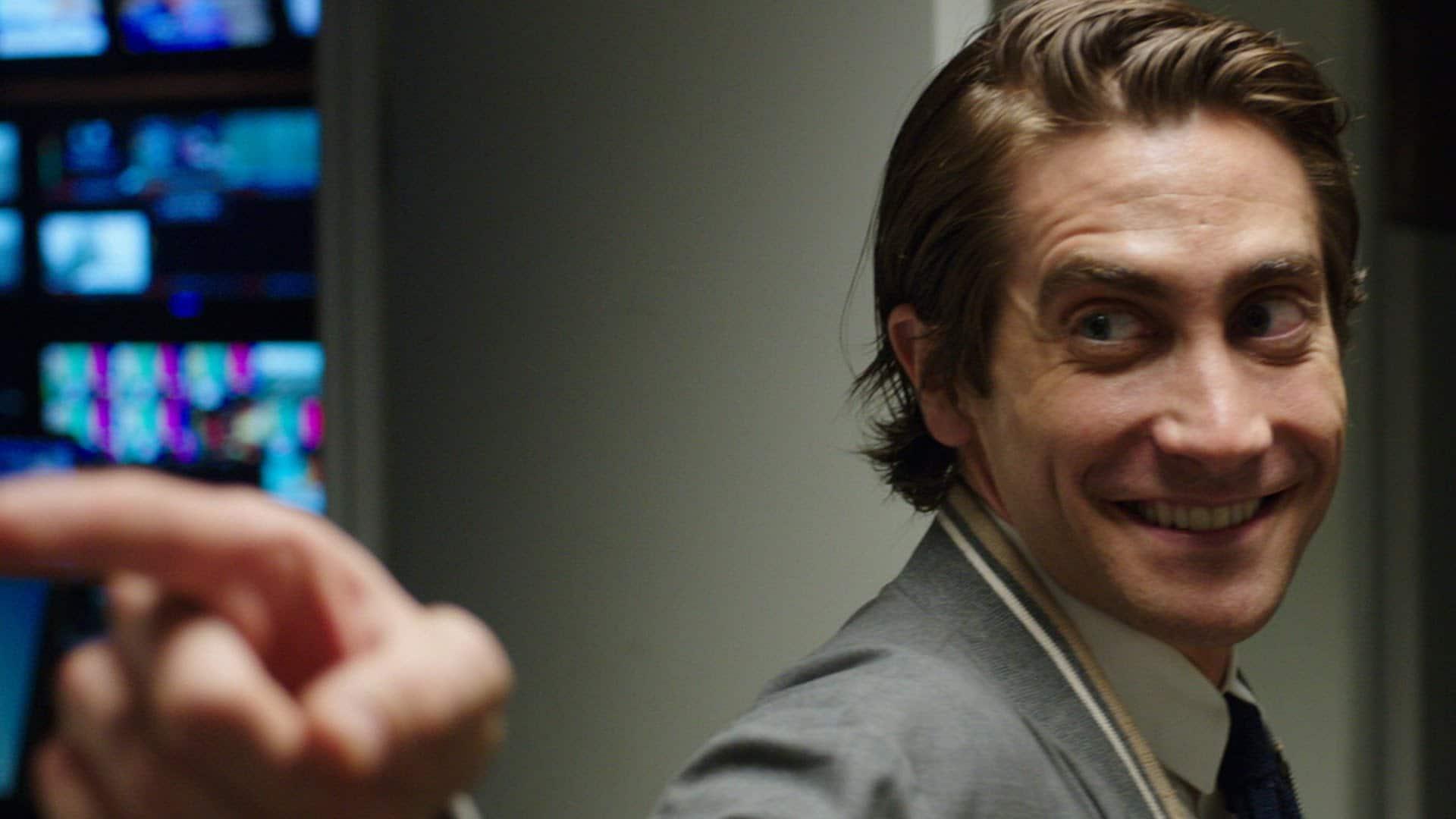
Lou Bloom is so slimy that I can smell him. Thanks to Jake Gyllenhaal, the psychopath with the slicked-back hair and a video camera is as, well, wormy as possible. Lou’s gross. But you can’t take your eyes off him—and not just because of Gyllenhaal’s good looks. From the first scene of the movie, it’s clear that this is a man who will do anything to make it. Gyllenhaal makes the character’s desperation, violent anger, warped sense of humor, and unscrupulousness feel very real.
Lou’s manipulations were so profoundly messed up that they eventually started to become funny to Gyllenhaal. During filming, he and the movie’s director kept cracking up. “Dan Gilroy and I were laughing pretty much the whole movie,” Gyllenhaal told MTV in 2014. “We knew we kinda landed on it when we'd finish a take and bust up laughing." —Alan Siegel
94
Charles Melton as Joe Yoo, May December (2023)
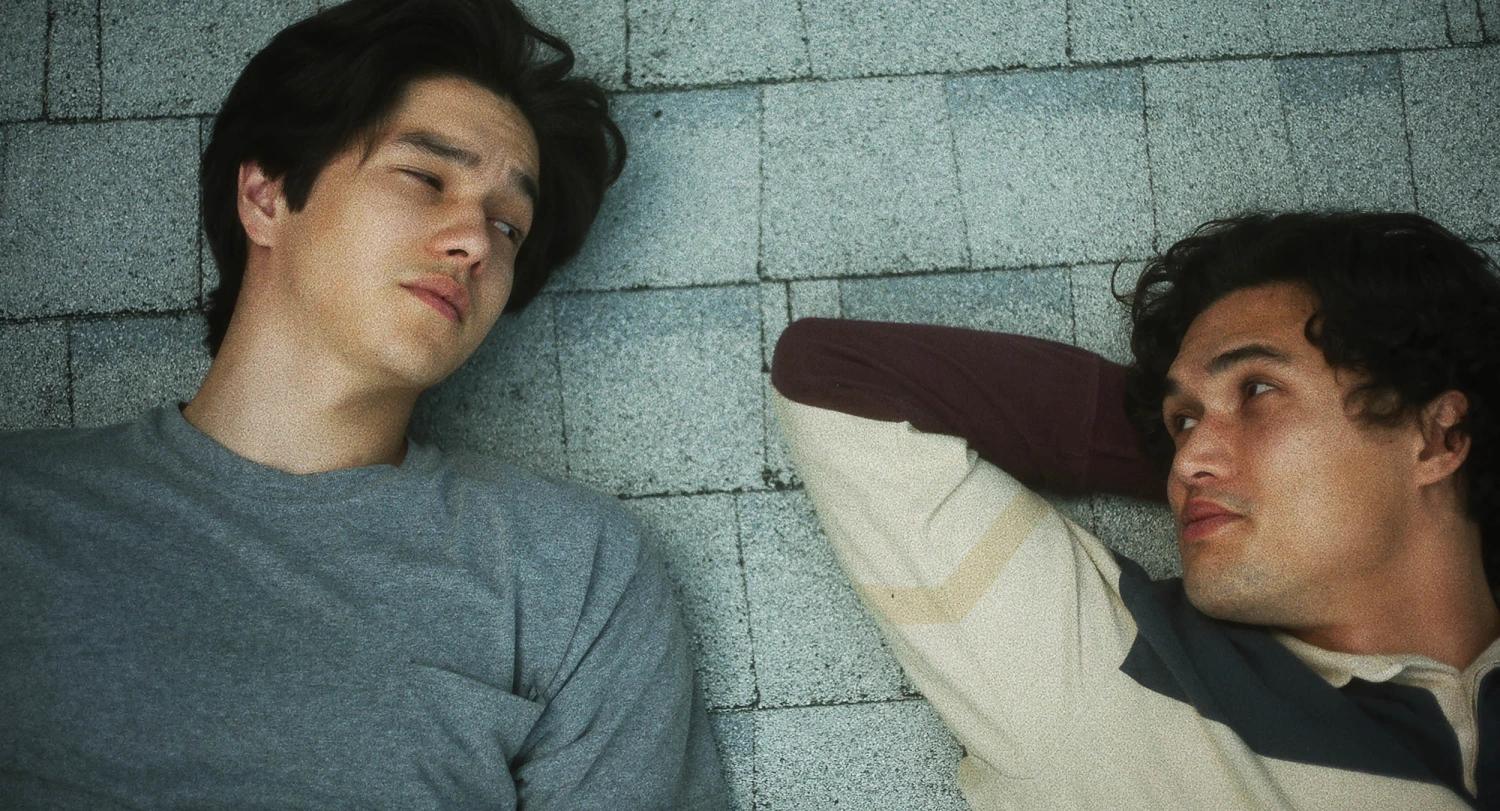
There is an argument to be made that Charles Melton’s Joe, rather than Natalie Portman’s Elizabeth or Julianne Moore’s Gracie, is the protagonist of May December. Todd Haynes’s fictionalization of the Mary Kay Letourneau scandal follows Elizabeth as she spends time with Gracie and Joe while preparing to portray the former in a cheap docudrama about the student-teacher relationship that made tabloid headlines and survived Gracie’s incarceration. We see Joe’s teenaged children clock his emotional age as being younger than theirs; we follow him as he seeks an illicit connection with someone his own age and is flummoxed by the contours of adult relationships. He and Gracie are both flailing, but her obvious maladjustment (and the uniform skepticism about their marriage) forces him to sublimate his. Melton makes sure it ripples just beneath the surface. —Paul Thompson
93
Mark Wahlberg as Sgt. Sean Dignam, The Departed (2006)
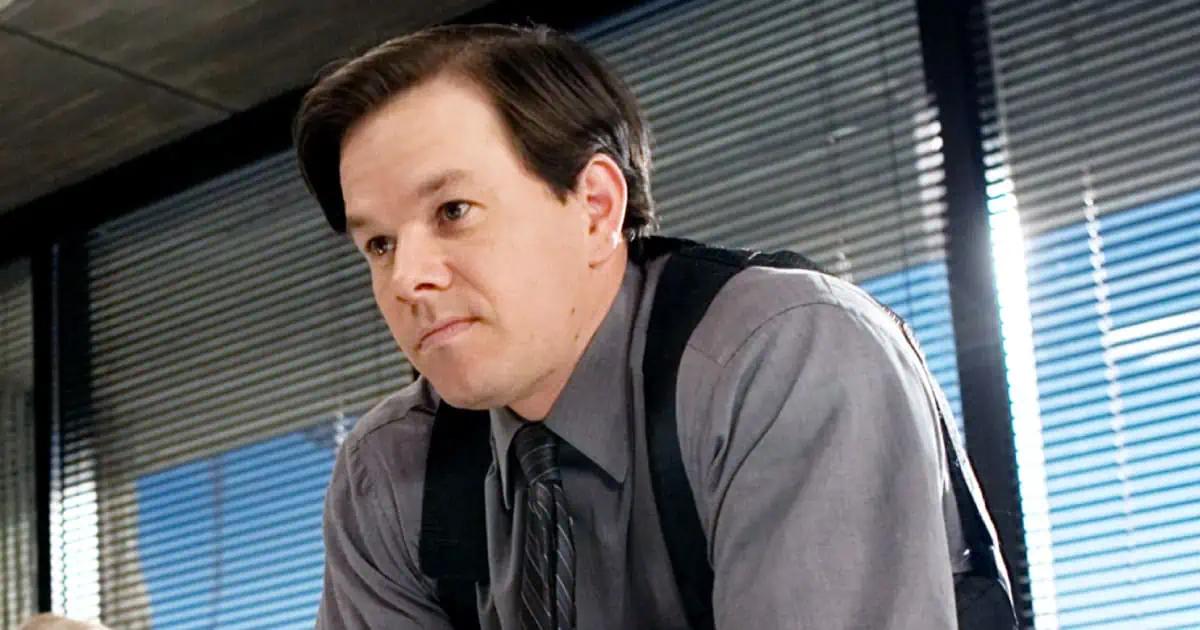
The role any actor was “born” to play is a trite compliment that doesn’t typically mean anything. But for Mark Wahlberg, Sergeant Dignam is absolutely the role he was born to play—an unforgiving, overconfident Masshole whose pitch-perfect Boston accent goes hand in hand with the bullshit detector he unleashes on everyone else in the movie. Every line is good for a laugh. Every line heightens the scene’s intensity.
It’s the only Oscar-nominated performance of Wahlberg’s career. It’s also, arguably, his best: a portrayal that allows him to toe the line between being the perpetual butt of every joke and a roast-master general. In a movie in which just about every relevant character is two-faced and living a double life before they die, it’s not a coincidence that Dignam—through and through true to himself as an arched-eyebrow skeptic—gets to be the last man standing. —Pina
92
Kate Winslet as Sarah Pierce, Little Children (2006)
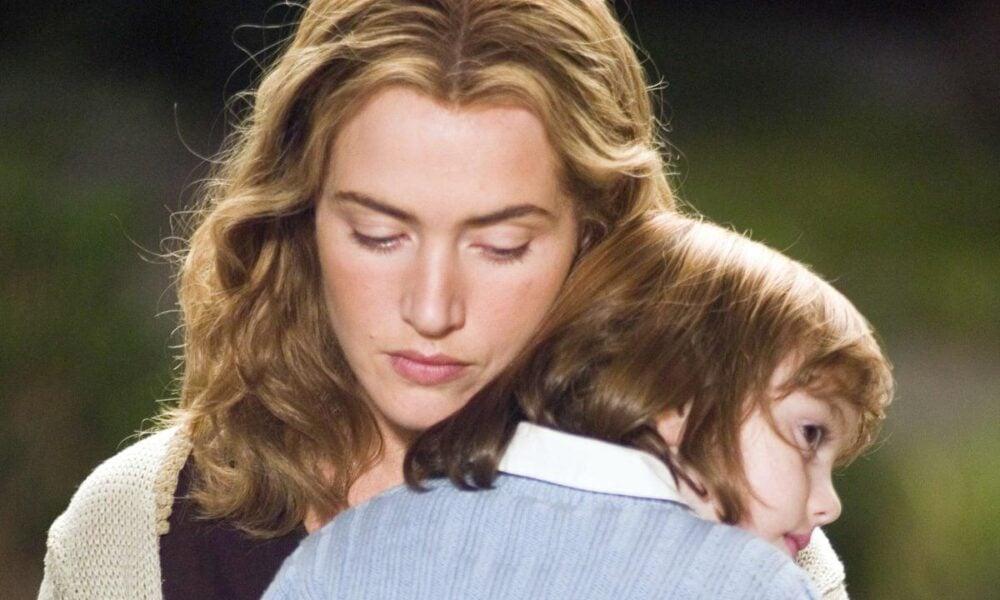
By 2006, the suburban ennui comi-drama had become a little passé. In the liminal space between the start of two U.S. wars in the Middle East and the burst of the housing bubble, the idea of “horny but bored well-to-do married people try to feel alive” seemed like the domain of previous era, when American Beauty somehow won Best Picture and Happiness seared a mark on the soul of anyone who watched it. (The latter is a compliment, by the way.) So it’s largely a testament to Kate Winslet’s work in Little Children that Todd Field’s second feature manages to transcend those trappings. She plays something of a 21st-century Emma Bovary, smoldering in her protests against her own life, making her adultery seem like an act of revolution. As Sarah Pierce, she alternates between assured (kissing Patrick Wilson’s would-be skater dad without a care about who sees it) and desperate (watching her affair partner like an amateur PI) before snapping back to reality at the film’s close. But the fact that she was able to take us outside that reality at all is why this performance still resonates. —Sayles
91
Léa Seydoux as Gabrielle, The Beast (2024)
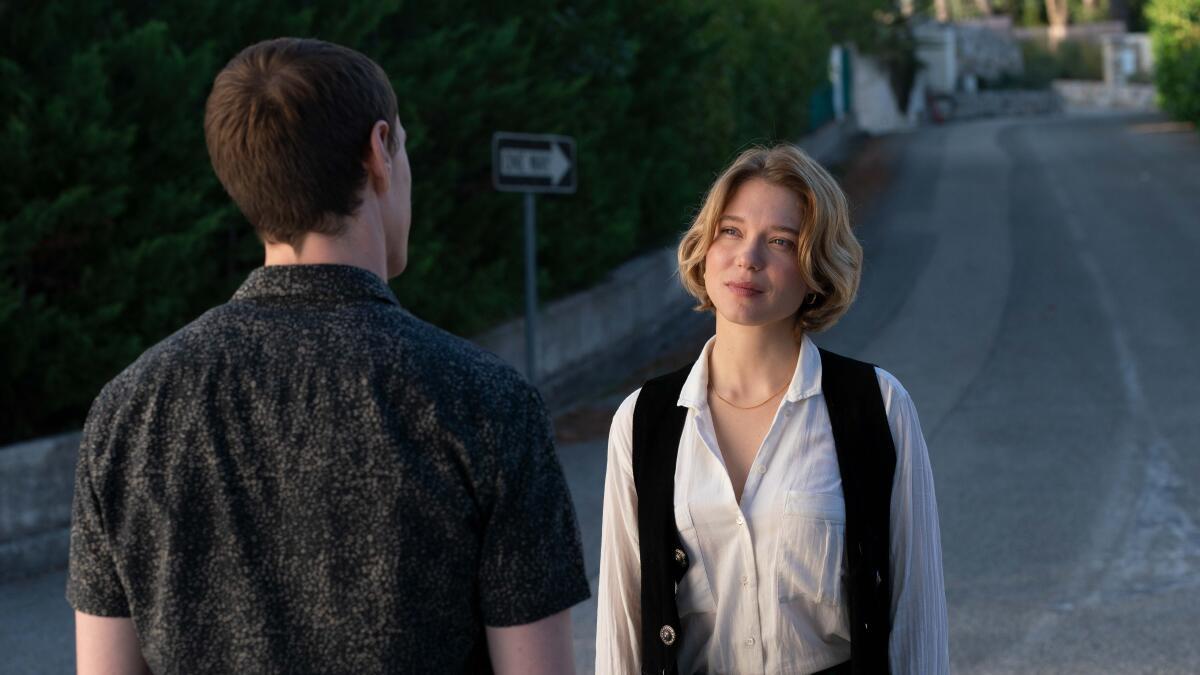
I can still hear that scream. It’s the most viscerally upsetting movie ending I’ve seen since Mulholland Drive (which it feels of a piece with). Léa Seydoux’s Gabrielle is coming down from a mind-bending procedure through time in an attempt to “purify” herself by eliminating her pitifully human emotions in a society taken over by AI. The procedure doesn’t take, so she’s stuck with the darn things anyway. She encounters her generational soulmate (or maybe her perpetual death knell) in Louis (George MacKay), believing this is finally the timeline in which they get to be together. But his coldness and glazed-over eyes reveal it all: He’s undergone the procedure, leaving him emotionless and, crucially, unable to truly love. It’s there that Gabrielle cries out in anguish—not just for the loss of Louis, but for the curse of having a heart in a world that’s surgically extracted its own.
Seydoux’s stoic exterior has made her suitable as an icy villainess in Mission: Impossible or as a frequent member of Wes Anderson’s cast of stilted characters, but in Bertrand Bonello’s The Beast she both inverts that quality and pushes it further. Her outward apathy masks a person who feels deeply and tragically, and try as she might, she has never been able to outrun her humanity, all the way from 1910 Paris to 2014 Los Angeles to a 2044 AI lab. That scream is the culmination of it all—the realization that she’s doomed to a cycle of pain, to unfulfilled love, to simply feel forever. It’s still ringing in my ears. —Ress
90
Bill Murray as Bob Harris, Lost in Translation (2003)
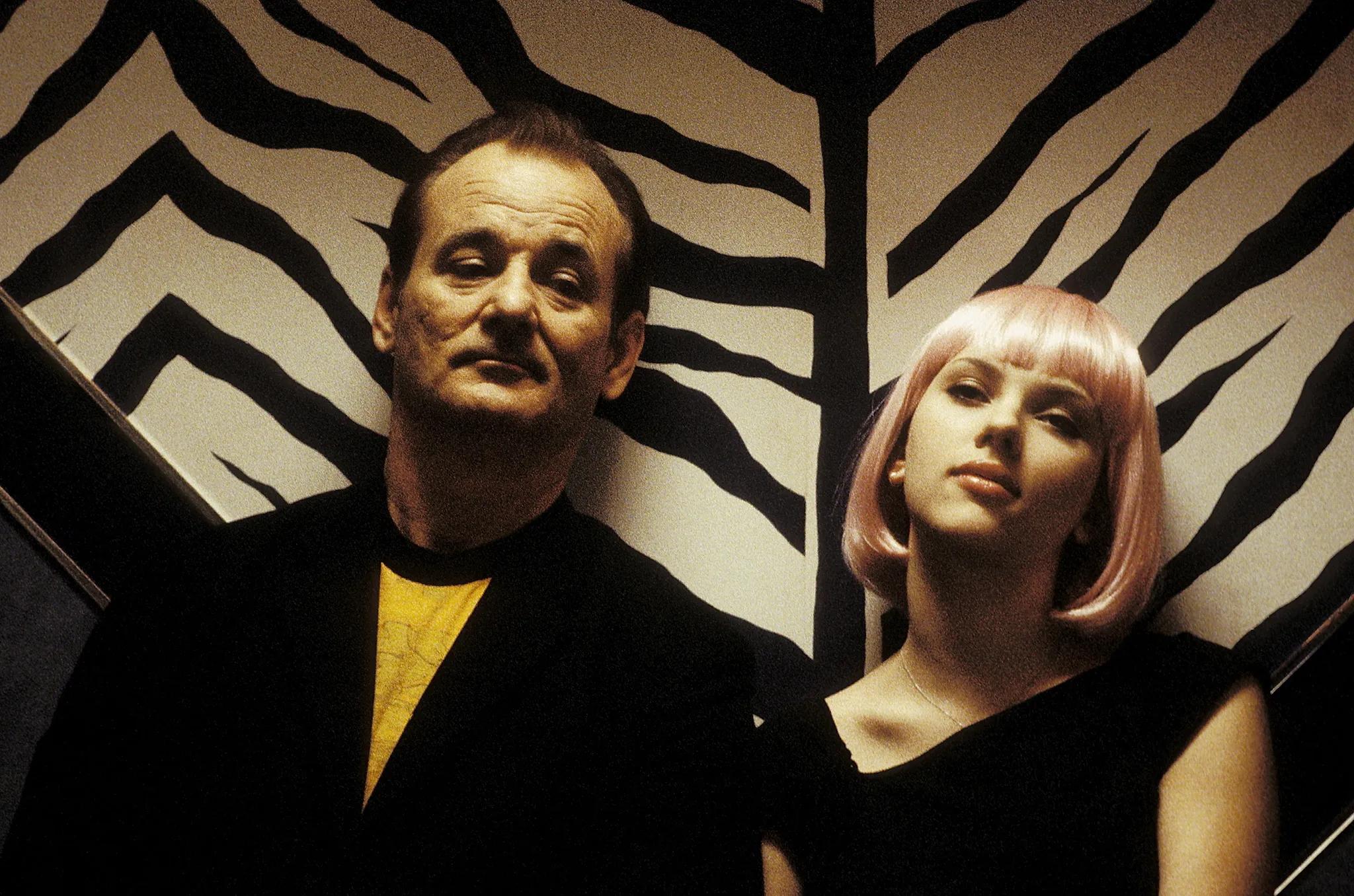
No awards show snub in world history—forget the Grammys, the Emmys, the Pulitzers, or the VMAs—hurts worse than Dr. Peter Venkman not getting the Oscar here. It would’ve been a guaranteed all-time-great acceptance speech: a beloved and galactically mercurial comedy superstar finally getting the institutional respect he deserves. But Lost in Translation is so much more than a comedian-gets-serious prestige power play: Bill Murray wonderfully trudges through Sofia Coppola’s moody and complicated masterpiece (though much of the comedy has aged horribly) with an electric combination of dignity and resignation, resilience and exasperation, sage wisdom, and total bewilderment. Murray’s performance, by contrast, has aged beautifully precisely because his character is aging before our eyes so tumultuously—a downward spiral communicated entirely through the hilarious deflation in his eyes, the micro-slapstick slump of his shoulders, and the concussive power of his final cryptic whispers. You spend the whole movie hyperconscious that you’re watching Bill Murray, comedy legend, but that only pulls you even deeper in rather than pushing you away. He throws his weight around while barely moving a muscle. —Rob Harvilla
89
Colin Farrell as Ray, In Bruges (2008)
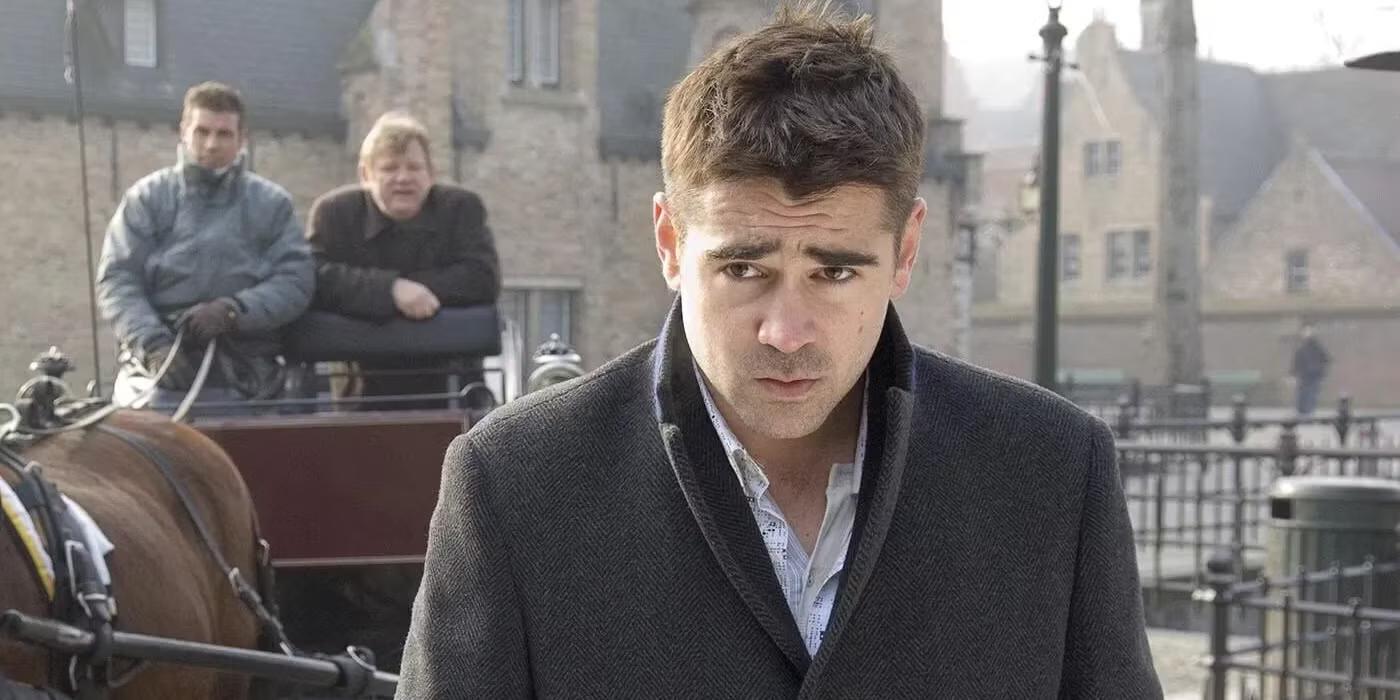
Storming onto the scene right at the start of the century with that sexy olive skin, those thick eyebrows, and an even thicker Irish brogue, Colin Farrell spent a few years being improperly typecast as a pretty-boy straight man until Martin McDonagh saw what he truly was: a really handsome character actor. Enter Ray, the younger of two hitmen sent to hide out in Bruges after a botched job. We buy that he could kill a guy, and that he fucking hates Bruges, but Farrell brings a puppy-dog sincerity that offsets the brashness. That’s key particularly for early McDonagh works, which often take undue pleasure in discomforting amounts of giggling at minorities and un-PC indulgences. Even so, the sheer delight with which Farrell exclaims them is, unfortunately, irresistible. That disarming naivete feels like a strictly comedic choice until you realize this is a character whose defining trait is a severely wounded fragility. The film is haunted by the prospect that any little boy is one “wrong place, wrong time” away from becoming a victim, but perhaps none more so than Ray—lost, bewildered, and wondering how he wound up here, a murderer, surrounded by dead bodies, in fucking Bruges. —Kyle Wilson
88
Simon Rex as Mikey Saber, Red Rocket (2021)
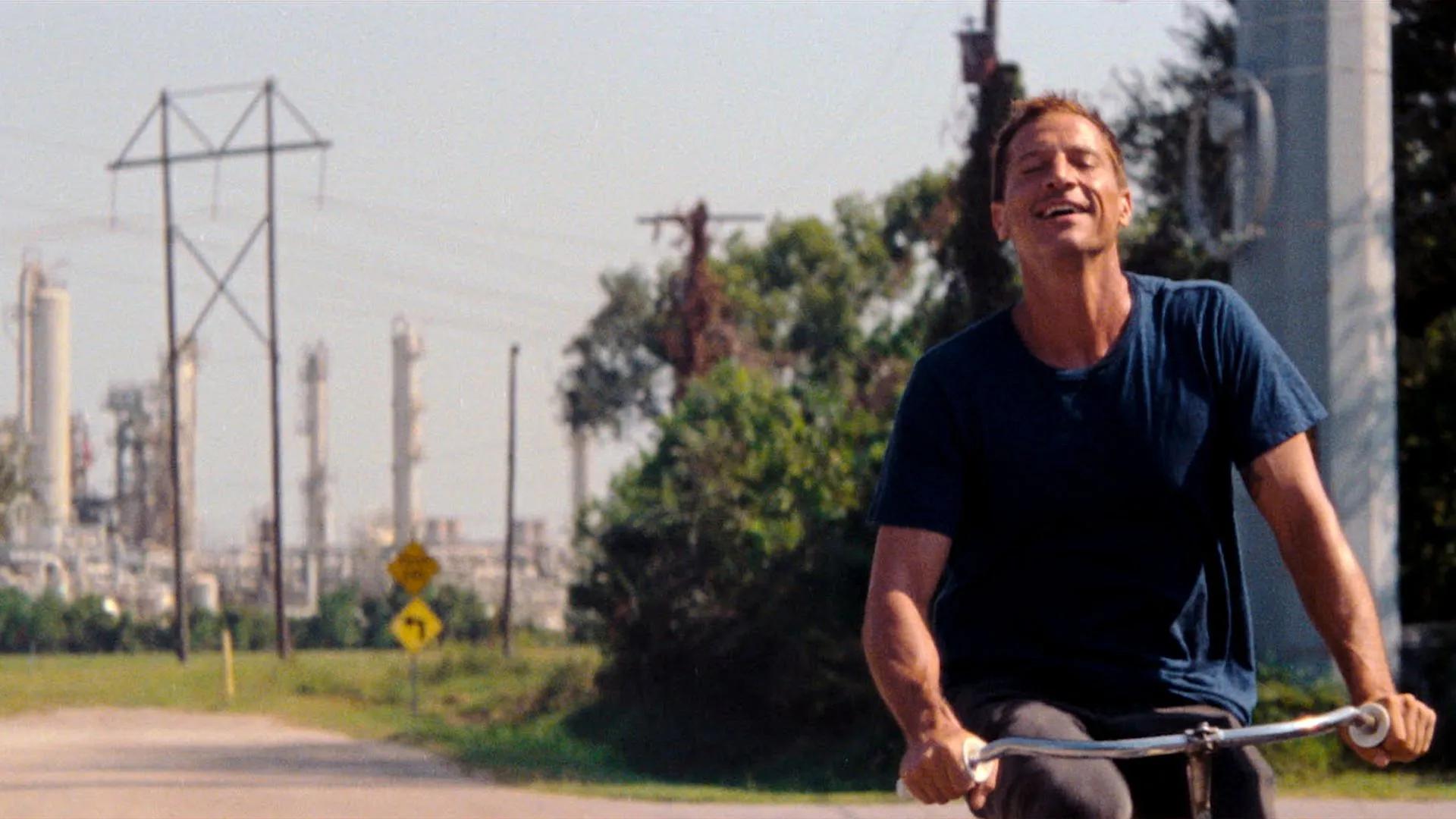
Sean Baker has made a career off of willing magnificent performances out of first-time actors, from Kitana Kiki Rodriguez in Tangerine to Bria Vinaite in The Florida Project. In Red Rocket, however, he sought to revitalize a career rather than create one. Simon Rex got his start in porn before taking on a few Scary Movie sequels and then making a move to comedy rap under the name Dirt Nasty (“1980” went platinum on my iPod, don’t judge me)—career choices that don’t exactly indicate a path to prestigious film roles. Baker thought otherwise. After Rex’s work prospects had largely dried up, the director reached out to him for the part of Mikey Saber, a washed-up porn star and preeminent scumbag who returns to his small Texas hometown to take advantage of everyone in sight. And it couldn’t have been a more perfect choice.
Rex wasn’t just the ideal man to take on Mikey because of his shared background in adult entertainment—though his familiarity with the type of guy Baker was aiming for certainly helped. He also has a ridiculously magnetic charm that, in hindsight, is clearly apparent in his 2000s comedy work and is used to all-too-familiarly enable a charismatic swindler who somehow keeps getting away with it in Red Rocket. You wince as you watch Mikey talk his way out of jam after jam, leaving literal wreckage in his wake, but you know you’d probably get duped by him all the same if you had been there. It’s a stunning performance that not only revived Rex’s career—lucky for us, he’s maintained steady work since Red Rocket’s release—but provided a truly singular portrayal of the real-life paradoxes that walk among us every day, yet are rarely captured on-screen. —Ress
87
Willem Dafoe as Thomas Wake, The Lighthouse (2019)
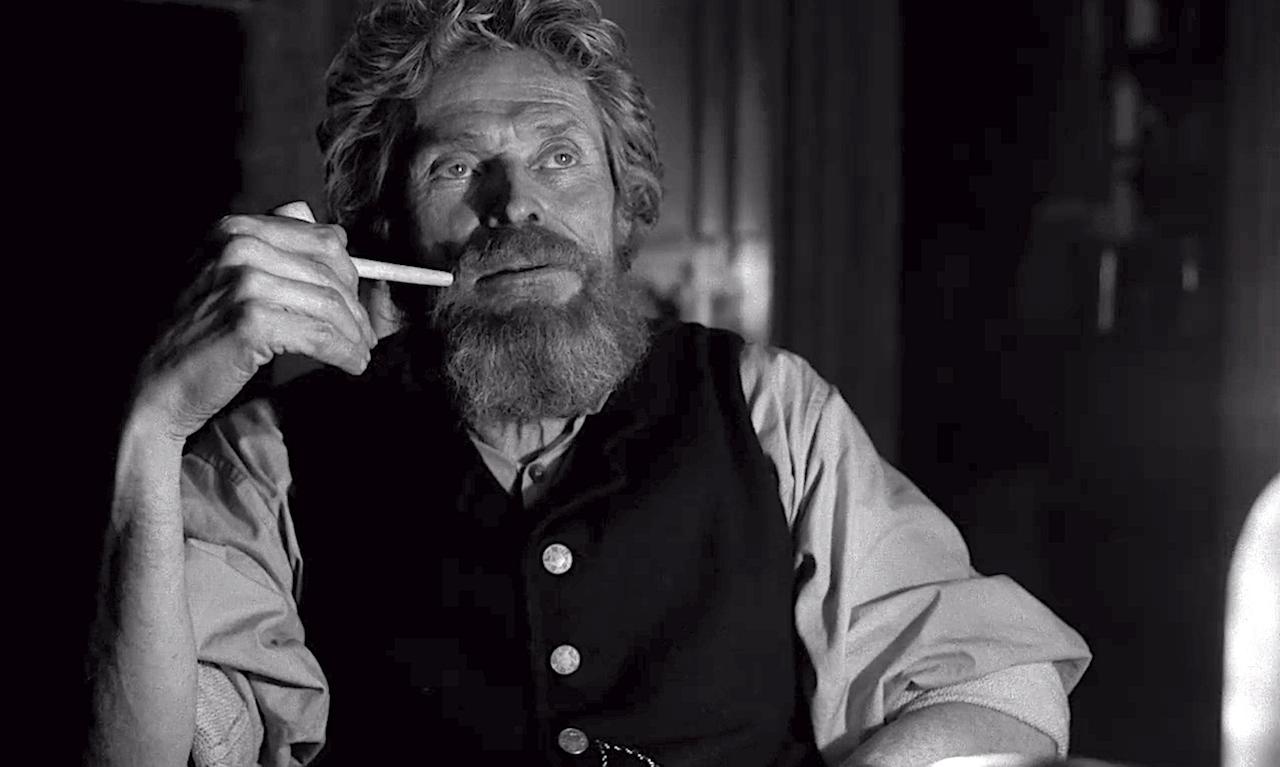
To my friend Tom, I’m fond of yer lobster. I’m fond of just about everything Dafoe is cookin’ in Robert Eggers’s black-and-white stunner The Lighthouse. Dafoe’s Thomas Wake is a goddamned drunken, horse-shitting genius. He is a weather-beaten sailor with 13 Christmases at sea, now damn well wedded to the light. He’s a wickie, and a wickie he is—charcoaled black and gray, an old, grizzled crustacean limping twixt storm and stone. One moment he’s a dancing buffoon; the next, he’s cursing Neptune in a rolling, tidal rage: “Hark, Triton, hark! Bellow, bid our father the sea king, rise from the depths, full foul in his fury, black waves teeming with salt foam, to smother this young mouth with pungent slime.”
Dafoe steals the screen with piss, farts, and Shakespearean monologues. It’s blunt and poetic. Grotesque and beautiful. Full of inescapable dread and unbridled cheer. Dafoe is somehow the calm and the storm. It’s arguably his career-best performance, and by God and by golly, I watched it smilin’. (’Cause I like it. And I like it ’cause he says I do.) —Austin Gayle
86
Florence Pugh as Dani, Midsommar (2019)

Sometimes, an actor saves their best work for when their characters are put through the wringer. By Florence Pugh’s own admission, she “abused” herself in Midsommar to get into the headspace of Dani, a college student reckoning with her entire family being killed before vacationing with her boyfriend (Jack Reynor) in rural Sweden. (Midsommar is also a very tough beat for Sweden’s tourism board.) Like Toni Collette in Ari Aster’s previous film, Hereditary, Pugh projects so much suffering from Dani’s ordeal, exploring the damaging ways in which people try to heal from their grief and trauma. There’s a ton of screaming, a ton of crying, and finally, a twisted form of catharsis featuring a bear carcass (if you know, you know). From start to finish, Midsommar is an emotional roller coaster, which makes you appreciate the lengths Pugh went to even more. That Pugh wasn’t recognized by the Oscars for her troubles is enough to make me go full Hårga. —Miles Surrey
85
Viggo Mortensen as Tom Stall/Joey Cusack, A History of Violence (2005)
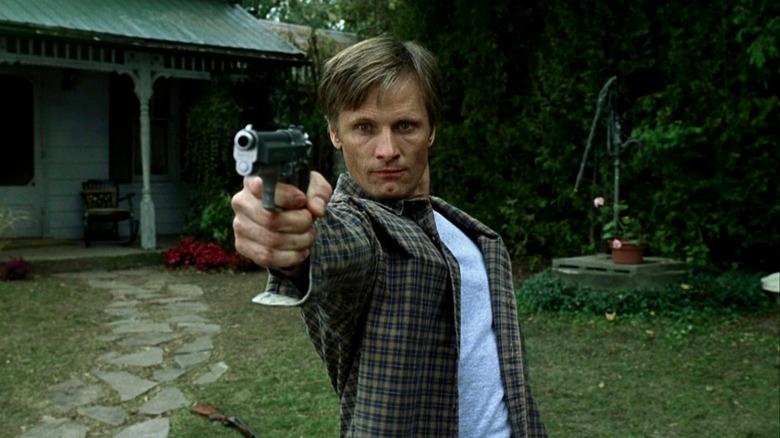
Really, we could have gone with any of Captain Fantastic’s collaborations with David Cronenberg. They’re clearly BFFs and artistic soulmates, and they consistently bring out the best in each other on the red carpet and in their work. But there’s something about the sleight of hand in Mortensen’s acting in A History of Violence that makes his performance as Tom Stall first among equals.
Cronenberg’s graphic novel adaptation turns on the mid-film revelation that Tom—a small-town family man beloved by his wife and kids and the patrons at his diner—is hiding a sinister backstory: He’s actually “Crazy” Joey Cusack, once the scion to an organized crime empire, now on the lam from his kingpin brother. Technically, this is a plot twist, but when you watch A History of Violence carefully, it’s clear that Joey Cusack has been there since the beginning. Tom Stall is a bad man’s impersonation of a good man: half aspirational, half alien, and as fully Cronenbergian a creation as Jeff Goldblum’s insect-human hybrid, Brundlefly (whom Stall resembles when it comes to mutilating his enemies).
The long centerpiece hospital room sequence in which Tom slowly comes clean to his wife, Edie (Maria Bello)—“I wasn’t really born again until I met you”—is pricelessly funny for the way Mortensen evokes an apex predator whose skin has slipped and is now exposed, out of his element, and trying to adapt. The Darwinian comedy of the film’s climax, meanwhile, gives the former Aragorn a fine showcase for some survival-of-the-fittest ass kicking and serves as a reminder—along with the bathhouse brawl from Eastern Promises—that our guy could have easily been a weathered (and wealthy) Hollywood action hero, except that he’s too much of a weirdo. Kudos, Viggo. —Adam Nayman
84
Ryan Gosling as Ken, Barbie (2023)
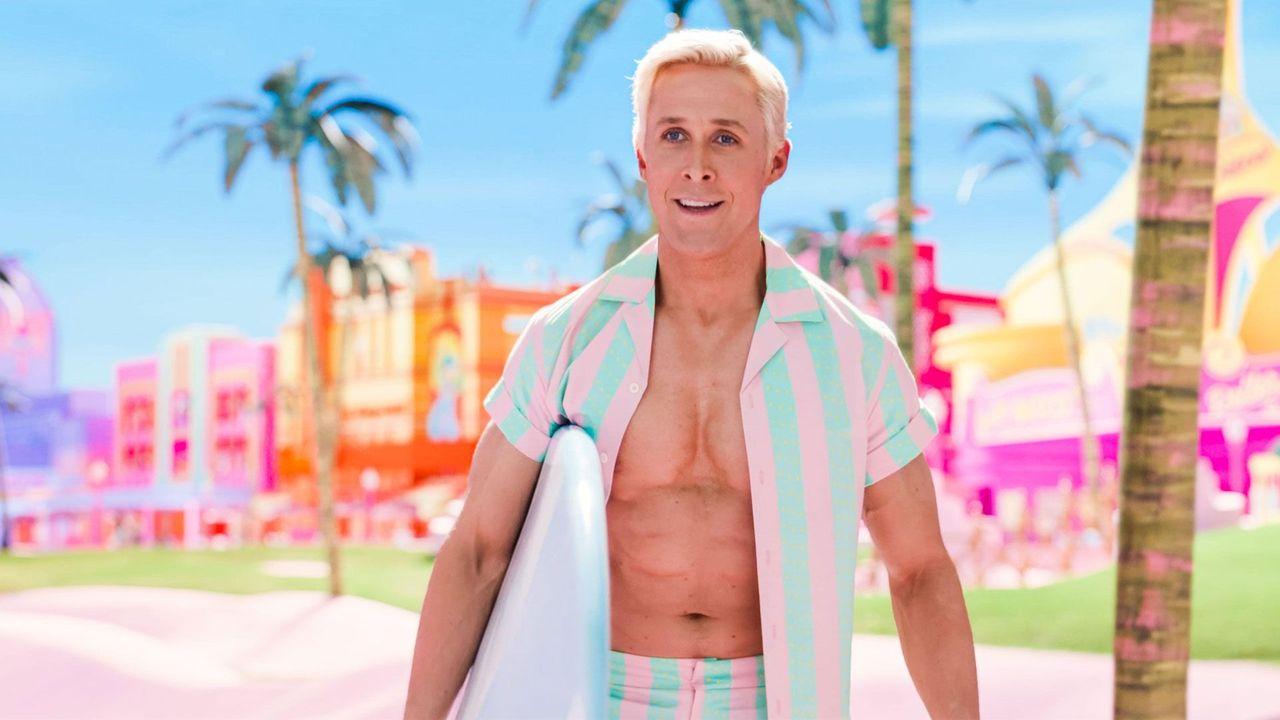
[“Also Sprach Zarathustra” funk remix playing]
Gosling’s in the pocket on arrival here, so ready to play. Ken’s a character that wears his inner turmoil on the outside of his person. The Goz deadpans the absurd, leans into the foolishness. It is deeply felt himbo duncery, a man throwing himself headlong into dumb. Bless his heart. Ken’s love for horses just pushed him too far. We can all relate.
He wears slights like a teenager, all fury and embarrassment. Ken swings wildly from cocky to jealous to sad to insecure to happy to confused. At no point is there anything resembling a false note. One of the funniest performances this century. When he’s walking in Century City for the first time, Ken could not be feeling himself more. The wonder on his face when he sees a Hummer for the first time, copying businessmen’s finger wags, reveling in the fur-coated images shining before him. Pure elation on his face. It’s like watching someone try ice cream for the first time. He did not know joys like these were possible, and now he’s drunk off new possibilities.
[Glitter chiming]
There is just no note out of place here. A lesser actor, the fur wears the man. Gosling can wear a floor-length mink hanging off his shoulders and do old-school boxing-style punches while singing the words “fight for me,” and it’s just pure, weapons-grade star wattage. So much fun. Every laugh he goes for, he gets. There’s no holding back here. He comes riding into the scene, Holy Grailing it atop an invisible steed, complete commitment to the bit. —Tyler Parker
83
Tiffany Haddish as Dina, Girls Trip (2017)
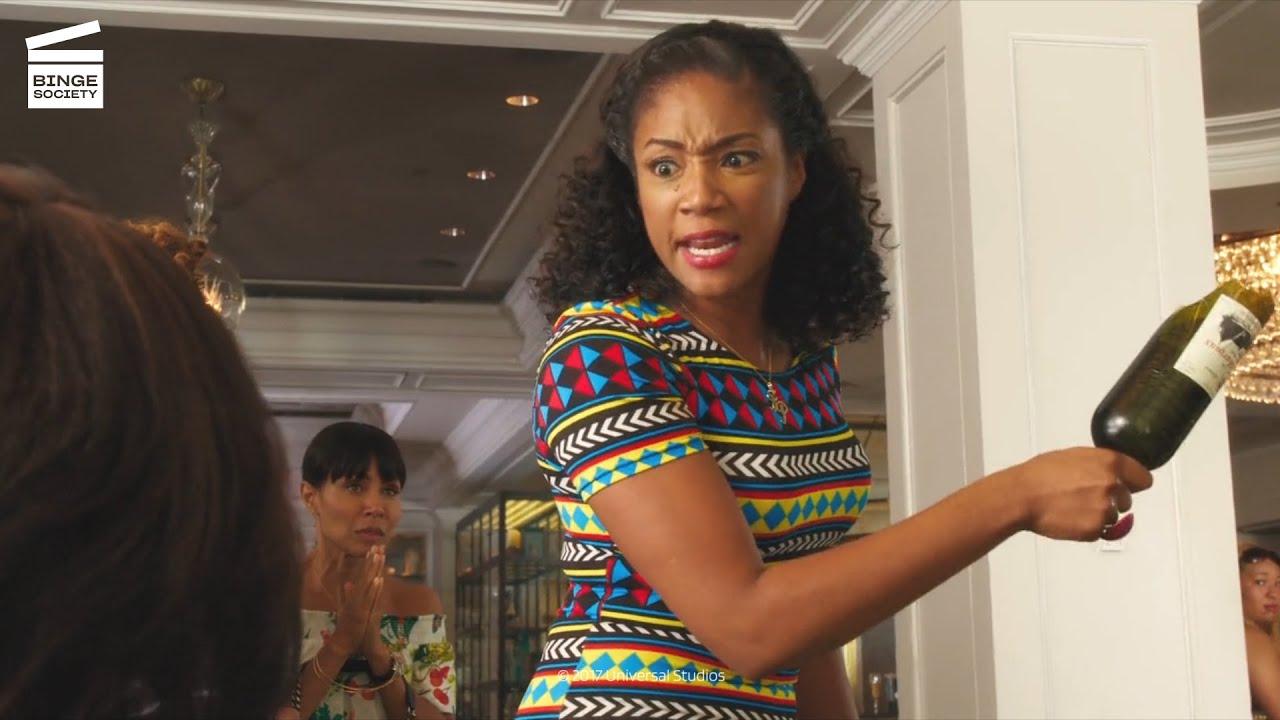
Fact check me on this, but: I believe this is the only performance on the list in which the actor says, “I got drugs in my booty.” Girls Trip was the surprise hit of 2017, and Tiffany Haddish crashes into it like a tornado. As Dina, she steals every scene she’s in. Every line delivery is deserving of a Funkmaster Flex bomb drop. The performance is massive in scale, yet Haddish is never not in control. There was serious Oscar buzz for this performance—do you remember that? When Haddish was snubbed, people were legitimately mad. (That year’s Best Supporting Actress category was actually sort of loaded; had Girls Trip come out a year later, she probably would have at least been nominated.) But all of that enthusiasm was extremely deserved: Haddish gives this performance everything, so much so that it’s almost as if Dina—and that Oscars season, including the dress Haddish wore multiple times because “I paid money for this!”—is still looming over Haddish’s career. No matter what, though, she’ll have this legendary turn. —Gruttadaro
82
Renate Reinsve as Julie, The Worst Person in the World (2021)
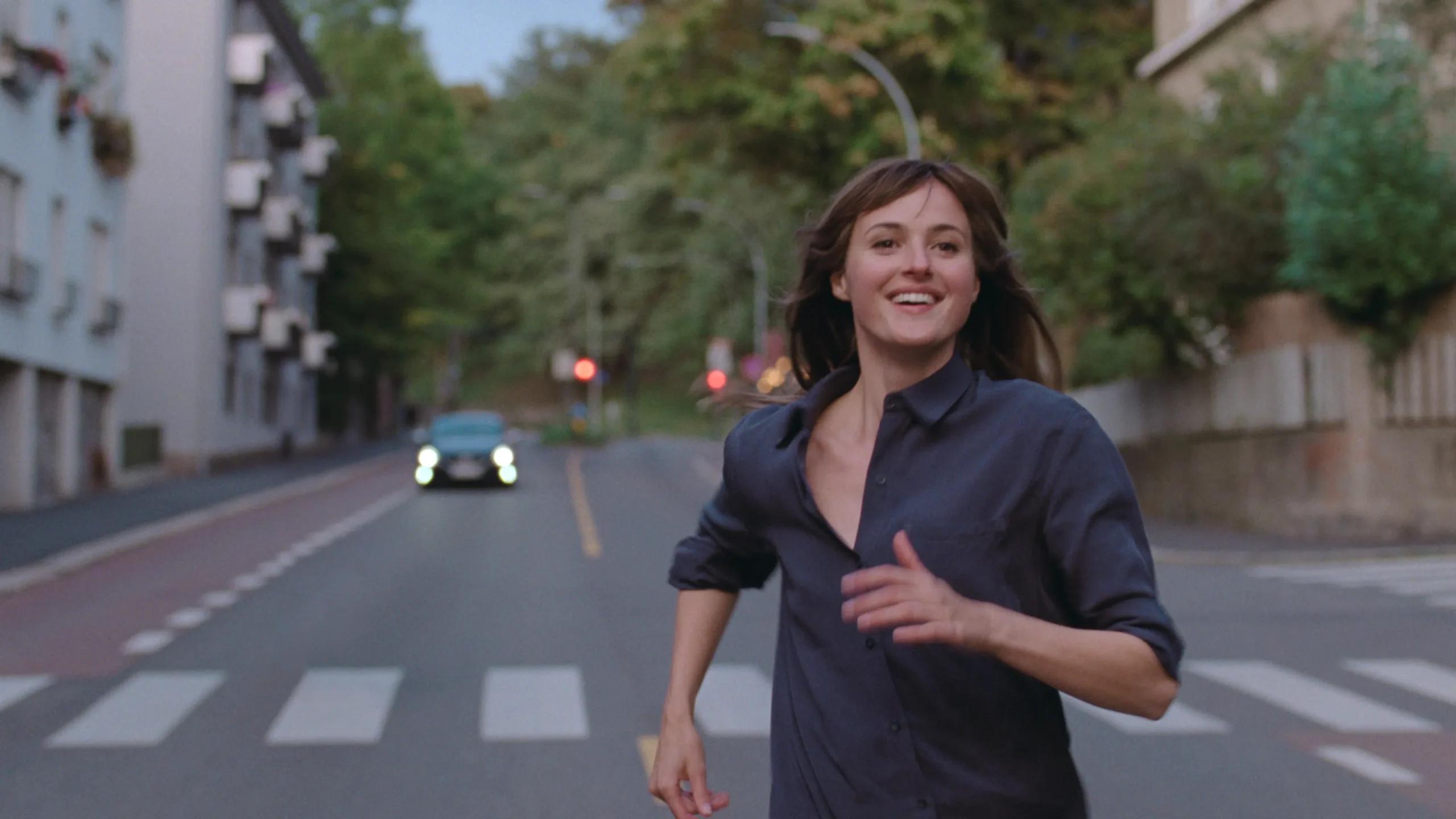
Unlike many of the performances on this list, Reinsve’s isn’t particularly theatrical or showy; it’s mostly quiet and moves like real life, gradually changing as she gets older and painfully wiser.
Her character, Julie, doesn’t quite know what she’s doing with her life. That’s the central, relatively understated conflict of The Worst Person in the World. And even though Reinsve is in full control of her performance, you believe her as someone who doesn’t always know what to do. When she’s arguing with a boyfriend, her frustrations and hurt spill out almost unintentionally; when she’s falling in love with someone new, she can’t keep her eyes off them; when she’s trying to hide how she feels, she lets just enough anger or hurt show that we can read her, as if she’s a good friend we’re watching from across the room. Throughout the movie, Julie is in the process of discovering herself—both eliminating the things she doesn’t want and then coming back once she realizes she needs them. Reinsve also seems to be in the process of discovery, surprising herself, and us, with what she finds and who she can become. —Helena Hunt
81
Jim Carrey as Joel Barish, Eternal Sunshine of the Spotless Mind (2004)
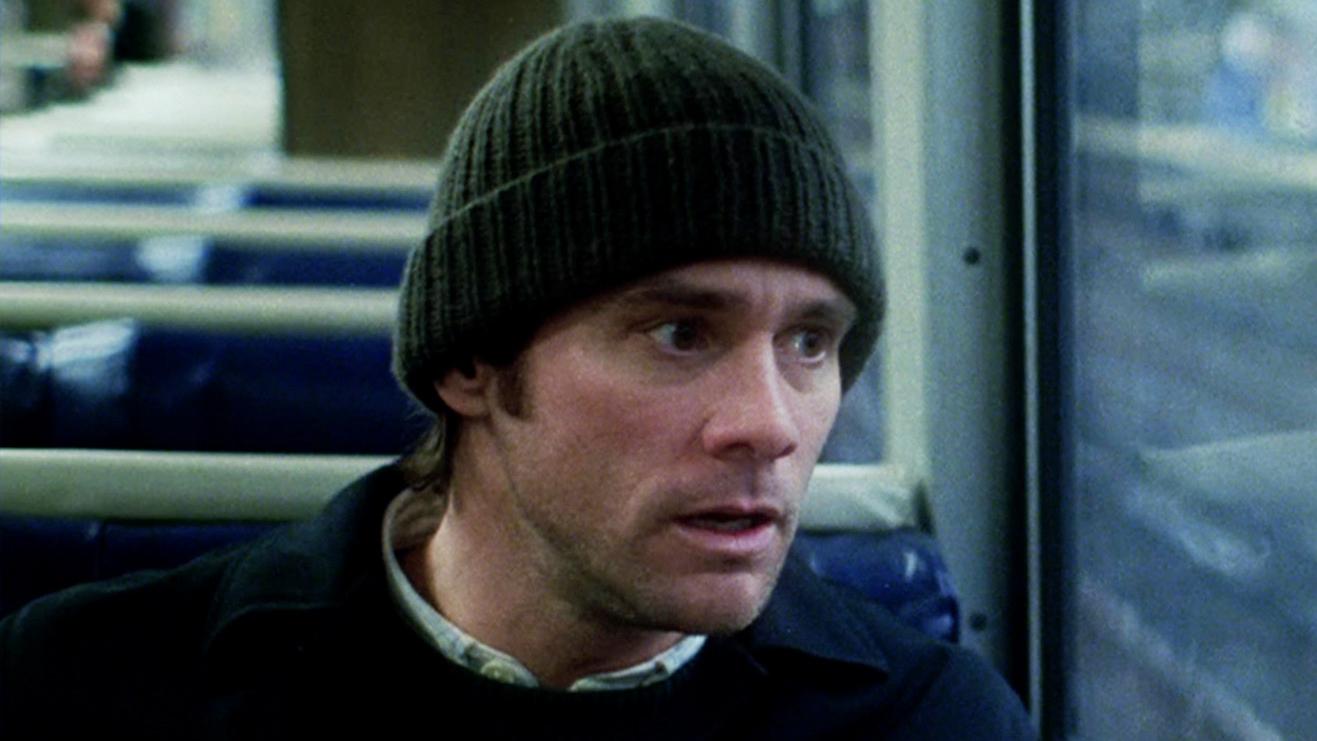
Ace Ventura has never gotten his Oscar, alas; he has settled instead for being Two-Time Golden Globe Winner Jim Carrey. Did he deserve one for playing Andy Kaufman? Maybe. Did he deserve one for playing Truman Burbank? Probably. But Lord Jim did his best-ever work in Michel Gondry’s bleak, whimsical, chaotic, and heartrending 2004 tragi-romantic fantasia, precisely because the funniest (arguably) and hardest-working (inarguably) comedy superstar of his era doesn’t try to match either the whimsy or the bleakness.
Carrey doesn’t overact, and he doesn’t overact by underacting the way most prestige-hunting comedians do. Instead, as Joel—the soft-spoken introvert, the nice guy, the red-flag-waving “nice guy,” the heartbreaker, the heartbroken—our man plays everything masterfully straight, affable, and potentially lethal, with his most devastating (and romantic!) lines delivered as casual asides. “I remember that speech really well,” he whispers; “OK!” he concludes, with a shattering, tossed-off charm that wins over both Kate Winslet and several subsequent generations of hopeless (and devastated!) romantics. Eternal Sunshine of the Spotless Mind’s high concept and higher melodrama would’ve swallowed up both lesser and harder actors; Jim Carrey, here and maybe only here, delivers an absolute masterpiece of perfect balance and total control. Against your better judgment (and possibly his), you will fall for him again, every time. —Harvilla
80
Margot Robbie as Nellie LaRoy, Babylon (2022)
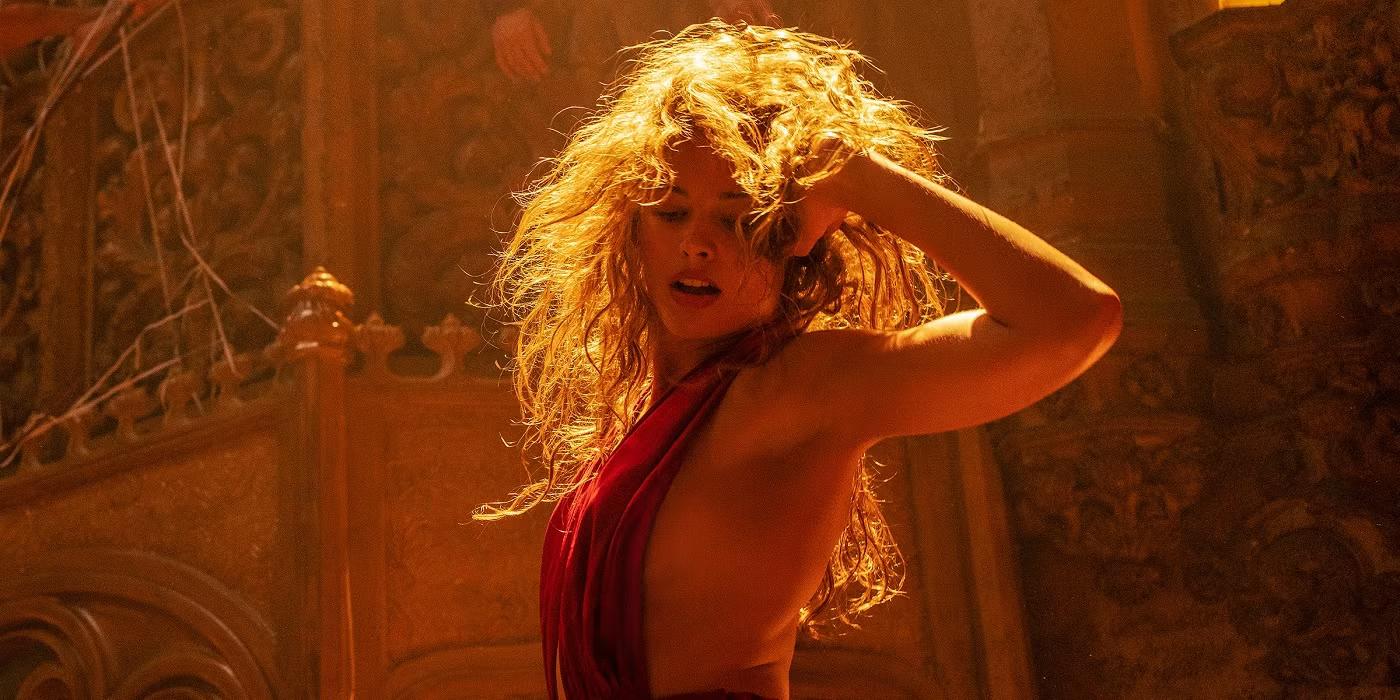
You can measure Robbie’s raw power by how many of our greatest working directors just put her in frame and let her cook. Tarantino. Gerwig. Scorsese. It’s the cheat code of contemporary filmmaking. Yet no one has harnessed Margot’s presence on-screen quite like Damien Chazelle, who structured a whole-ass epic around her talent for cut-to-the-core expression. The rapture, the ecstasy, the malaise, the indignation, the misery—everything Babylon is and wants to be is right there on Robbie’s face, as we spend the better part of its three-hour running time watching the twinkle in her eye slowly fade away.
Plus, y’know, the projectile vomiting, and the high-wire choreography, and the note-perfect physical comedy. Babylon is unapologetic in its want to have it all. One of the ways to accomplish that is with a dazzling ensemble. Another is to center a performer who can do anything and everything. Babylon calls its shot on Nellie being a star, but Margot makes it so. She makes the smallest emotional beats feel enormous and the grandest productions somehow intimate. She ties the sprawl of an enormous movie together, even as it constantly threatens to teeter out of control. Maybe Babylon is guilty of overreaching. Yet when Robbie is delivering fireworks on every front, can you really blame it for its ambition? —Rob Mahoney
79
Renée Zellweger as Bridget Jones, Bridget Jones’s Diary (2001)
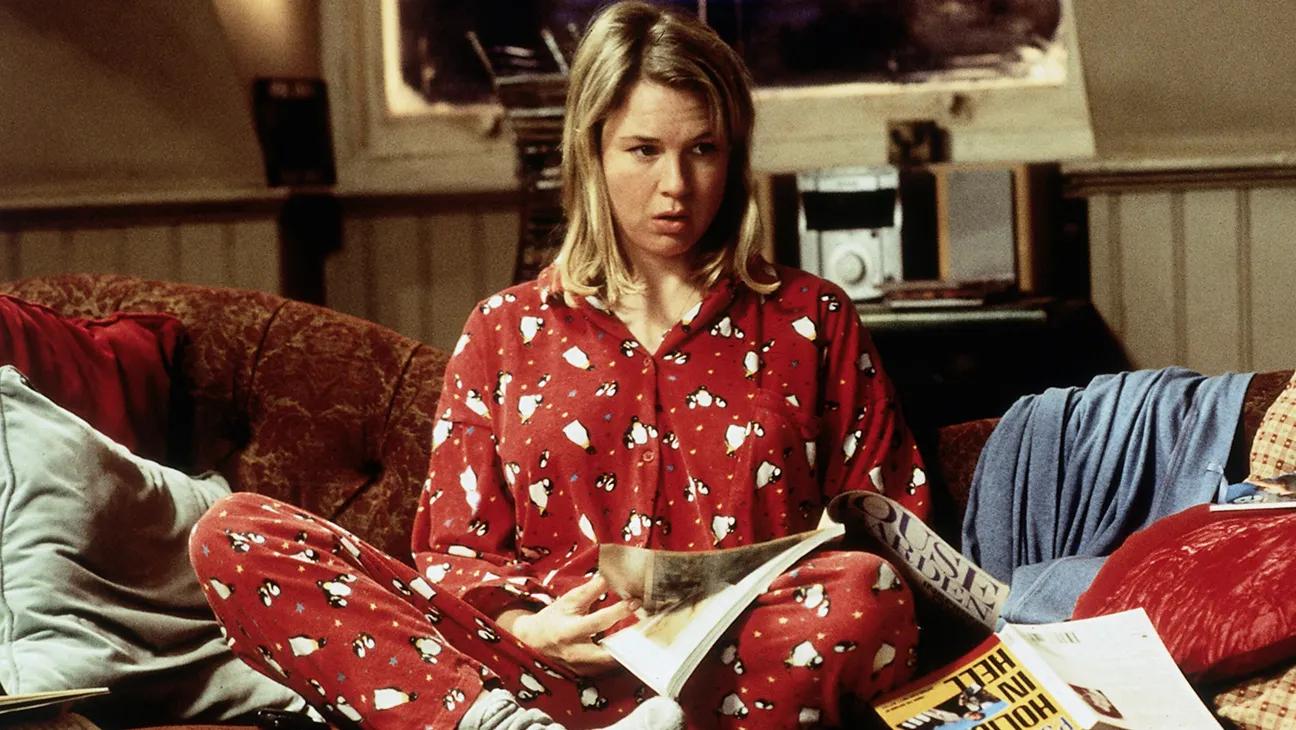
You don’t often see actors traveling east across the Atlantic for a movie role. Even less often do you see it work. But Renée Zellweger (originally from Katy, Texas) as the British Bridget Jones is magic like that. A modern retelling of Jane Austen’s Pride and Prejudice—with Bridget as the stand-in for Elizabeth Bennet—Bridget Jones’s Diary rests entirely on Zellweger’s shoulders, and not just because she pulls heavy duty as a voice-over narrator. Zellweger is sympathetic, delightfully raw, and, most importantly, funny. She turns herself into the ultimate everywoman, exposes herself in unthinkable ways, and comes out on the other end on top. Before Bridget Jones’s Diary, Zellweger was known for playing mousy, deferential characters in movies like Jerry Maguire and Me, Myself & Irene—to say that no one saw this coming would be an understatement. But there’s a reason that, almost a quarter century later, she’s still playing this character in movies rather than any of those characters. —Gruttadaro
78
Kristen Stewart as Maureen Cartwright, Personal Shopper (2016)
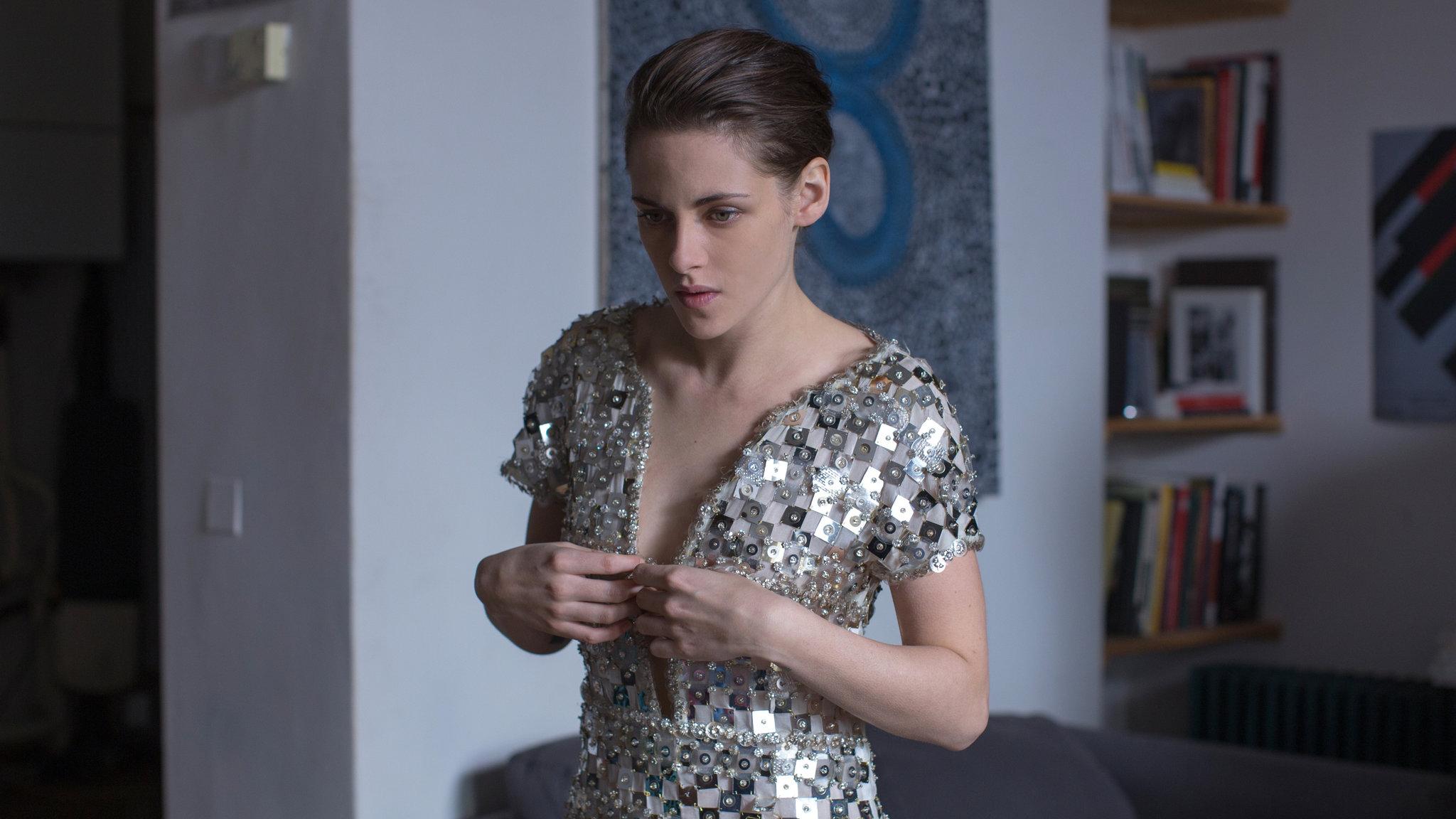
Imagine telling someone in 2008 that the two leads in Twilight would do their best work in the art house scene. But just as Robert Pattinson has become one of cinema’s preeminent weirdos (complimentary), Kristen Stewart emerged as an actress most in her element playing someone uncomfortable in their own skin (complimentary). Case in point: Olivier Assayas’s genre-bending Personal Shopper, in which Stewart plays Maureen Cartwright, a supermodel’s personal shopper (!) who is also an amateur medium (!!) trying to contact her twin brother from beyond the grave (!!!). But while Personal Shopper features an actual ghost and a bloody crime scene, Stewart’s finest work comes in moments of relative stillness: Maureen sifting through exorbitant outfits, watching art history videos on YouTube, exchanging texts with a sinister presence. Stewart conveys a quiet yearning throughout as Maureen is, rather fittingly, caught in an existential state of purgatory—waiting for a sign for her brother, and for life in the mortal realm to still give her meaning. All in all, Personal Shopper is right in Stewart’s wheelhouse, and just like her Twilight costar, she sparkles. —Surrey
77
Adam Driver as Paterson, Paterson (2016)
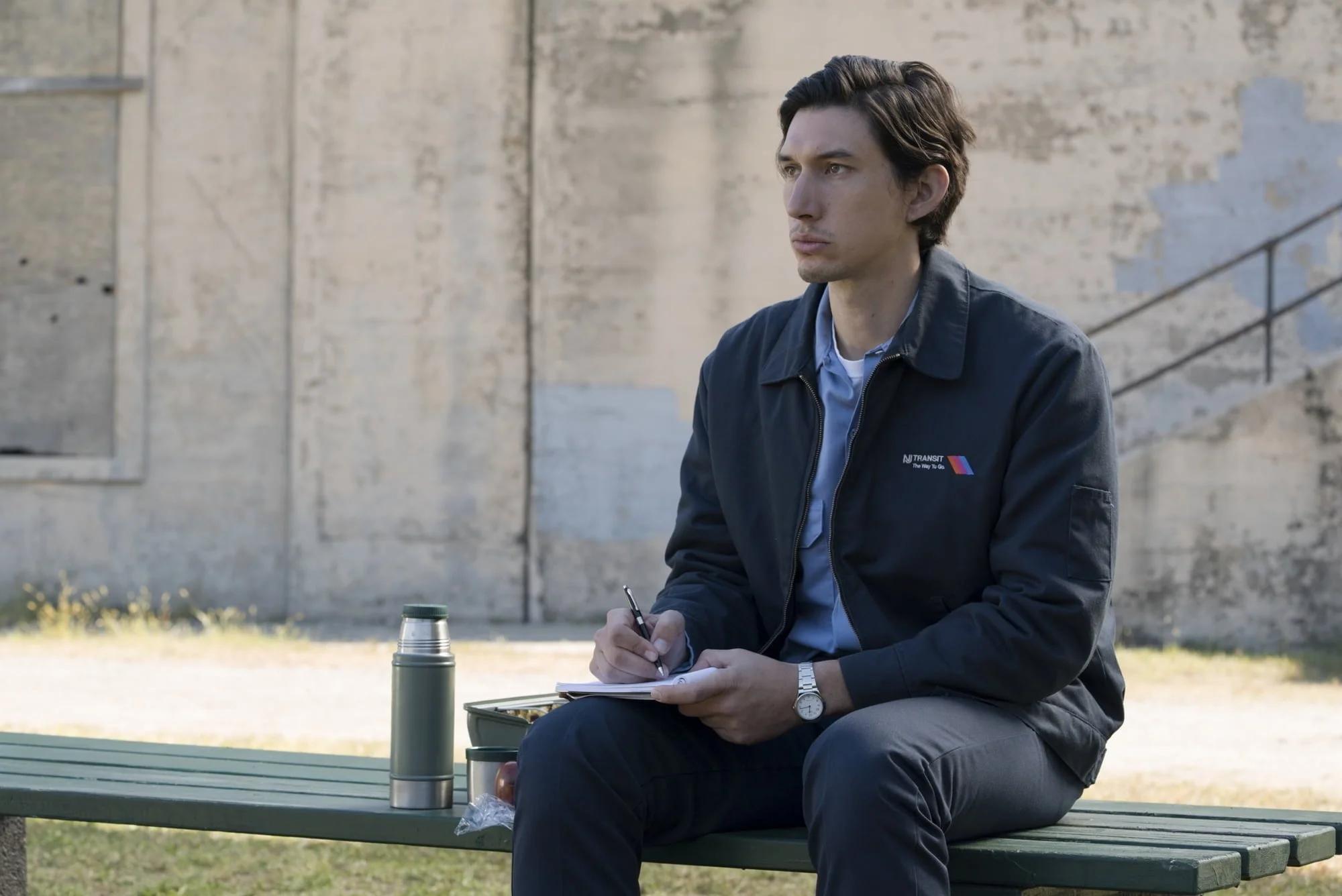
The protagonist of Jim Jarmusch’s Paterson, named Paterson, works in Paterson, New Jersey, as a bus driver, and is interpreted by Adam Driver—a lot of pleasing echoes for a film about finding poetry in the everyday. In his spare time, Paterson writes poems that only his wife (Golshifteh Farahani) ever reads, and the regular pattern of his life repeats day after day, the only variations coming from the conversations he overhears on his bus rides. With his striking physicality and direct, unvarnished manner, Driver anchors the film in the physical world, making his character’s preference for all things tangible and his rejection of digital technologies feel like intrinsic values rather than an arrogant pose. Underneath his stoic surface, he lets the mystery of the creative process softly rumble, revealing that perhaps inspiration simply comes from being present and alert to what is going on around you. When the modern world and life’s surprises come to disturb Paterson’s routine, however, Driver gives weight to his sorrow, aligning the audience with his fear that the simple existence he wants may no longer be possible today. An almost childlike anxiety and sense of curiosity permeate his performance as Paterson witnesses the inevitability of change and pain and the ease with which his wife embraces it, as he wonders how he himself can best accept it. —Manuela Lazic
76
Michael Fassbender as Brandon Sullivan, Shame (2011)
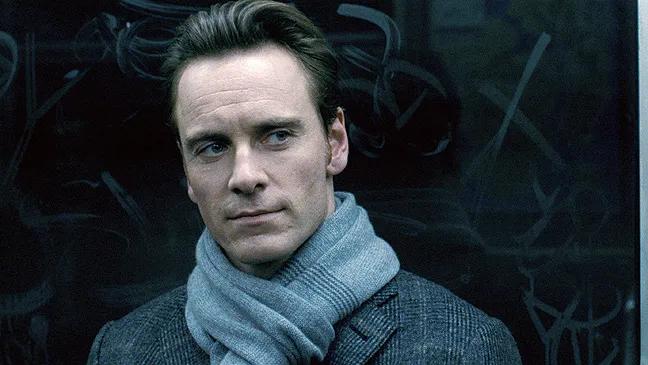
Steve McQueen, who previously worked with Michael Fassbender in the also excellent Hunger, has said the actor was his first and only choice to play the sex-addicted protagonist Brandon in Shame. It’s easy to see why. Fassbender, who always excels with complex characters caught in a morally grey area, radiates the simmering intensity required for the role. Exhibit A: a scene on the New York City subway in which Brandon catches the eye of an intrigued woman, who initially appears to reciprocate interest, only to grow uneasy with Fassbender’s unflinching stare. Not a word is spoken between them, but the dynamic is clearly apparent to the viewer, in large part due to the excellent acting. One can only wonder how Fassbender’s Oscar chances would’ve fared in 2011 had Shame not been rated NC-17. Then again, that movie might not have provided a runway for Fassbender’s most haunting moments in the film. —Aric Jenkins
75
Adele Haénel as Héloïse, Portrait of a Lady on Fire (2019)
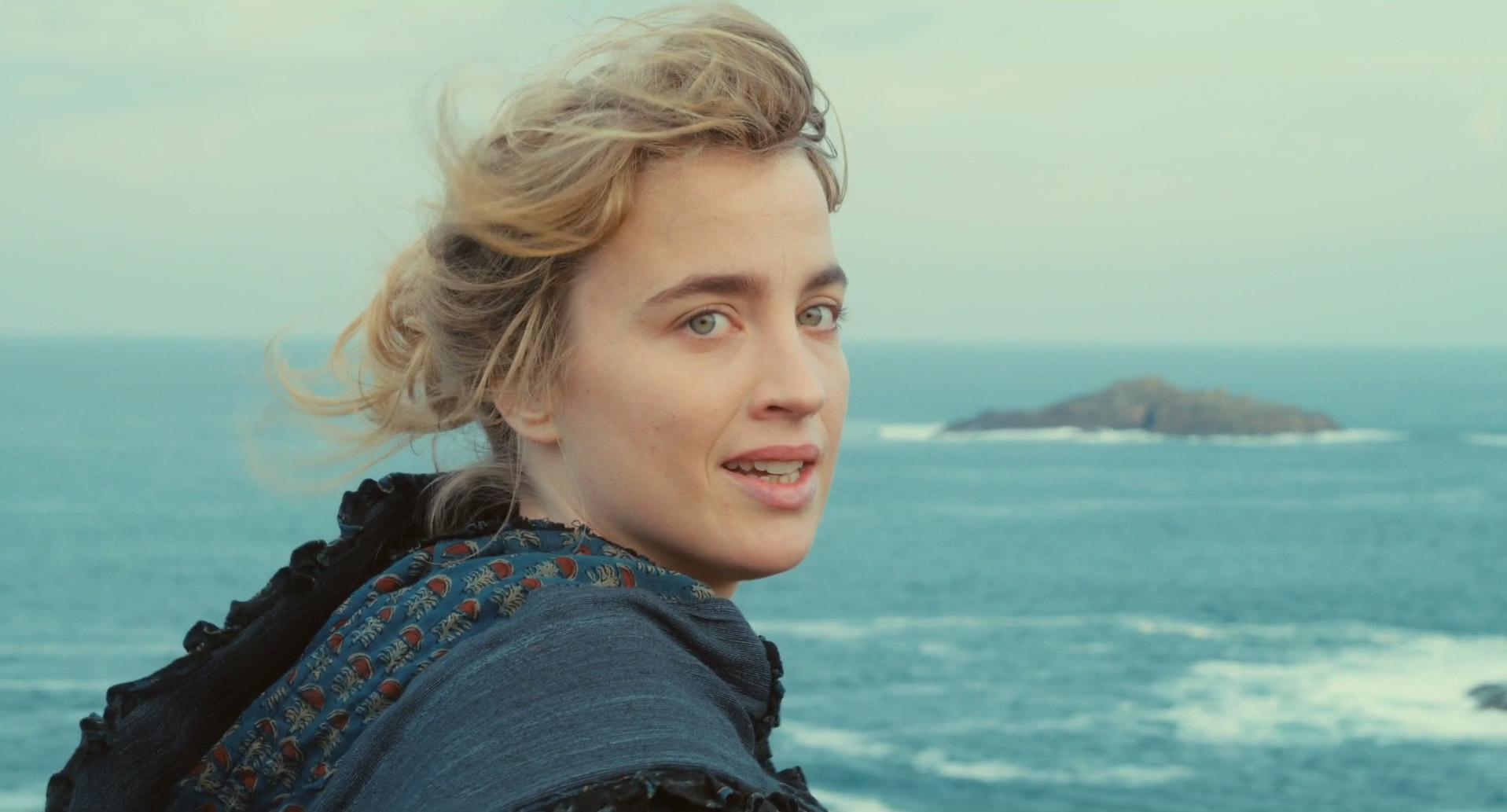
For most of the film, Héloïse doesn’t blaze—she simmers, until the fire finally literally catches her gown. Truthfully, either or both of this film’s leads deserve a spot on this list, but Haénel shoulders a lot as Héloïse—the subtle changes that mark her shift from skeptical to smitten, a feral spark smothered by the suffocating rules of her era. But if you need further justification for Haénel’s inclusion, look no further than Portrait’s final moments, as Héloïse watches an orchestra play the same Vivaldi that Marianne had shown her years earlier. Her face crumples, tears streaming down her face as the camera moves in. She cycles through a world of emotions without ever uttering a word or even looking at the lens. It’s not just a performance; it’s combustion caught on film. —Sayles
74
Melissa McCarthy as Megan Price, Bridesmaids (2011)
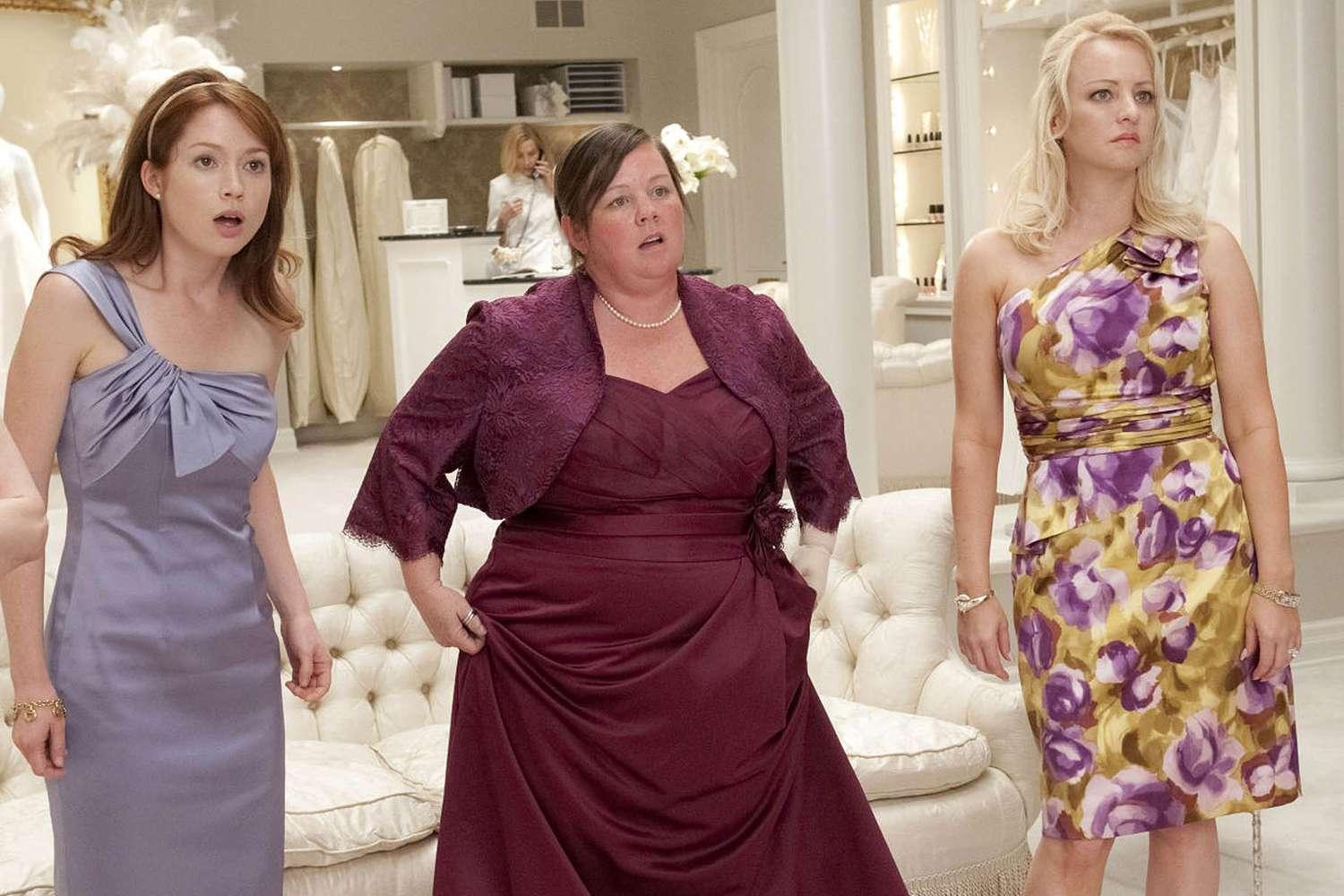
When it came time to cast Bridesmaids, Paul Feig couldn’t find the right person to play Megan. This was a problem. She was supposed to be the kind of comedic supporting character the audience latched on to. Luckily, cowriters Kristen Wiig and Annie Mumolo suggested bringing in their friend: Melissa McCarthy. They told Feig that whenever she was scheduled to perform with the Groundlings, people lined up around the block.
At McCarthy’s audition, Feig asked her to improvise a scene in which Megan tries to convince Wiig’s character, Annie, to go to a bar together. “She goes in on this whole thing,” Feig recalled to me in 2021. “Like, ‘We’re going to get out there, we’re going to get these men, and we’re going to tear ’em apart. We’re just going to eat ’em alive and have a man salad.’”
McCarthy thought she’d blown it. Feig thought the opposite. “We looked at each other and went, ‘That’s her.’” And it was. In hindsight, it’s hard to imagine anyone else as Megan, whom McCarthy plays as a little sly, a little filthy, and a little unhinged. The performance is as good as Belushi’s and Farley’s best—and it earned her something those guys never got: an Oscar nomination. —Siegel
73
Jack Black as Dewey Finn, School of Rock (2003)
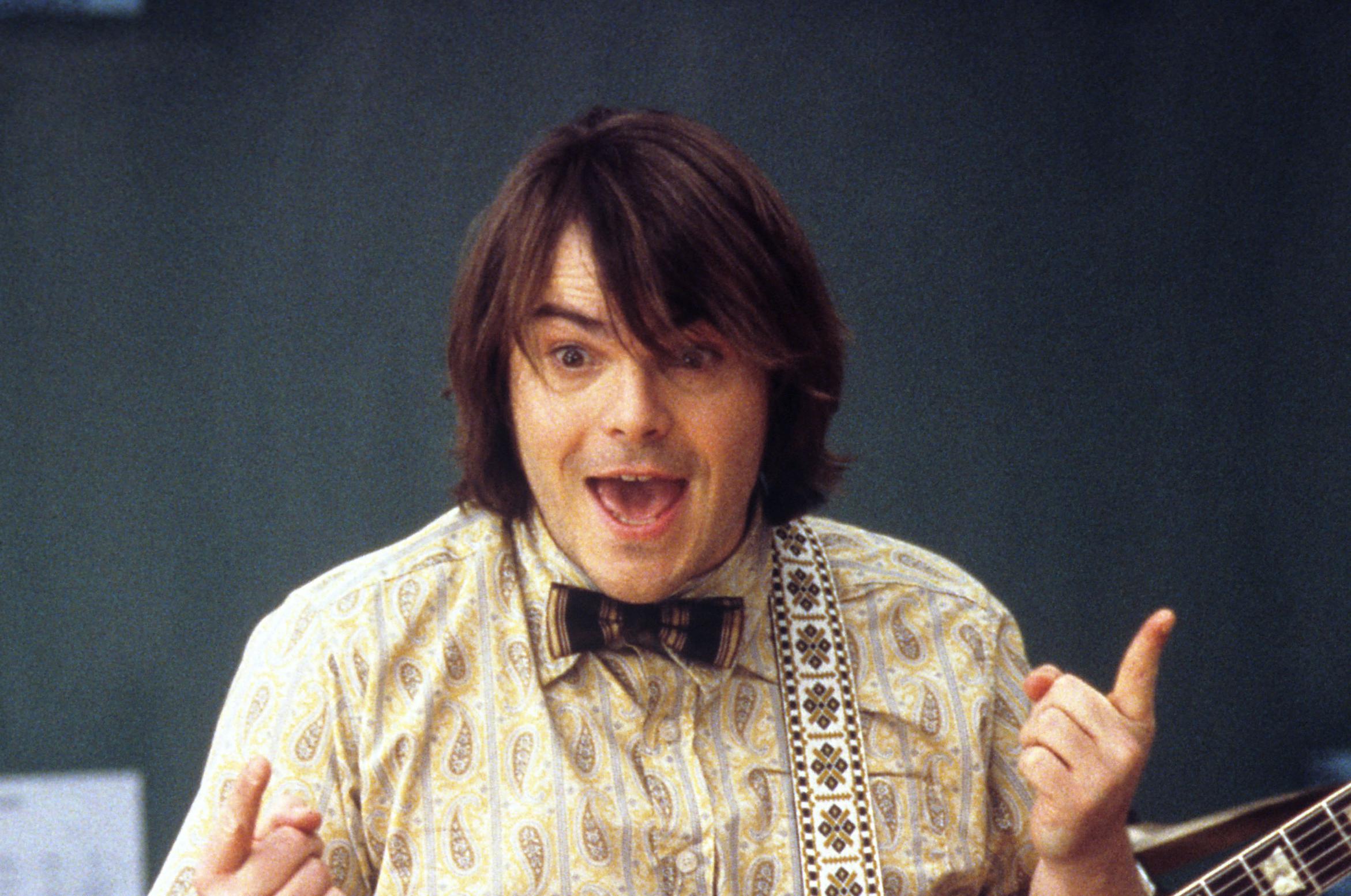
Dewey Finn is a freeloading loser who steals his roommate’s identity and manipulates a bunch of children. So why is he so stinkin’ adorable? Casting Jack Black certainly has a lot to do with it, particularly when Mike White has catered the role to his every talent and Richard Linklater has curated the perfect environment for him to spend an hour and 50 minutes in a state of near-constant transcendence. It’s a career-defining performance, a Molotov cocktail of his Tenacious D–bred musicality, “scoobily-doo” silliness, and penchant for punching one word just a little bit harder for maximum comedic effect (case in point: “I’ve got a headache, and the runs”). Linklater shoots it all like a guy who knows he’s catching lightning in a bottle, letting the film’s signature sequences play out in long takes which only underscore Black’s high-wire act. But the heart of the anarchy is a genuine dignification of his young scene partners, from the “fancypants” stylist to the chubby girl afraid to get onstage—loving grace notes which give just the right shades of “inspirational teacher” while never forgetting the foremost assignment: “kick some ass.” Get bent, Glenn Holland and your opus. I pledge allegiance to Mr. Schneebly. —Wilson
72
Val Kilmer as Perry van Shrike, Kiss Kiss Bang Bang (2005)
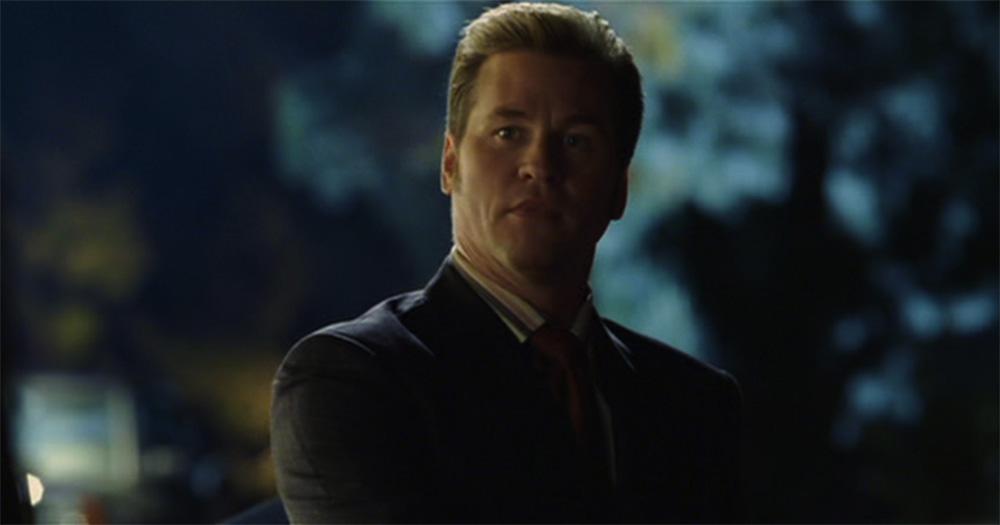
Shane Black writes the kind of rat-a-tat dialogue that has to be delivered perfectly or else it’s dead on arrival; every syllable is a matter of life and death. Ostensibly, Val Kilmer’s character in Kiss Kiss Bang Bang isn’t much more than a running juvenile joke: a gay LAPD detective and Hollywood cop show consultant referred to by friends and perps alike as Gay Perry. But his acting radiates with an indignant sort of dignity—Perry’s too much of an asshole to be anybody’s punch line—and the line readings are chef’s kiss, over and over again. “No, she’s just resting her eyes for a minute,” Perry snaps when queried about the status of an obvious corpse. “Of course she’s fucking dead, her neck’s broken.” Or: “I want you to picture a bullet in your head; can you do that for me?” Or: “Go. Sleep badly. Any questions, hesitate to call.” Kilmer was always a killer comedian (he should have won an Oscar for his rubber-limbed Elvis impersonation in Top Secret!, or maybe a Nobel Prize), and the pleasure of seeing him go back and forth with Robert Downey Jr.—the ideal straight man in a platonic B-movie bromance—is mitigated only by the frustration that he wasn’t cast in movies like this more often. —Nayman
71
Tom Hanks as Chuck Noland, Cast Away (2000)
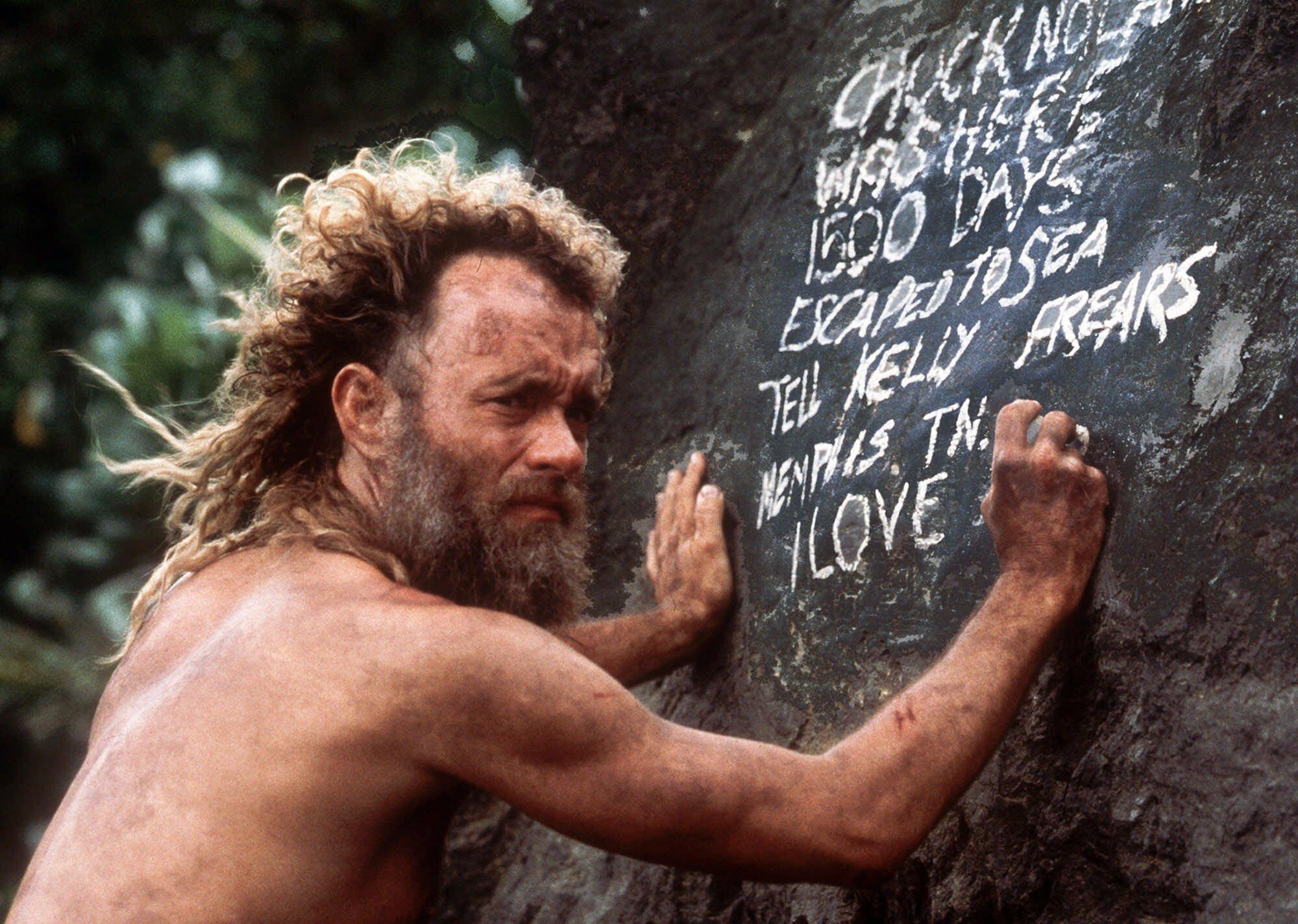
Playing a man stranded on a deserted island for four years is, obviously, both mentally and physically challenging. For the role, Tom Hanks lost 50 pounds. After a cut on his leg got infected, he had to be hospitalized. “I was there for three days with something that, believe it or not, almost killed me,” Hanks said in 2009. For a long stretch of filming, his scene partner was a volleyball. Seriously, who else could make Wilson a sympathetic character?
All that stuff is extraordinary.
What’s less obvious but equally impressive about Hanks’s performance is that it’s actually three: Chuck Noland before the plane crash, Chuck Noland as a survivalist, and Chuck Noland post-rescue. During the movie, the character’s appearance and personality gradually evolve. Cast Away isn’t always subtle, but Hanks’s transformation is. —Siegel
70
Robert Pattinson as Connie Nikas, Good Time (2017)
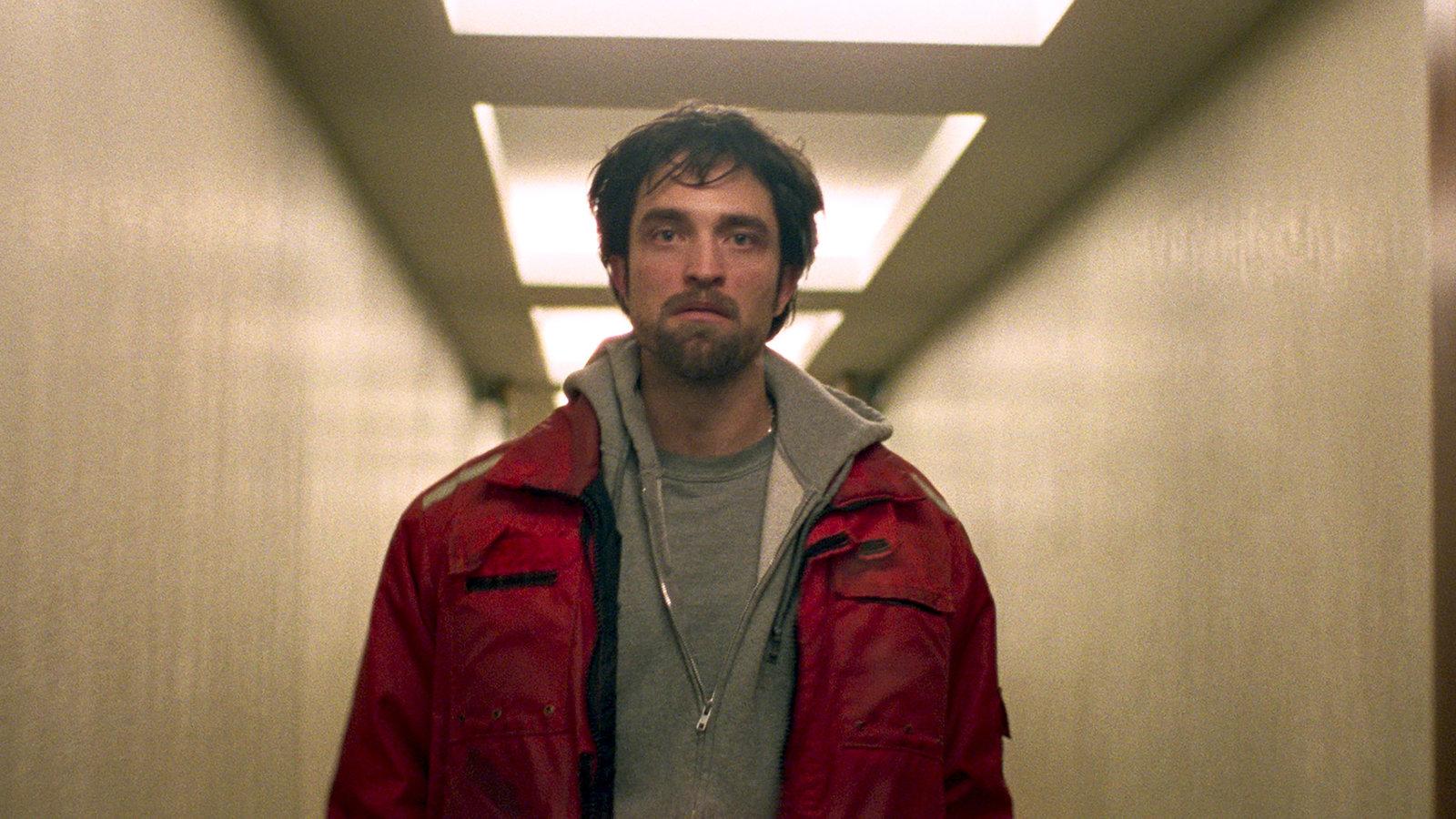
After he played a vampire but before he played the Batman, Robert Pattinson had a different career-boosting role as a brooding creature of the night. As a petit NYC criminal named Constantine "Connie" Nikas in Josh and Benny Safdie’s tense caper Good Time, Pattinson turned in a performance pulsing with resourceful machinations and shameful decisions. A spiritual cross between Christian Slater’s character in Very Bad Things and Ziggy Sobotka, Connie marked a real departure from the soulful Edward of Pattinson’s Twilight fame.
That was by design. It was Pattinson who initially reached out to the Safdies and not the other way around, as the actor wanted to move away from his Twilight fame by disappearing into a new role. The plan worked: Matt Reeves, who directed The Batman, saw Good Time while he was in the process of writing the film and “became dead-set” on casting Pattinson in the titular role based on what he saw from Connie. “He’s got an inner kind of rage that connects with this character and a dangerousness, and I can feel this desperation,” Reeves said, and the rest is history. —Katie Baker
69
James Franco as Alien, Spring Breakers (2012)
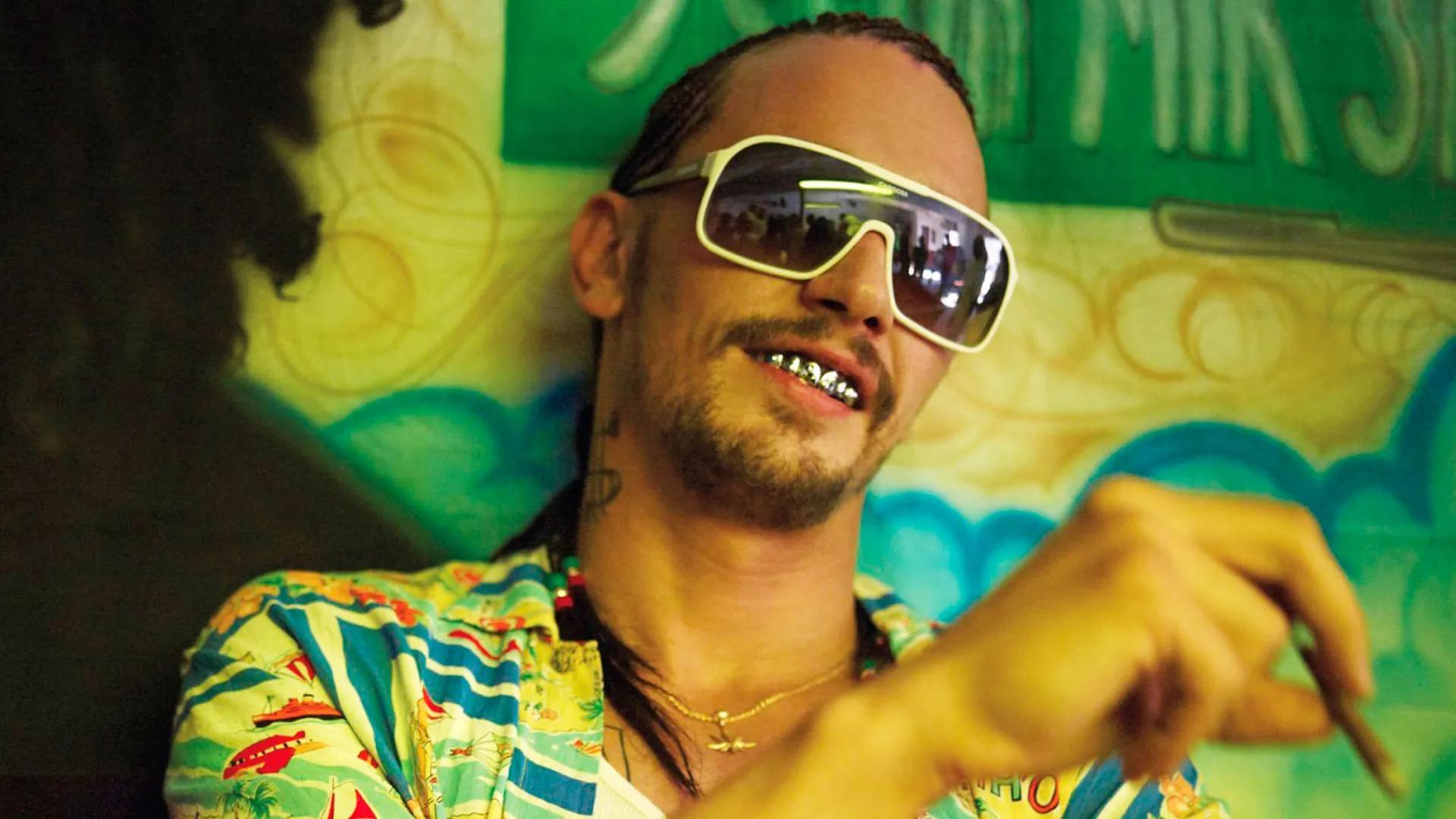
It’s not even close to the best performance on this list, but it’s the one I think about the most. While James Franco’s legacy has certainly changed since 2018—when students said that he engaged in sexual misconduct and exploitation at his acting school—it’s still hard to look away from Alien. He’s the most hypnotically ridiculous movie character of the past 25 years, a white drug dealer who has cornrows, a shiny grill, enormous sunglasses, and a bed that’s a fuckin’ art piece. He’s not from this planet, y’all.
Franco plays Alien like Riff Raff, and I’m sorry to say: It works. All of his lines are quotable. I mean: Every. Single. One. I challenge you to watch this monologue, which the actor delivers shirtless while wearing a pair of calf-length Zubaz shorts, only once. Seriously, just look at his shit. —Siegel
68
Ethan Hawke as Rev. Ernst Toller, First Reformed (2017)
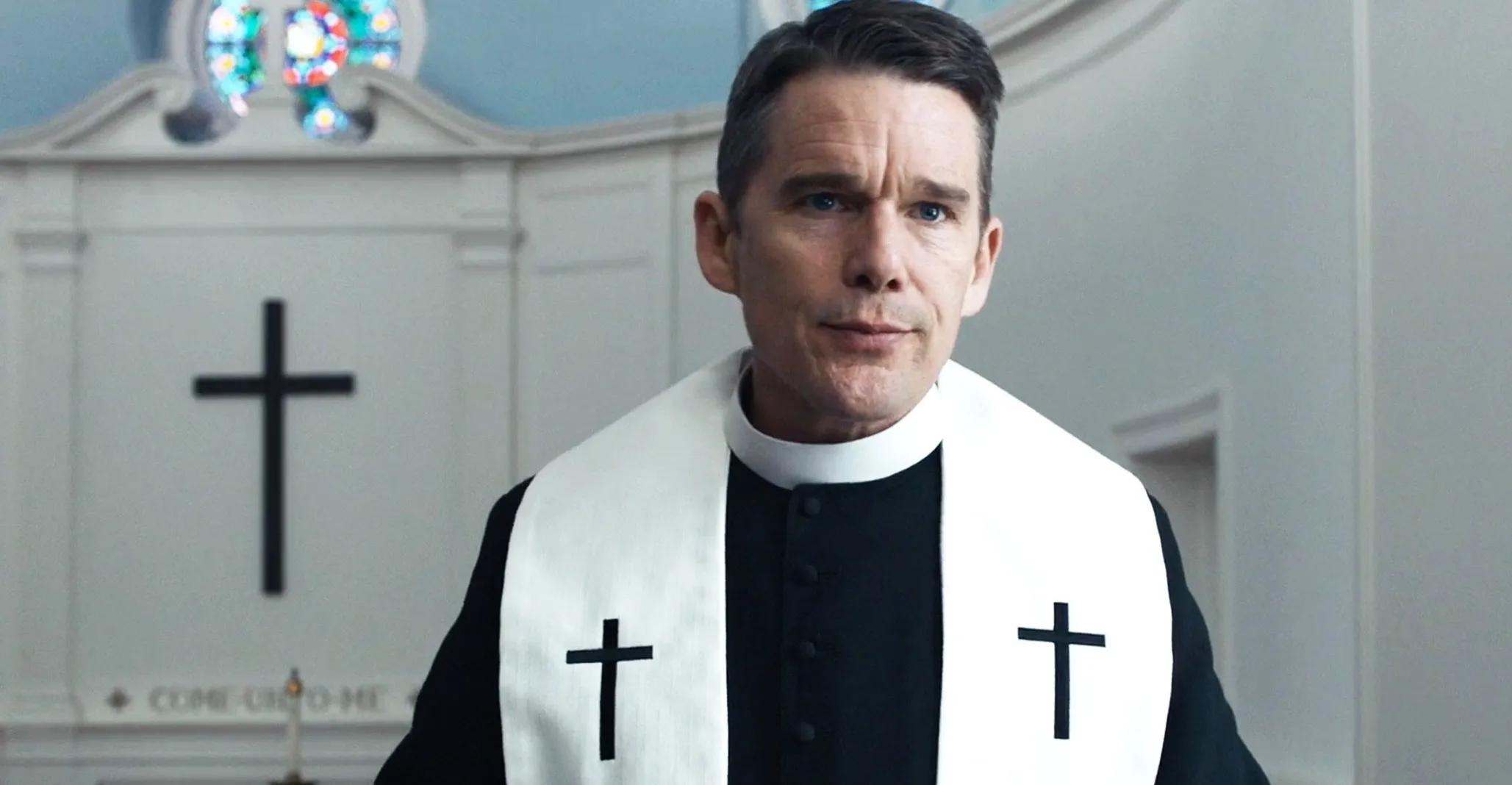
Paul Schrader’s best works all seem to circle the same doomed archetype: desperate, principled men (no matter how questionable those principles may be) inhabiting a world they find confusing, who start low and end up going even lower—and who, not coincidentally, end up on something like a suicide mission. There’s a straight line to be drawn between Taxi Driver, Hardcore, Mishima, and what’s easily his best movie of the 21st century, First Reformed. That descriptor is largely a testament to career-best work from Ethan Hawke, who embodies the classic Schrader protagonist better than anyone has since Travis Bickle shaved his hair into a Mohawk. As a struggling pastor named Ernst Toller, Hawke nearly literally loses his religion after finding himself shaken by the death by suicide of a troubled parishoner and ecoterrorist. Quickly, he finds himself seeing the cracks in everything he stands on—the hypocrisy of his church’s biggest benefactors, the rotting world we’re leaving behind for our children, his inability to love or be loved, and his unanswerable, pressing question: “Will God forgive us?” Hawke suppresses all of his boyish charm and cool-dad charisma to deliver something that’s quiet, plaintive, and exhilarating as it builds toward an explosive—figuratively, of course—conclusion. It’s enough to make you take your own Magical Mystery Tour out of your seat. —Sayles
67
Michael B. Jordan as Elijah “Smoke” and Elias “Stack” Moore, Sinners (2025)
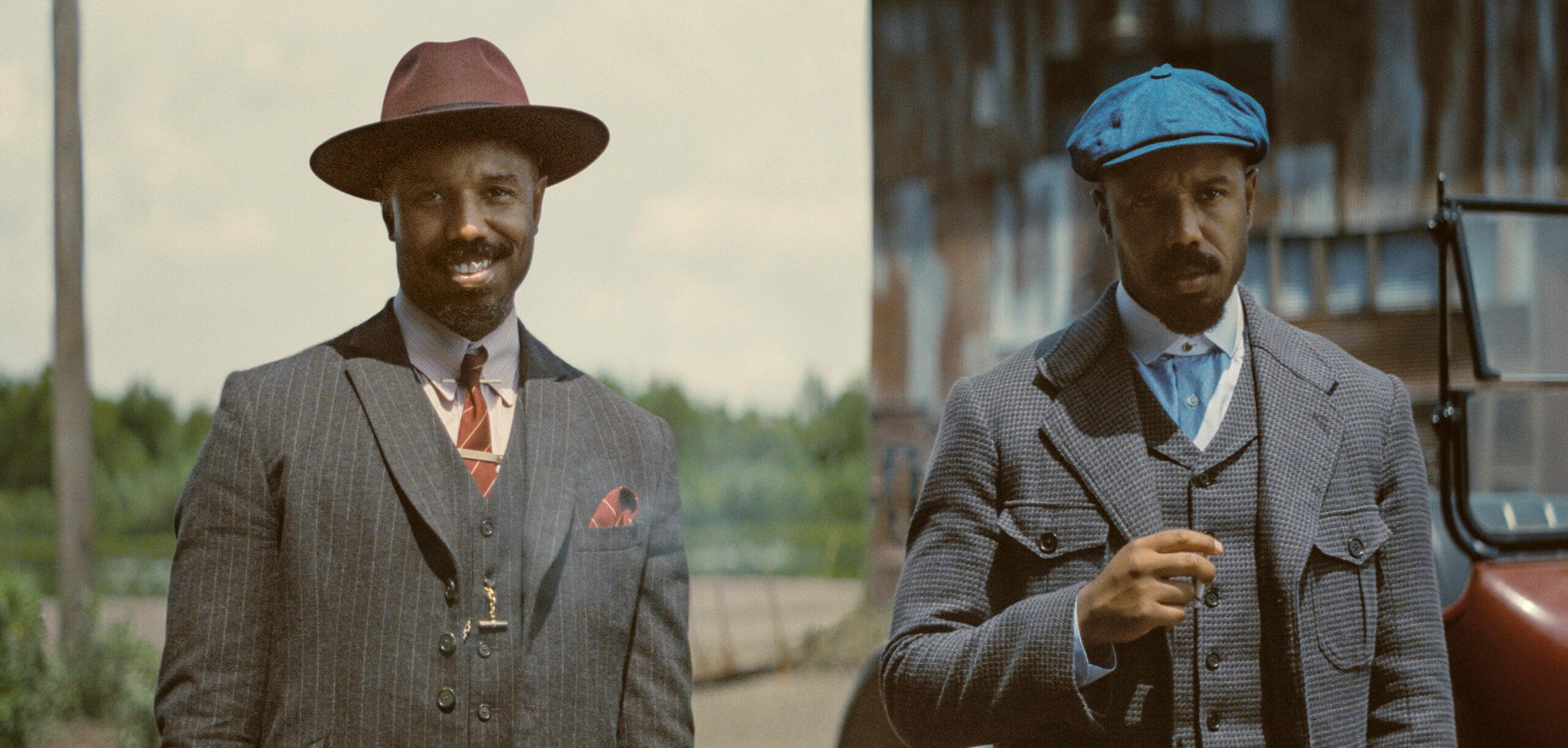
From Wallace to Adonis to Killmonger, Michael B. Jordan has proved himself an essential 21st-century performer across television and film. But his most recent (dual) performance as twins Elijah “Smoke” and Elias “Stack” in Ryan Coogler’s Sinners is transcendent and the best solo twin performance since Lindsay Lohan’s star-turn role in 1998’s The Parent Trap. The transformative performance is a match for Coogler’s vision, a truly fresh take on what horror can be: equal parts funny, emotional, campy, and socially and historically significant.
In Sinners, Jordan goes beyond charisma and craft. He excavates something raw, unnerving, and human while carrying the emotional, historical weight of Black men in the Southern United States. Smoke is impulsive, charismatic, filled with rage. Stack is quieter, methodical, and haunted. Jordan gives each character a unique personality and an entire life. His distinct body language, from brow bone to toes, informs the audience which twin they're watching at any given moment. Every shared scene is better than the next: Having himself as a scene partner is a challenge Jordan and this film needed. What makes his role in Sinners a performance of the quarter century isn’t just the technical brilliance—it’s how Jordan finds ground truth in both roles. And, vitally, how he makes spitting hot. —Carrie Wittmer
66
Timothée Chalamet as Elio Perlman, Call Me by Your Name (2017)
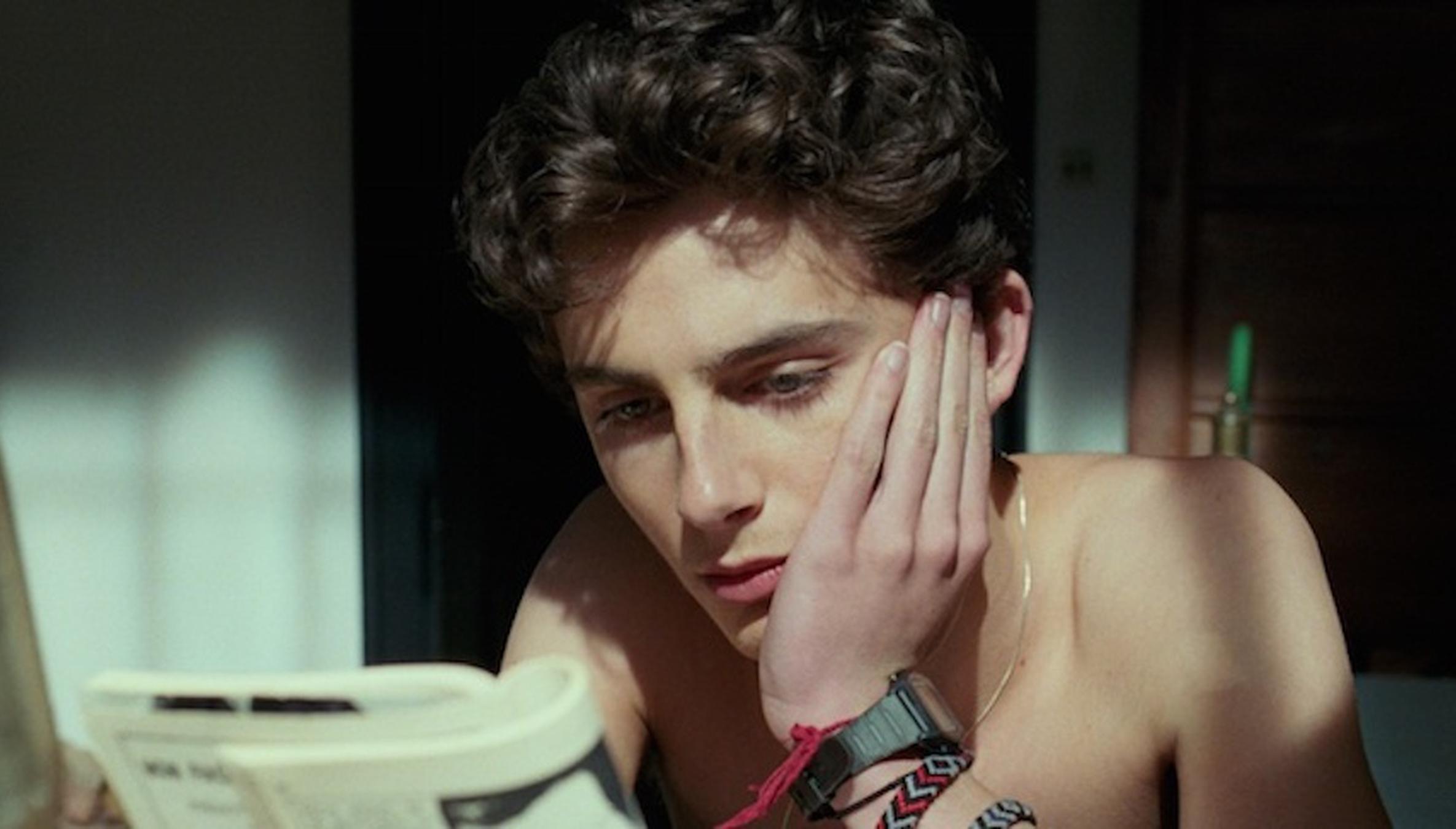
Timothée Chalamet’s first great feat was to breathe life into the fuckboy. Not just in Lady Bird, but in Call Me by Your Name, too, where he embodies the swagger and insecurity of the too-smart-for-his-own-good Elio, the knowingness and ignorance and false bravado of a pretty boy caught up in his first love affair and leaving the collateral damage of adolescence behind him, peach by peach. Even the spurned Marzia can’t blame him for his wrongs; maybe it’s because of all those longing stares, which speak to a soul-meets-body intensity that the rest of us wish our own personal fuckboys could feel, even if it’s not for us.
And yes, that yearning-by-the-fireplace scene has a life of its own now in the meme cycle. Sometimes, we mock the things that move us most, fearing the cringe instead of feeling the pain. But just admit it: When you watched that scene for the first time, feel something you obviously did—and it really is OK to feel the love for Timmy, instead of making yourself feel nothing, so as not to feel anything. —Hunt
65
Björk as Selma Ježková, Dancer in the Dark (2000)
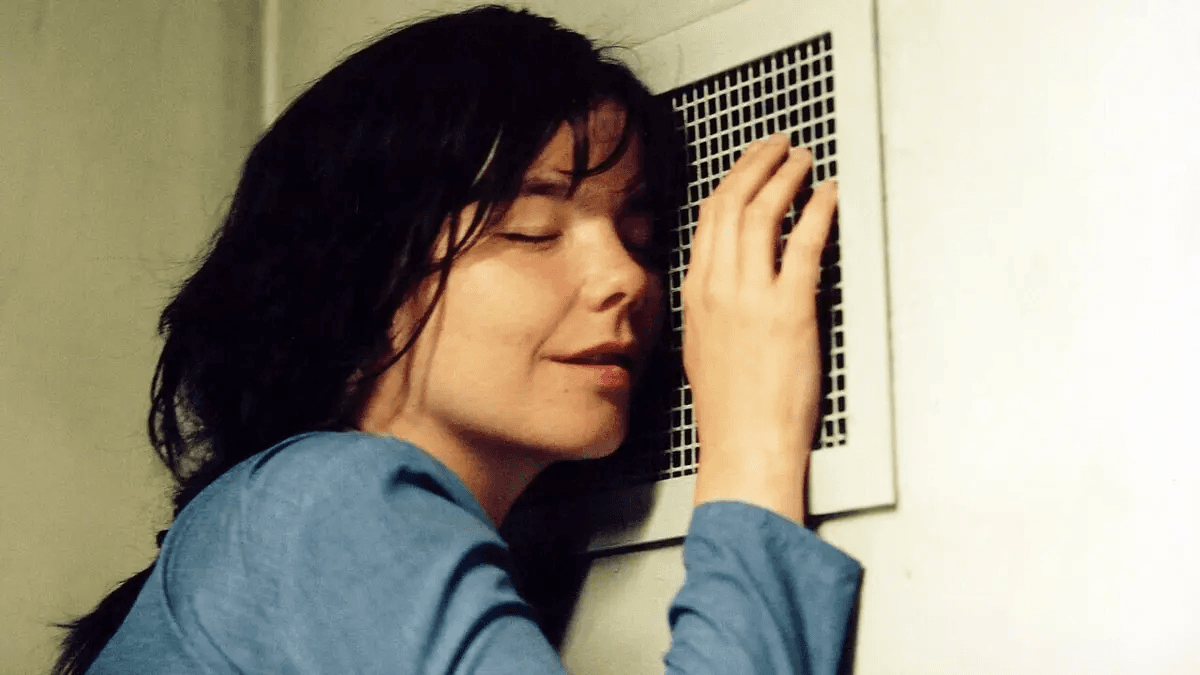
It’s sometimes easy to forget that it’s Björk at the center of Dancer in the Dark, until she starts singing.
Björk—in her first major film role—was really playing two characters in Dancer in the Dark: a classic Lars von Trier heroine who’s beaten down by parodic levels of tragedy, and a fantasy of the factory worker Selma, whose brightness could have come only from the singer. As Björk herself says, for most of the movie, she disappeared into the role, sinking so deep into her character that the singer herself slips out of view. The alchemy of the performance was likely in spite of Björk’s reported clashes with von Trier, ranging from disagreements over the music and dour tone of the movie to Björk’s reports of sexual harassment by the director. I think it would be wrongheaded to credit her acting to the abuse she says von Trier committed; the places she goes in the movie are hers alone to access, and it’s clear from what Björk’s said about Dancer in the Dark that she had a clear vision of her character that she wasn’t willing to give up for the director’s sake—a tribute to the similarly uncompromising Selma. Björk may never take on another role like Selma (whether because of her experiences on Dancer in the Dark or just because she prefers to make music), but her performance is proof of the magic she’s capable of even when she isn’t singing. —Hunt
64
Laurie Metcalf as Marion McPherson, Lady Bird (2017)
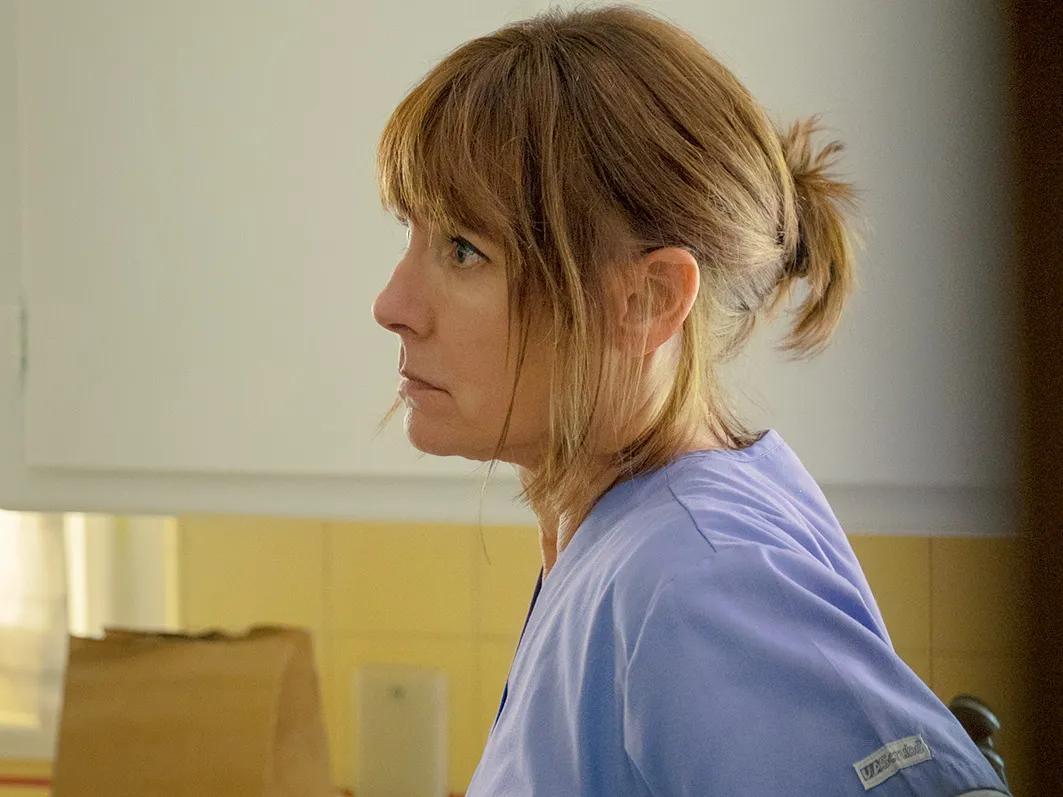
One of our finest living actors and a force of nature. She very much has the range. Metcalf is perfect in Lady Bird. Everyone talks about the airport scene at the end, and so will I, but her shining moment may be Christmas morning as the McPherson household sat around the tree. She apologizes that it’s a small Christmas this year, then watches her family open their presents. Her kids all get socks. Her husband, a luminous Tracy Letts, gets a decorative pillow. On the front: GOLFERS NEVER DIET, THEY JUST EXIST ON GREENS. Metcalf is hooting, hollering, giggling, shaking her head. “It just makes me laugh,” she says. Some actors can’t laugh on-screen and make it look authentic. They try and come off looking like they’ve never laughed a day in their lives. Metcalf knows her way around a laugh, and when she lets one go, the screen glitters.
And then there’s the car ride. It’s not the last scene in the movie, but it’s close. Metcalf and Letts drop Saoirse Ronan at the airport so she can fly to New York to attend college, a decision Metcalf is devastated by. She refuses to get out of the car while Letts takes Ronan inside. And Metcalf is cold and mad when she pulls out of the departure drop-off. The camera stays in the car with her as she circles the airport. We watch her wall come down and her face transform. We watch her work through her heart. We watch her regret. We watch her try to get back in time to hug her daughter. We watch her think and cry and panic and fail. —Parker
63
Saoirse Ronan as Lady Bird McPherson, Lady Bird (2017)
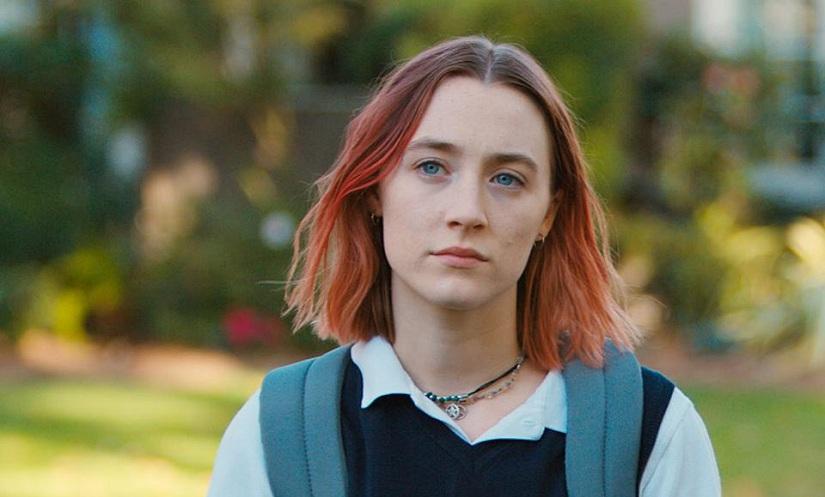
By the time Saoirse Ronan played Lady Bird (it’s the titular role!), she’d already been nominated for an Oscar twice. She was 23 years old. It is the mark of one of our finest young performers to be able to pull off the itchy self-righteousness of a teenager sure she’s ready to take on the whole world without immediately alienating the audience—basically, to convincingly play annoying with all the empathy, complexity, and power that annoying teenagers deserve to be met with but rarely are. If only all of our adolescent selves could have been played by Ronan when struck with a raging case of senioritis! Before Lady Bird, Ronan was mostly known for playing dramatic (and again, often Oscar-nominated) roles. To suddenly see her playing a Sacramento teen, performed with all the comedic wit and tear-jerking whimsy of Greta Gerwig’s pen, felt like discovering her all over again. —Walker
62
John C. Reilly as Dewey Cox, Walk Hard: The Dewey Cox Story (2007)
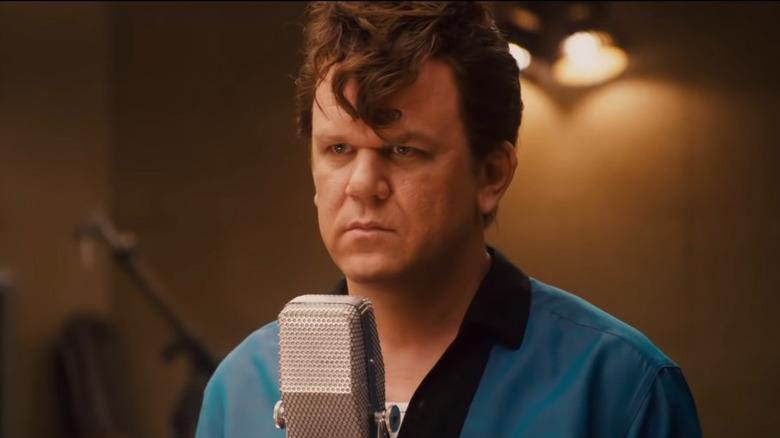
A performance so good that it turned a genre into a punch line. All the trope-heavy music biopics since, even the ones that won Academy Awards, have been compared to Walk Hard. That’s because of John C. Reilly. The movie was a parody, but his work was no joke. He sang and strummed dozens of songs himself. He didn’t lip-synch or rely on a stand-in. He didn’t just play genre-spanning artist Dewey Cox; he became him.
There were times, like the day on set when the star assumed a Bob Dylan–like persona, when it all felt real. “I remember standing up there rehearsing it and dressed like Dylan and feeling like, ‘Oh my God, I feel like Bob Dylan!’” Reilly told me for a Walk Hard oral history back in 2019. “It’s insane.”
Thanks to Reilly, Walk Hard is a fake music biopic that’s better than most real music biopics. Not that it stopped other filmmakers from walking hard themselves. “Oh, we tried to kill the musical biopic with this movie,” Reilly said. “And it turns out it’s a very resilient cliché.” —Siegel
61
Anne Hathaway as Kym Buchman, Rachel Getting Married (2008)
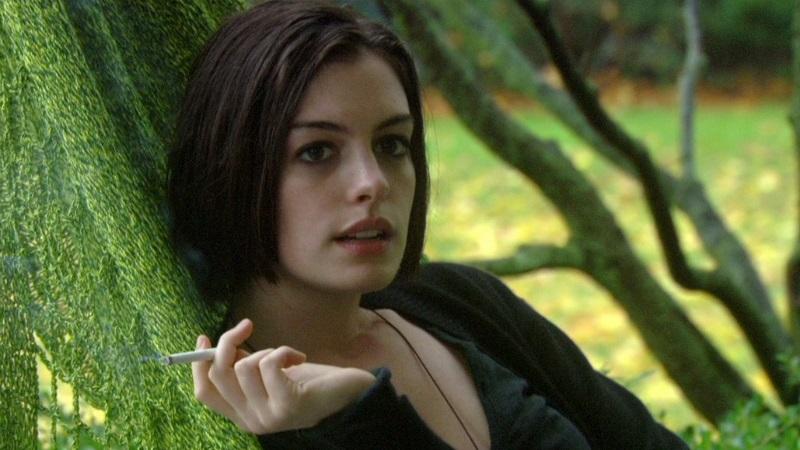
In 2008, the nonsensical backlash to Anne Hathaway was in full swing. Supposedly, she was unlikable because she “tried too hard”—whatever that means. It’s too bad for them because at just 25 years old, Hathaway was out there turning in a performance that most actors would take a lifetime to nail. In Jonathan Demme’s perennially undersung classic of familial tension, Hathaway’s Kym returns home from an umpteenth stint in rehab for her sister’s wedding, ready to raise hell. Addiction is so hard to get right, and most actors go big and play it to the rafters. Hathaway has moments of delusional grandeur here, sure, but the way she rides the tonal wave of what it’s like to know an addict is astonishing. One minute they’re promising you the world, reflections of the person you knew before this sickness flickering through. The next, they’re bellowing at you, full of rage. Hathaway finds that imbalance with shocking urgency, the film mirroring her inconsistencies and throwing you around with reckless abandon. All of the physical prerequisites are there: the bloodshot eyes, the sunken face. But it’s Hathaway’s internalization of what it means to live with this illness that shines through: a hurt, broken child begging just one person to do right by them. Anybody can play unlikable. The devastating reality of somebody like Kym is that you don’t dislike them. They’re too damn magnetic, which is why they’ve been able to get away with it for so long. Hathaway plays that with jarring accuracy and, in the process, proves that she was never unlikable. You just couldn’t handle authenticity. —Brandon Streussnig
60
Rooney Mara as Lisbeth Salander, The Girl With the Dragon Tattoo (2011)
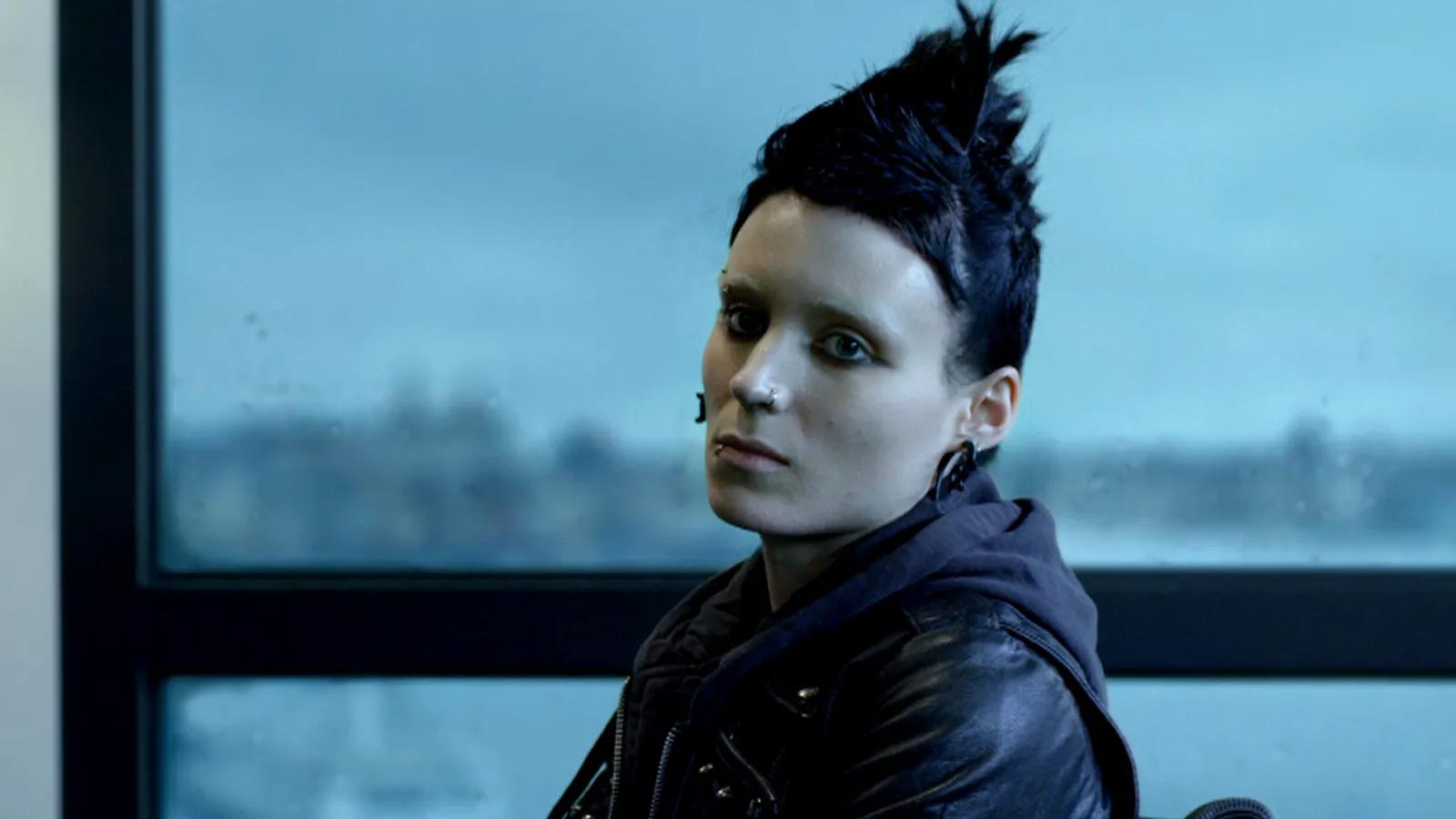
Given the unenviable task of re-creating instantly iconic character Lisbeth Salander for David Fincher’s American remake, Rooney Mara didn’t just put her own spin on it—she made the character inextricable from herself. An impossible mixture of feral, blunt, and delicate, Mara’s gait is what stands out the most. Somehow slinking into scenes but taking up the entire frame, her Lisbeth is a poison pill to a society that valorizes sadistic men. Shaved eyebrows, pierced nipples, rocking a “Fuck You, You Fucking Fuck” tee underneath a leather jacket, Salander should be a walking cliché. A hardened antihero with little interiority. In Mara’s hands, she exists within a complexity where she suffers horrific abuse and plays it with the traumatized pathos it deserves, but it never defines her. She isn’t an avenging angel without emotion but a woman who craves sensuality, love, and to be desired. Living within those polarities, the push and pull of wanting to be seen when your instinct is to disappear, Mara is unforgettable. We can’t predict how we’ll respond to traumatic experiences. Through Mara, Lisbeth Salander transcends pulpy paperback heroine and becomes an honest representation of what it means to survive pain. —Streussnig
59
Michelle Williams as Cindy Heller Pereira, Blue Valentine (2010)
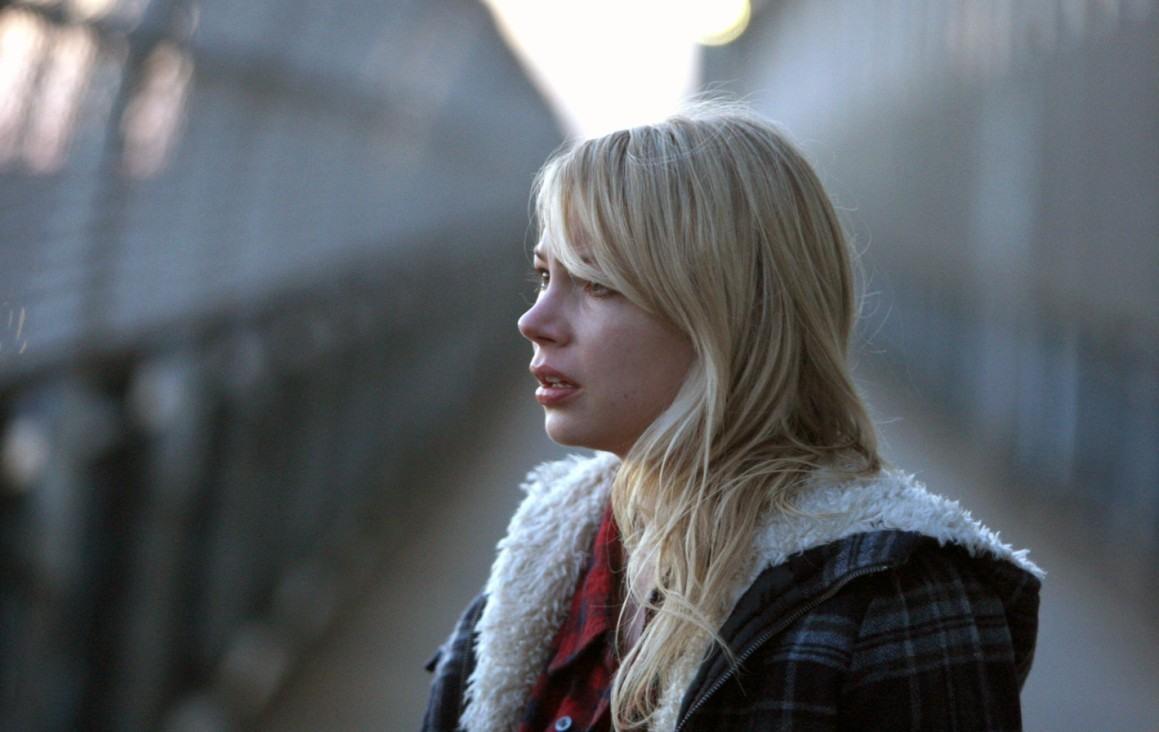
There are unfathomable levels of 2010 happening in this movie. (Ryan Gosling playing a ukulele? Handheld shots on the Manhattan Bridge? Closing credits set to Grizzly Bear?) But what could easily be written off as elder-millennial misery porn is transformed into something more resonant thanks to Michelle Williams, who plays a working-class mom having to deal with two children—her young daughter and her adult husband. The smash cuts across two timelines only accentuate what she’s able to do in the role, shrinking from a wide-eyed firecracker to someone who's been beaten down by years of living with a partner who can’t grow alongside her. Your mileage may vary on the whimsical tap dancing—again, it was the Great Recession—but you’d be hard-pressed to find a more grounding performance in a film that needs one. —Sayles
58
Choi Min-sik as Oh Dae-su, Oldboy (2003)
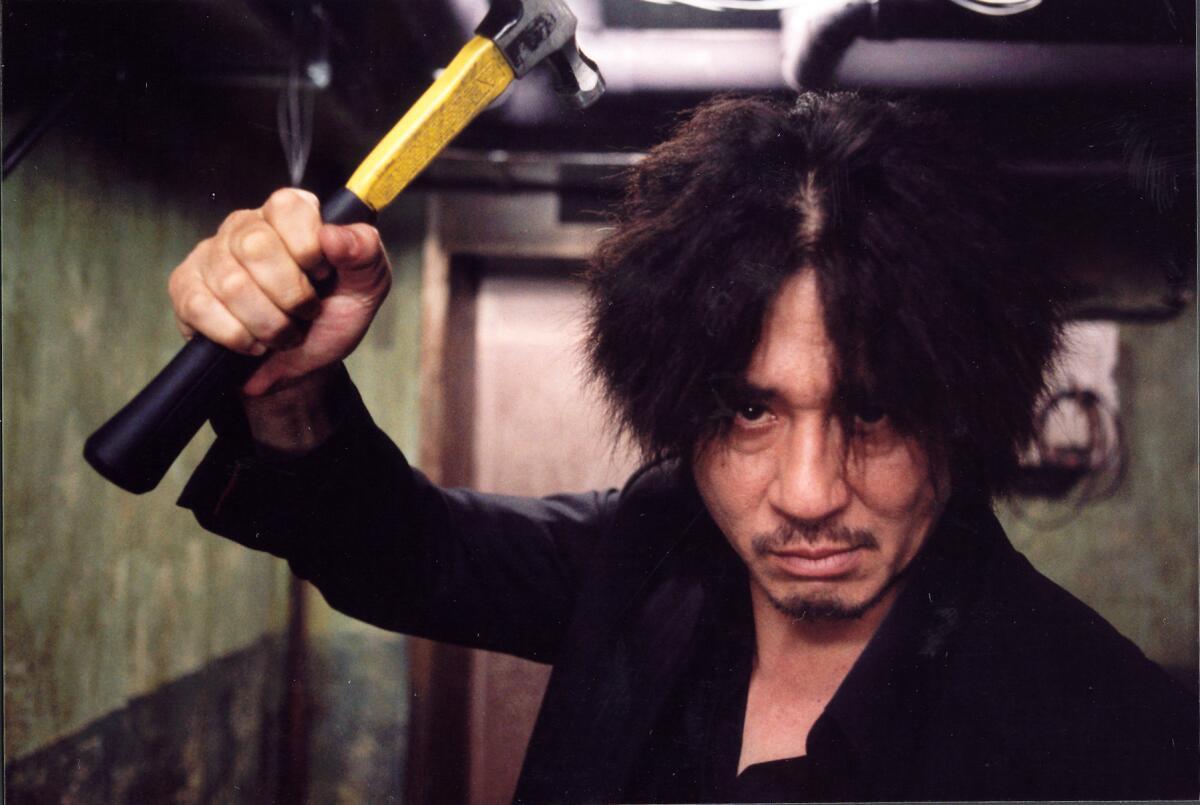
Give Choi Min-sik this: He’s the only actor on this list who consumed four live octopuses to get here. As the title character of Park Chan-wook’s hallucinatory psychological thriller Oldboy (real name: Oh Dae-su), Choi swallows his pride along with those cephalopods—he’s drugged, imprisoned, framed for murder, beaten, tortured, and thoroughly mind-fucked. He’s the oblivious and increasingly enraged victim of a conspiracy that, in the best paranoid tradition, winds backward into his own unsavory past. He also gets to dish out his share of punishment, though: The film’s side-scrolling, single-take, 40-against-one hallway fight is one of the great contemporary action set pieces, and Choi, who did his own stunts, shot about 15 takes to get it right. The madness of his method paid off—Oh Dae-su is an indelible antihero who goes through the wringer and gets the happy ending (or is it?) that he deserves. —Nayman
57
Emma Stone as Mia Dolan, La La Land (2016)
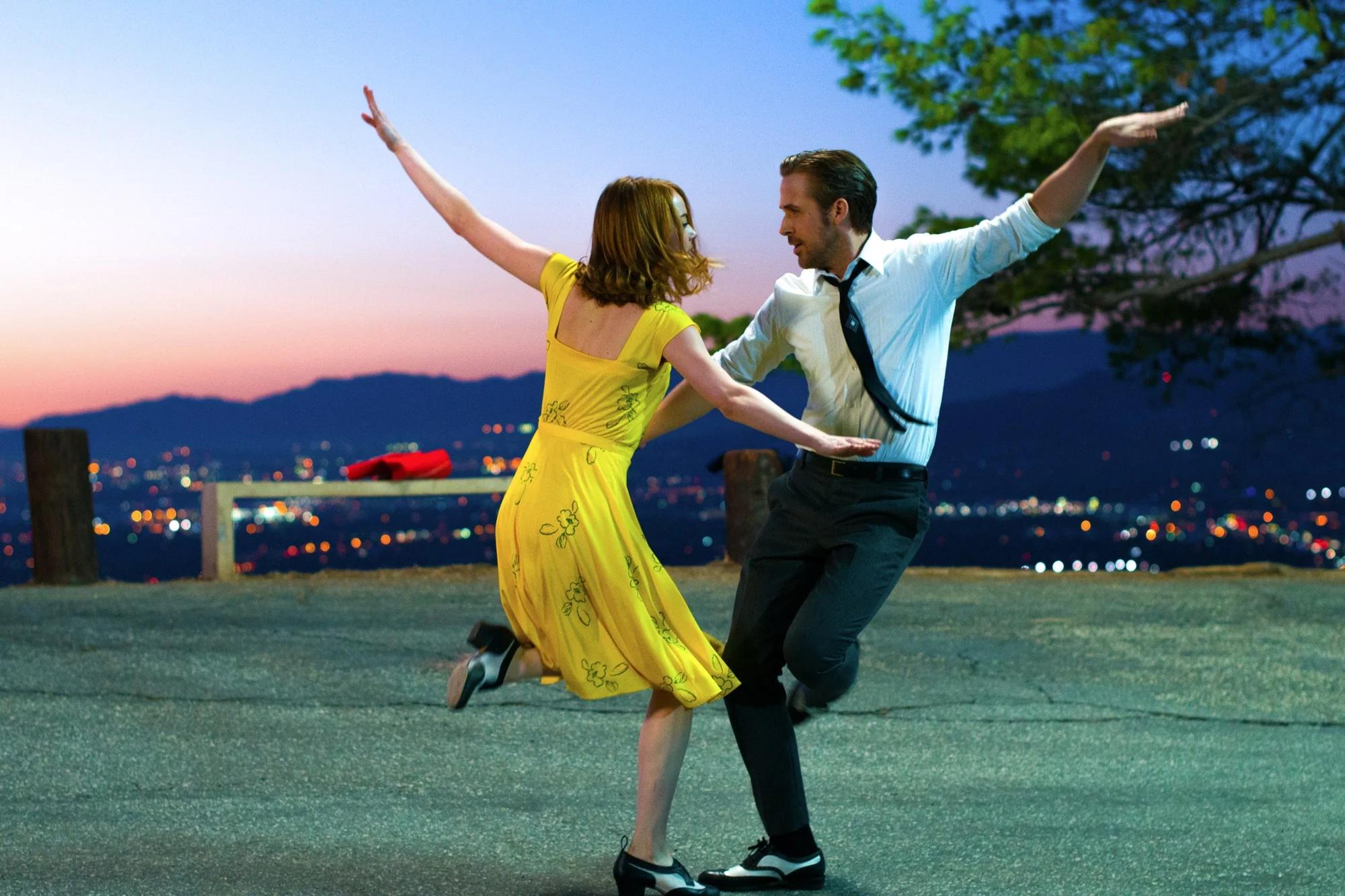
I think a lot about Young Jeezy. Over the past 20 years, the Atlanta native has become a supremely competent rapper, the kind who can be plugged onto pop singles and work in a syntax that’s comfortable for radio listeners and mainstream fans. But he’s never been able to recapture the magic of his 2005 debut album, Let’s Get It: Thug Motivation 101, where his technical incompetency—a series of one- or two-bar punch ins, rhyme schemes, and cadences that could be described as elementary—served only to underscore the clarity with which he saw the world and his hunger to bend it to his will. When La La Land was announced, the news that Emma Stone and Ryan Gosling would be doing their own dancing and singing was met with incredulity: Why? But the timidity with which Stone approaches those sequences as Mia, an aspiring actress, is a perfect distillation of the precarity and self-doubt with which the industry and city can suffuse the people who make them run. —Thompson
56
Julianne Moore as Cathy Whitaker, Far From Heaven (2002)
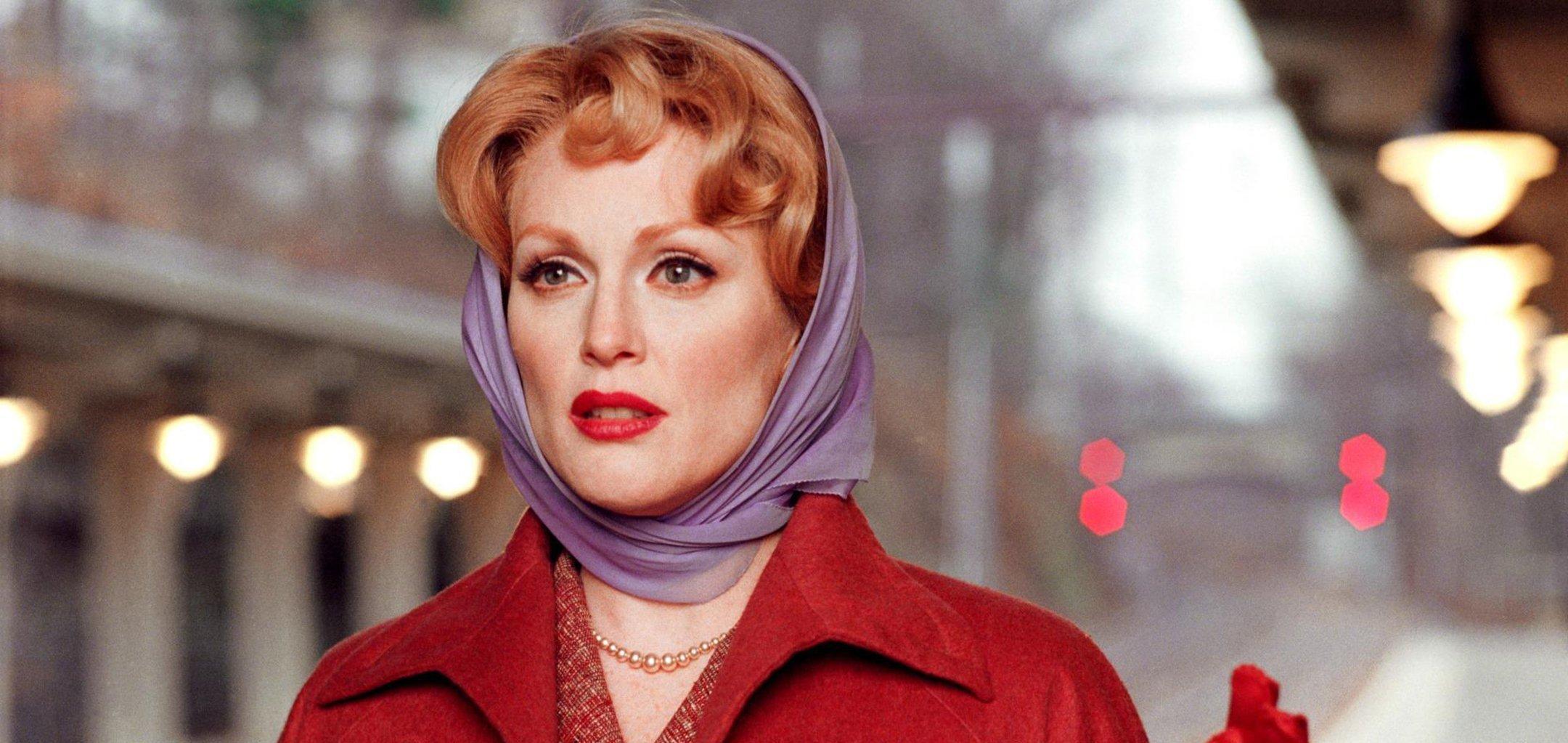
Todd Haynes’s greatest muse doubles as the engine for one of his boldest creative swings: a Douglas Sirk–style melodrama that also aims to capture modern themes. As Cathy Whitaker, Julianne Moore nails the tone and mannerisms of a ’50s housewife with pinpoint precision, but she’s also masterful in her reactions to the discovery that her husband is gay (the post-solicitation police station scene alone should’ve won her an Oscar) and in moments when she seeks refuge in her growing romance with her Black landscaper. It’s a character who’s long used to burying their emotions letting them bubble to the surface, and as upper-middle-class anxieties go, the movie’s nearly on par with the ’90s Haynes-Moore classic Safe. Thirty years on, and just a few after the master class of May December, the actor and director have cemented themselves as a pairing on par with Scorsese and De Niro or Spike and Denzel—and perhaps one capable of dreaming bigger. —Sayles
55
Michelle Yeoh as Yu Shu Lien, Crouching Tiger, Hidden Dragon (2000)
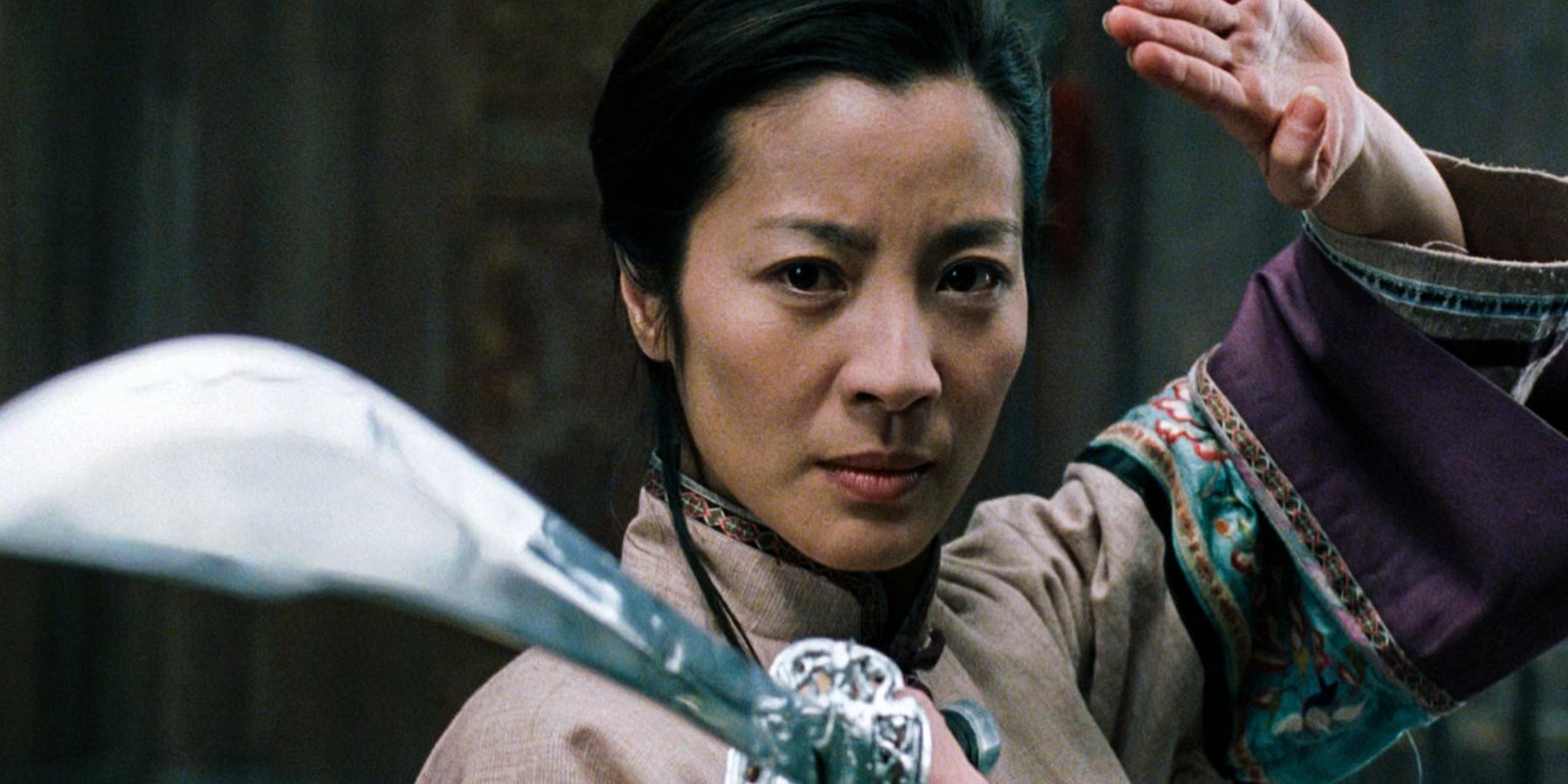
The most celebrated actors of the 21st century are often the best at selling exertion. There’s a reason the Oscar race tends to reward extremity (e.g., Leonardo DiCaprio in The Revenant or Brendan Fraser in The Whale). Performance as an Olympic feat is easy to hawk on- and off-screen.
In contrast, Michelle Yeoh is a devastating ball of restraint and control in 2000’s Crouching Tiger, Hidden Dragon. The poetry of Yeoh’s movements relies on her ability to erase the effort. Her martial arts are akin to breathing. Shu Lien’s entire existence—from her tragic love story with Mu Bai to the generational war with Jen—can be mapped by the sheer grandeur of each set piece, but it never points to the absurdity of its difficulty.
Yeoh is a subtle actor, her face just as much of a honed muscle as the rest of her body. The most devastating moment in Crouching Tiger arrives as Shu Lien listens to Mu Bai confess his feelings before dying. As the camera holds on Yeoh’s face, her watering eyes demonstrate a decade of lost time and regret even as Shu Lien’s mask holds strong. It’s as if every fiber in her cheekbones is resolved not to scrunch into despair. When Yeoh’s pained and tearful kiss finally finds her lover’s lips, the kick lands harder than any other blow in the entire movie. —Charles Holmes
54
Christian Bale as Patrick Bateman, American Psycho (2000)
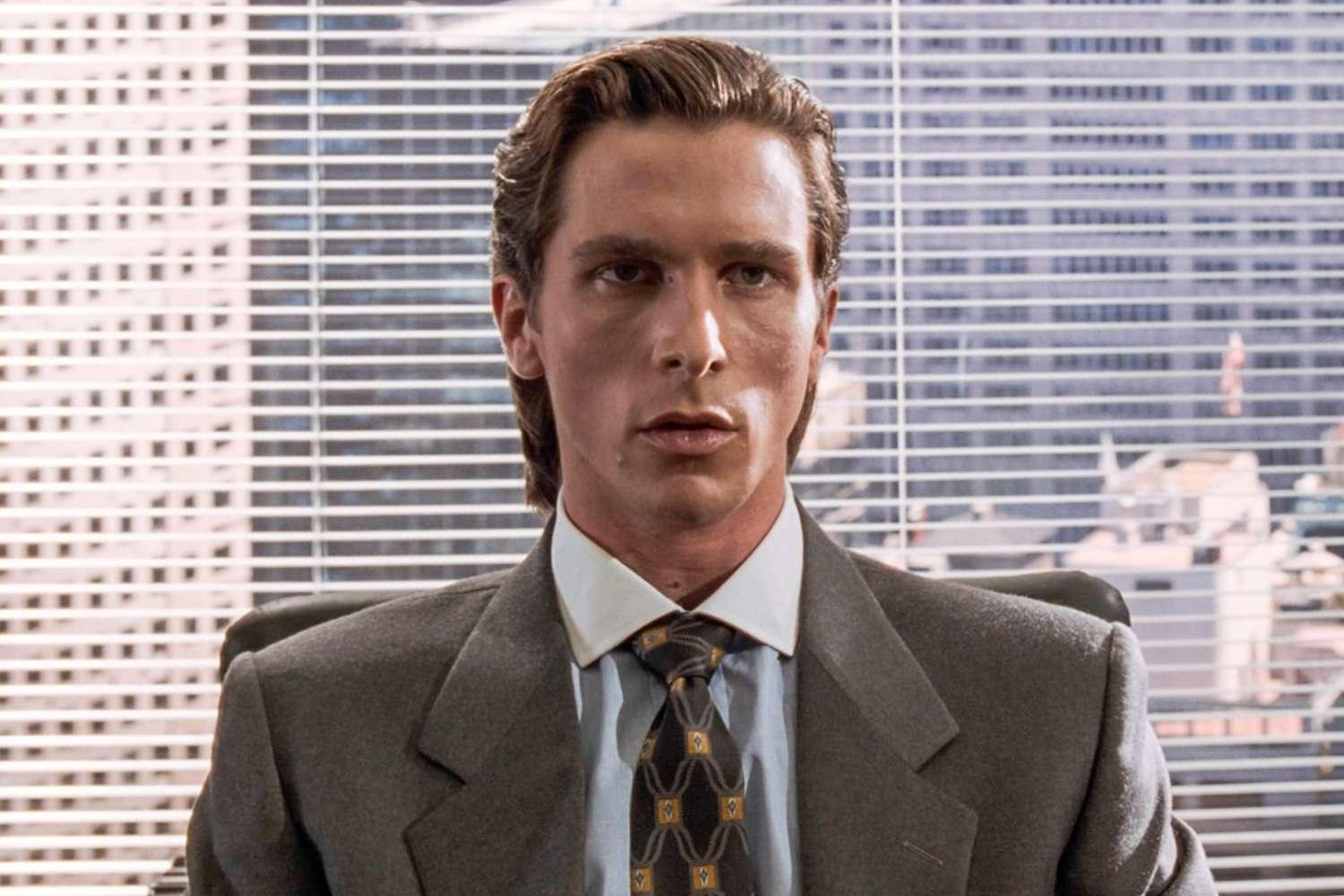
The first time I saw American Psycho, it confused me—a 13-year-old who wasn’t exactly sure if everything I’d just watched was legitimately scary, merely disturbing, or simply artificial. The last time I saw American Psycho, I wondered whether Christian Bale was, in fact, the funniest person alive. It’s easy to bungle a satire, but few things are more satisfying than a razor-sharp depiction that slices through every nook and cranny of its target. That’s exactly what Bale does.
It's 1987, and Bale's Patrick Bateman is a soulless financier with psychotically violent fantasies. Just about everything about him is hysterical, from the devotion to a well-considered and insane glam routine (that’s ironically back in style) to being transfixed by “The Lady in Red” while he’s supposed to be working, to dropping a chainsaw down a staircase with the concentration of a jeweler peering through their loupe. Bale is more than committed to creating a douchebag for the ages. Needless to say, he succeeds. —Pina
53
Penélope Cruz as Raimunda, Volver (2006)
For a film that deals with dark subject matter such as death, grief, and sexual abuse, Pedro Almodóvar’s Volver is still uplifting and unexpectedly funny. The 2006 film balances its high drama and its comedy with a natural ease, carrying the weight of its solemnity without its playful humor ever undercutting its sense of purpose. That speaks to the masterful filmmaking of Almodóvar, who wrote and directed the movie—but it’s also a product of Penélope Cruz’s dazzling performance at its center.
Cruz stars as Raimunda, a mother living with her daughter in the suburbs of Madrid whose tragedies are varied and ever growing. Starting with a self-defense killing in the family, Volver is full of unexpected twists and turns, and Cruz is the perfect guide to lead the audience on its startling cinematic journey. Raimunda is witty, razor-sharp, and kind—yet she carries a deep sadness that surfaces in her rare moments of unguarded vulnerability. She uses her charm against her friends, family, and neighbors in a way that feels less manipulative than it does resourceful. And Cruz plays the part with a confidence that makes Raimunda seem real and lived in, with relationships that are so believably authentic and full of history.
Cruz’s performance in Volver earned her a nomination for Best Actress at the Academy Awards in 2007; she was the first Spanish woman to ever receive a nomination in the category. She may have been denied the ultimate honor that year, but she would later make history again when she became the first—and, to this day, only—Spanish actress to win an Oscar for Best Supporting Actress for her performance in 2009’s Vicky Cristina Barcelona. —Daniel Chin
52
Ralph Fiennes as Monsieur Gustave H., The Grand Budapest Hotel (2014)
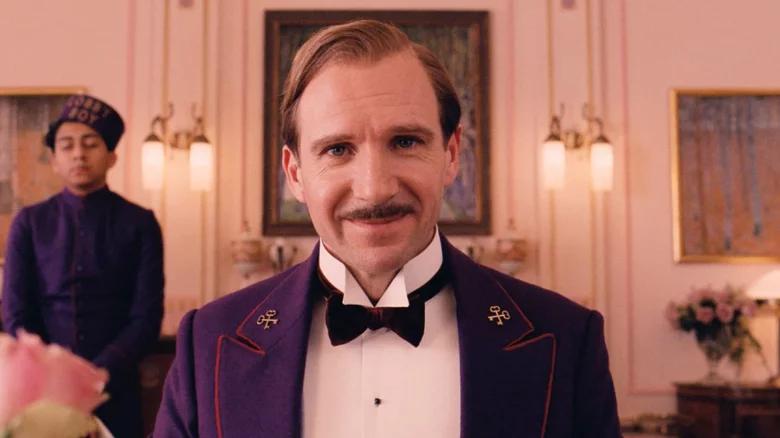
It’s almost miraculous that Wes Anderson films have been home to so many great performances. Anderson exerts total control over every inch of every frame and over every line of dialogue, an approach that seemingly ought to stifle his cast’s ability to make characters their own. Yet, in film after film, actors not only deliver some of their best work but also showcase aspects of their craft unseen in others’ movies. Fiennes was no stranger to comedy before The Grand Budapest Hotel, but nothing in his previous work suggested that he could play a character like Gustave H., the concierge at the luxurious eponymous hotel who, in the most winning and unapologetic way possible, philanders his way through his employer’s aging, wealthy clientele. (“I go to bed with all my friends,” he nonchalantly explains.) The embodiment of an old world about to be swept away by the tides of history, Fiennes conveys the character’s charm and innate innocence, giving a human face to what’s lost when one era ends and another, crueler one begins. —Keith Phipps
51
Will Ferrell as Ron Burgundy, Anchorman: The Legend of Ron Burgundy (2004)
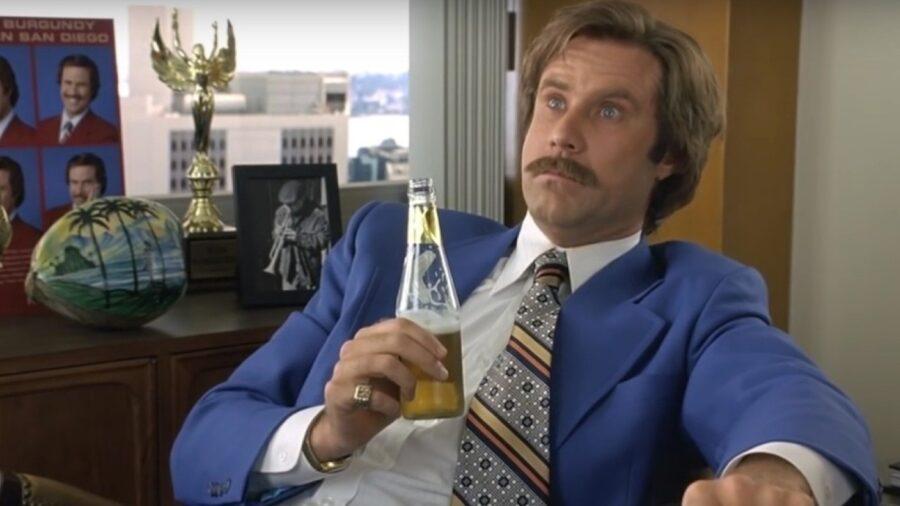
Hear me out: There’s a 2019 podcast clip of comedians Kristen Schaal and Anthony Jeselnik arguing, politely, about whether comedy depends 100 percent on surprise. Jeselnik says yes: A punch line is a surprise that makes you laugh, period. But Schaal argues that sometimes comedy is about commitment: A punch line can be a slow, escalating, unwavering, inevitably uncomfortable refusal to abandon the bit. Chris Farley auditioning for the Chippendales on SNL is her example of total commitment as punch line; Will Ferrell in Anchorman is mine.
You can rhapsodize about his performance as clueless, tactless, ultra-entitled, super-macho, George W. Bush–era incarnate doofus Ron Burgundy entirely via one-liners and memes: “Well, that escalated quickly.” “Go fuck yourself, San Diego.” “I’m in a glass case of emotions.” But what makes this character undeniable is the 60 seconds Ferrell spends beforehand in that glass case of emotions, wailing uncontrollably. It’s excessive, it’s unpleasant, it’s extraordinary, and it’s a phone booth, but you knew that. Everybody does. Anchorman is eternal because every second this guy’s on-screen, you think, He can’t keep this up, but he never stops, whether he’s brawling with Christina Applegate, or crooning “Afternoon Delight,” or (personal favorite) sliding under the bathroom stall while playing the jazz flute. “That escalated quickly” makes this movie eternally quotable; Will Ferrell’s heroic and unstoppable escalation makes it eternally great. —Harvilla
50
Russell Crowe as Maximus Decimus Meridius, Gladiator (2000)
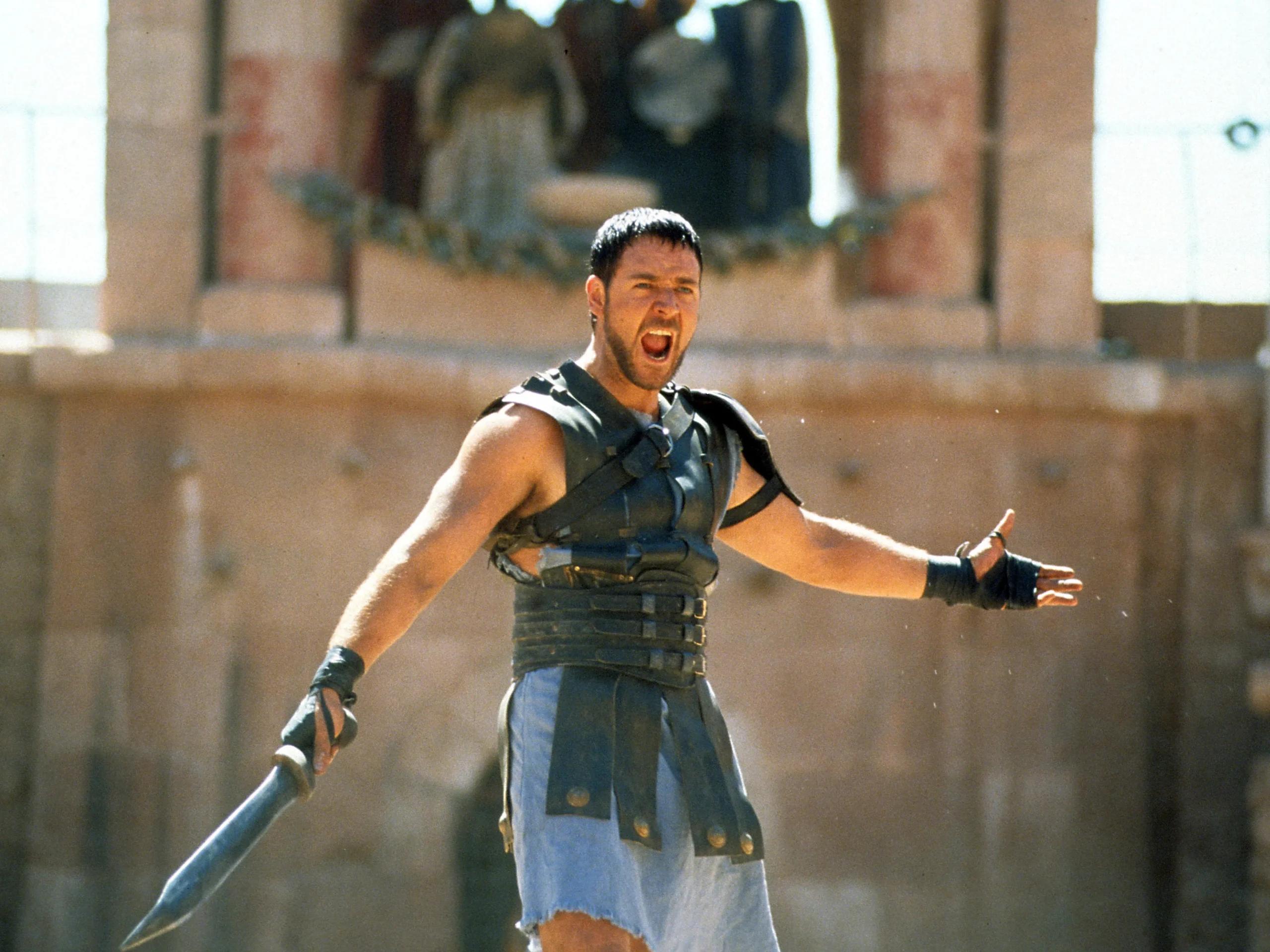
Russell Crowe got Gladiator because Mel Gibson said no. That was lucky for Crowe, and fortunate for fans of swords and sandals, because nobody could’ve been a better Maximus Decimus Meridius than the literal Best Actor. Crowe has been involved in numerous off-screen altercations, but the on-screen fights in Gladiator left his body banged up; he suffered for his art. The filmmakers may have suffered some, too, when Crowe balked at speaking some of the dialogue in the amorphous script, but he also suggested or improvised certain scenes and lines that made the story stronger. And regardless of who wrote Gladiator’s most memorable material, Crowe’s deliveries cemented the movie’s reputation for being incredibly quotable.
Crowe’s physicality and quiet intensity gave Gladiator a gravitas it otherwise might have lacked; the movie made him a major star, and he made the movie a Best Picture winner. On paper, the logline for the second-highest-grossing release of 2000 might have sounded like a formula for a forgettable, pulpy popcorn flick, but when Maximus asked, “Are you not entertained?” Crowe could anticipate his audience’s answer. —Ben Lindbergh
49
Forest Whitaker as Idi Amin, The Last King of Scotland (2006)
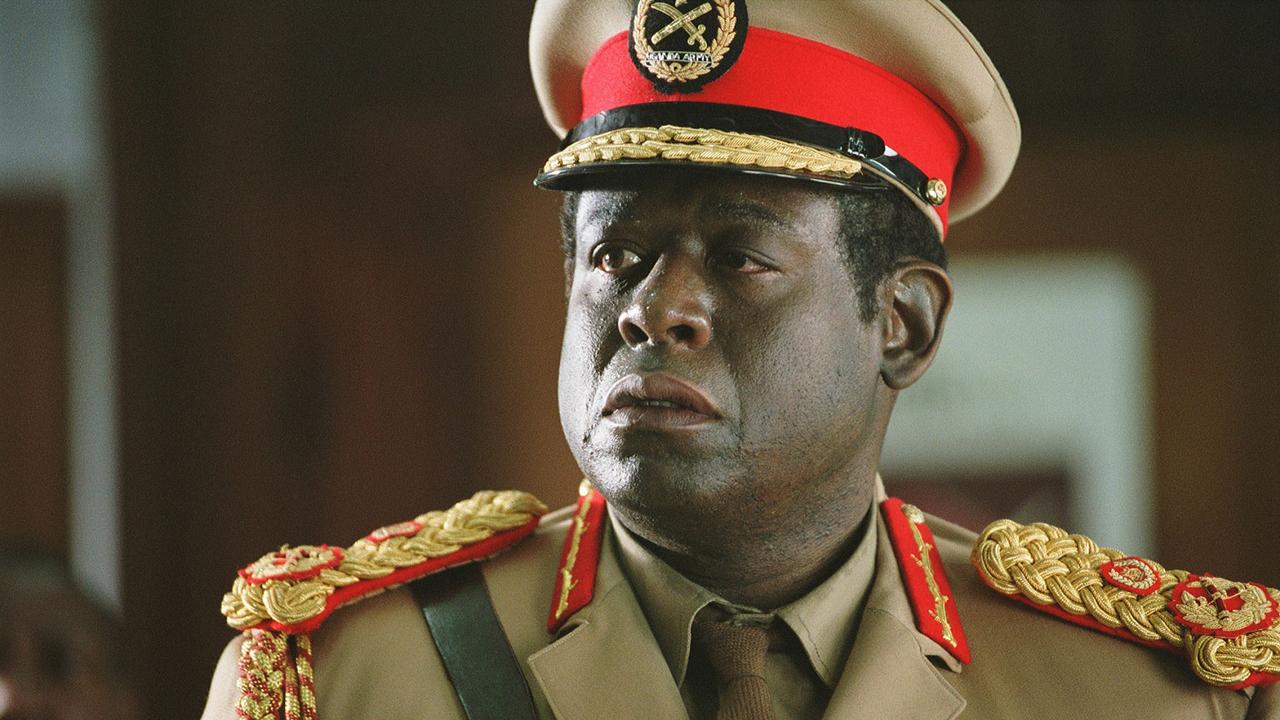
It’s the most terrifying performance I’ve ever seen. It’s terrifying because it’s so unpredictable. Forest Whitaker’s Idi Amin swings from dead-eyed contempt to sudden hilarity, from knife’s-edge paranoia to easygoing charm, from charismatic idealism to brutal violence, often when you least expect it. Many actors have played volatile characters, but true unpredictability is hard to achieve in a medium where all the material is scripted in advance. You can try, as an actor, to stay in the moment, but what you do on the second page of a script will almost inevitably be informed by what you know is coming in the third. The greatness of Whitaker’s performance in The Last King of Scotland is that he makes you believe that the next page hasn’t been written yet. He could truly go in any direction at any moment, and because he’s playing a murderous dictator, the uncertainty is both utterly compelling and intensely frightening. Last King is (sorry) a problematic movie in many ways, and it’s a strange movie in almost every way, but Whitaker’s Amin expands our understanding of power itself. I’m more afraid of him than of Hannibal Lecter. —Brian Phillips
48
J.K. Simmons as Terence Fletcher, Whiplash (2014)
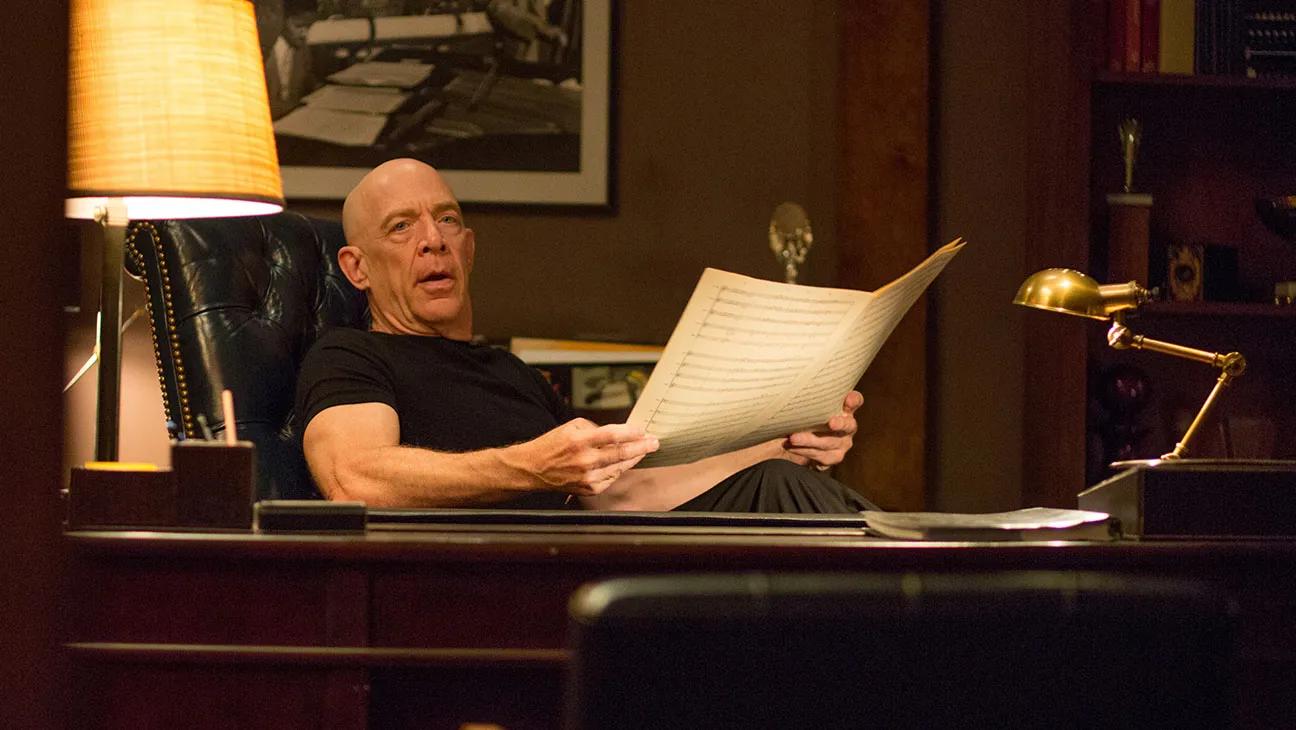
J.K. Simmons was a great J. Jonah Jameson, but it’s his performance in Whiplash that he’ll likely be most fondly remembered for—which is a bit of an odd thing to say about a tyrannical, abusive master manipulator. The psychological torture inflicted by Simmons’s Terence Fletcher isn’t just a collection of screaming temper tantrums—it’s the subtle gaslighting, the backhanded compliments, and the true conviction in his demanding methods that make the character so complex and, at times, dare we say, strangely endearing. This is a man in pursuit of pure excellence, and the competence on display can almost pull you on his side, even if his occasional charisma too often gives way to dehumanizing ruthlessness. Suffice it to say, this was a fine line for any actor to walk, but Simmons managed to nail the tempo and win a hugely deserved Academy Award. —Jenkins
47
Olivia Colman as Queen Anne, The Favourite (2018)
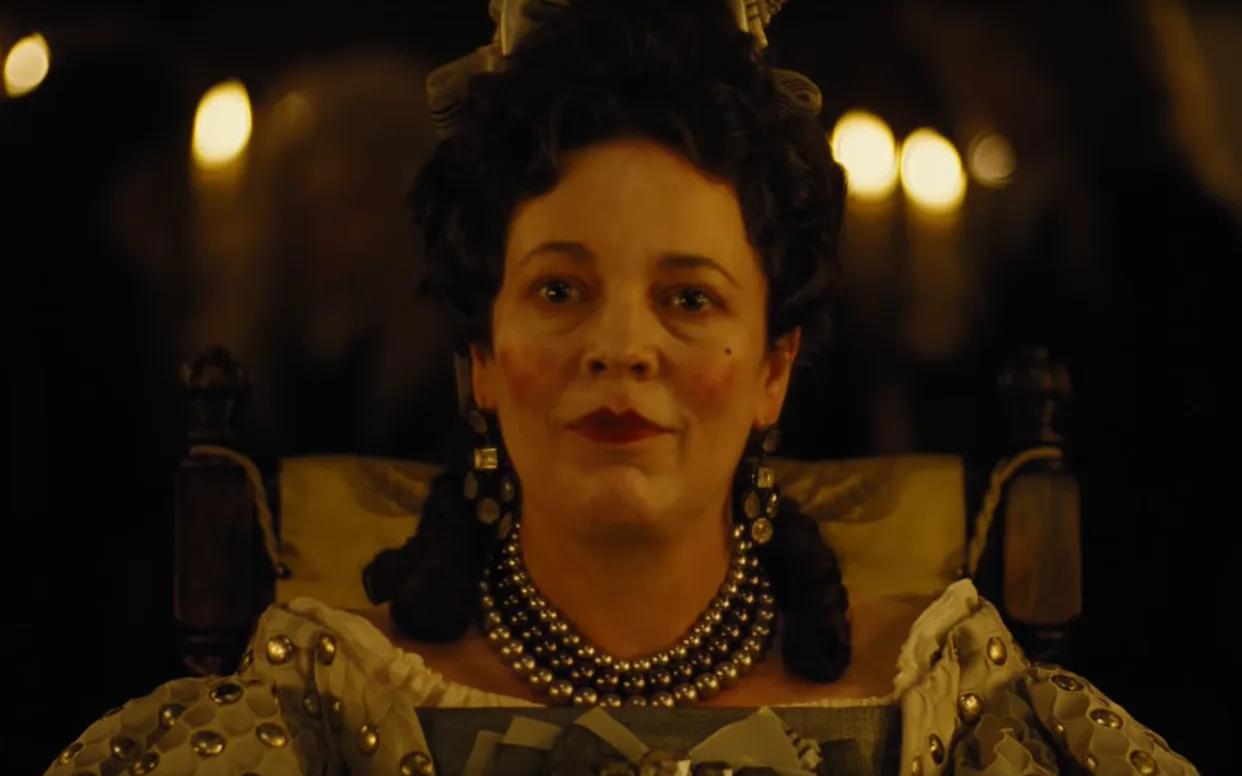
By the time Yorgos Lanthimos’s absurdist black comedy take on the British crown premiered in 2018, Olivia Colman was already a beloved actress in the U.K. But it was The Favourite that vaulted Colman to international—and Academy Award—recognition, and deservedly so. Her turn as Queen Anne, the at-once aloof, eccentric, and deeply tragic 18th-century ruler of Great Britain, brims with equal parts pathos and humor. In just a minute-long scene, we witness the delight on Colman’s face as she introduces Abigail Hill (Emma Stone) to her 17 rabbits and then wilts into despair as she explains how the pets symbolize her children, who were either miscarried or died in infancy. At other times, Colman’s expression sours into seething jealousy, like when Sarah Churchill (Rachel Weisz), the Queen’s confidante and secret lover, shares a dance with a member of the royal court. It’s fitting that in a movie in which Abigail and Lady Sarah vie for the affection of Queen Anne, Colman—with all due respect to the superb displays from Stone and Weisz—emerges as the star. Watching her performance truly feels like a prize worth winning. —Jenkins
46
Delroy Lindo as Paul, Da 5 Bloods (2020)
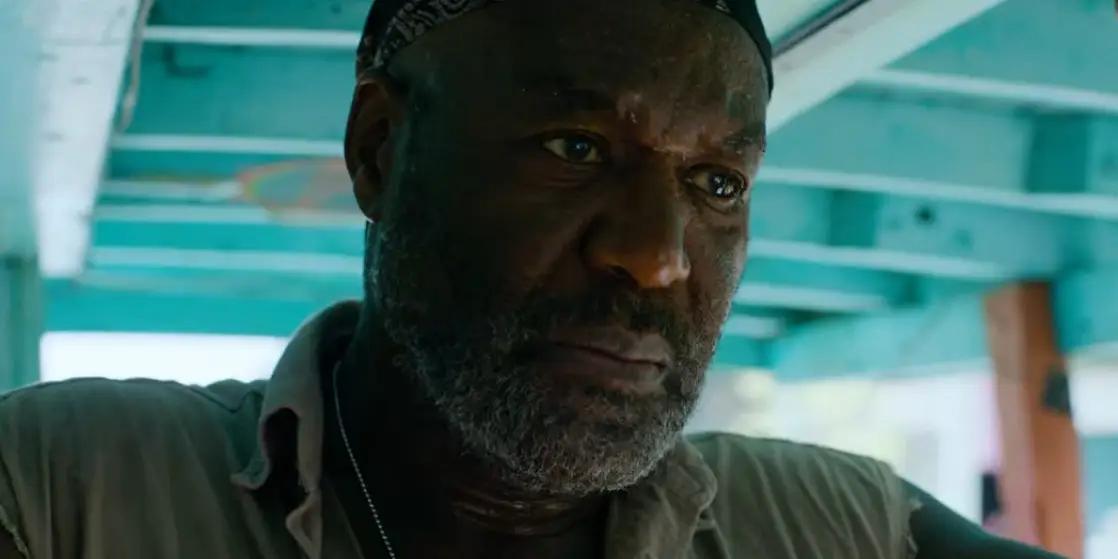
Swirling with contradiction, Delroy Lindo’s Paul is Spike Lee’s most tragic character. A MAGA hat–wearing, viscerally angry Vietnam vet, Paul is the piece of Da 5 Bloods with the most bite. The late, great Chadwick Boseman’s Stormin’ Norman hangs over the film like a specter, but it’s Lindo’s Paul who lands its lasting punch. Paul is the most succinct encapsulation of a man sent to die for his country, only to be spat on—both as a perceived war criminal and because of his skin color—upon returning home. Seething with rage that bubbles above the surface, Lindo accesses a fractured sadness that goes beyond PTSD. He’s not simply traumatized by what he saw. He’s traumatized that his country didn’t give a shit. Overseas or back home, his fight for his basic humanity to be recognized is worn down until his only resolve is embracing a megalomaniacal outsider promising to “drain the swamp.” As he stumbles through the jungle upon returning to Vietnam, the country that began the breaking of his brain, it’s Lindo’s primal whisper of a monologue that sticks to the ribs. As the entire meaning of his life comes into stark relief, his eyes blazing directly toward the camera, he growls, “You couldn’t kill me after three tours, and you sure as fuck can’t kill me now.” As profoundly moving as it is unmooring, it’s the kind of performance that will live on beyond its embarrassing lack of awards attention. —Streussnig
45
Sandra Hüller as Ines Conradi, Toni Erdmann (2016)
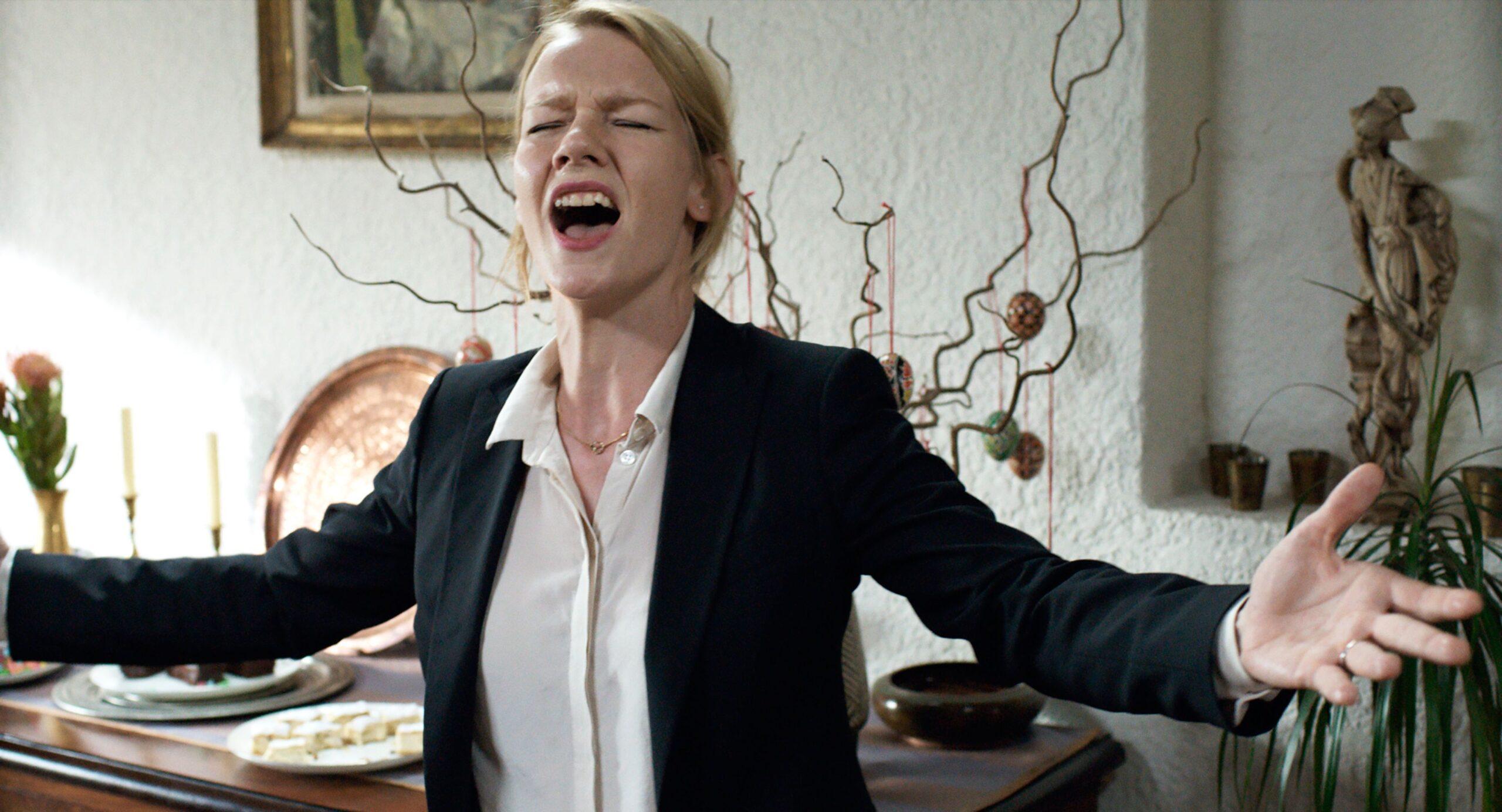
“I believe the children are our future,” warbles Whitney Shuck—actually one Ines Conradi, performing at a private function under a stage name whose inception is too complicated to explain here—during the intro to “Greatest Love of All.” Whitney S is no Whitney Houston, of course, but her performance—full-throated, hands waving, and occasionally on key—is captivating all the same. Despite being surrounded by a bunch of Bulgarian Orthodox colleagues, she sings like nobody’s watching. Or more specifically, she’s singing for her father, Winfried (a.k.a. Toni Erdmann), who’s accompanying her on piano just like he did when she was a kid. Written and directed by German genius Maren Ade, Toni Erdmann reimagines familiar daddy-daughter dynamics as a game of chicken; its characters live to egg each other on. The greatness of Sandra Hüller’s performance lies in its mix of steely resolve and helpless submission to her own impulses; no matter how hard Ines tries, she can’t repress the kamikaze exhibitionism that is her birthright. The final sequences of Toni Erdmann push past expertly calibrated cringe comedy to something sublime. When Ines embraces her dad in the aftermath of his most jaw-dropping public stunt, it’s as if she implodes into love and understanding; Hüller’s fearless, emotionally translucent acting shows us that she’s hanging on for dear life. —Nayman
44
Charlize Theron as Imperator Furiosa, Mad Max: Fury Road (2015)
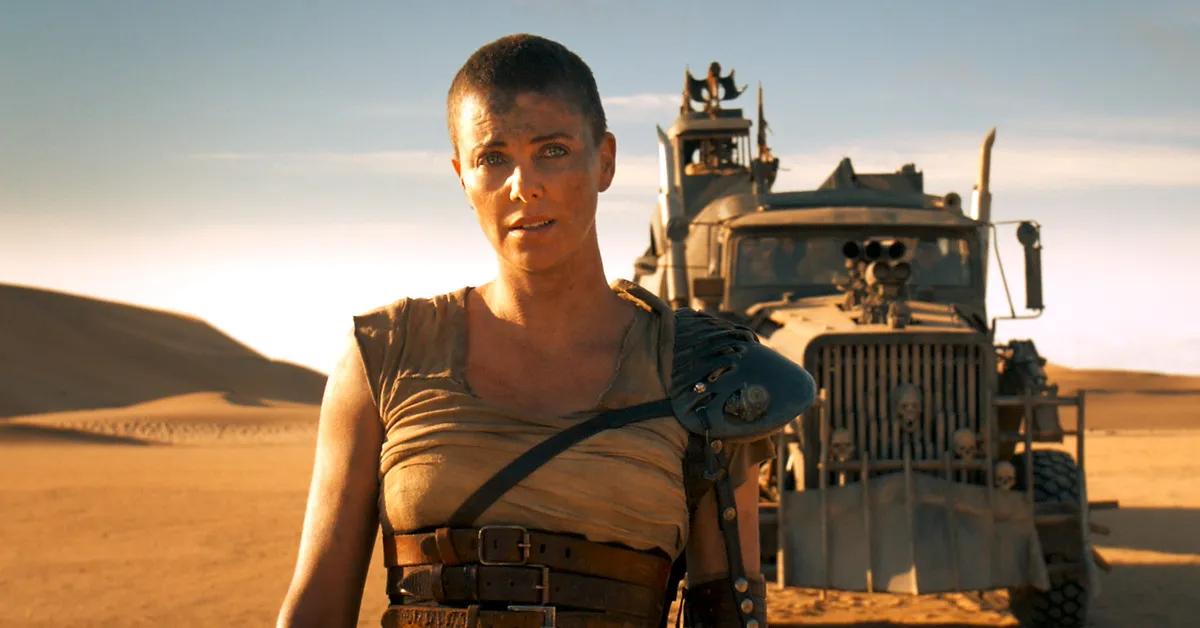
From the moment we first glimpse Imperator Furiosa’s grease-paint-smeared, shaved head peering from behind the wheel of the hulking War Rig, her engine is revving; today is the day she makes a break for it. For the next two hours, she’s aswirl in the tempest of a film equal parts Ben-Hur and Looney Tunes, yet Charlize Theron somehow grounds every glance and gesture with an oil-black well of subtext and feeling. For a film in nonstop motion, she’s a simmering ballast: a woman stripped of humanity, trying to get back home. Simple and spare, yet brimming with contradictions, she plays Furiosa’s gambit of running off with Immortan Joe’s brides as both vengeful abduction and merciful rescue, never settling for mere iconography even as she preserves in blood and chrome one of the great action performances of all time. Her anguished wail at the discovery of her lost Promised Land is one of the defining images of the century, the kind of wordless evocation of character that made it tough for any actress to fill her shoes in the 2024 prequel. George Miller said it best: “You can dress up as Furiosa, but to be Furiosa, you’ve got to be Charlize.” —Wilson
43
Casey Affleck as Lee Chandler, Manchester by the Sea (2016)
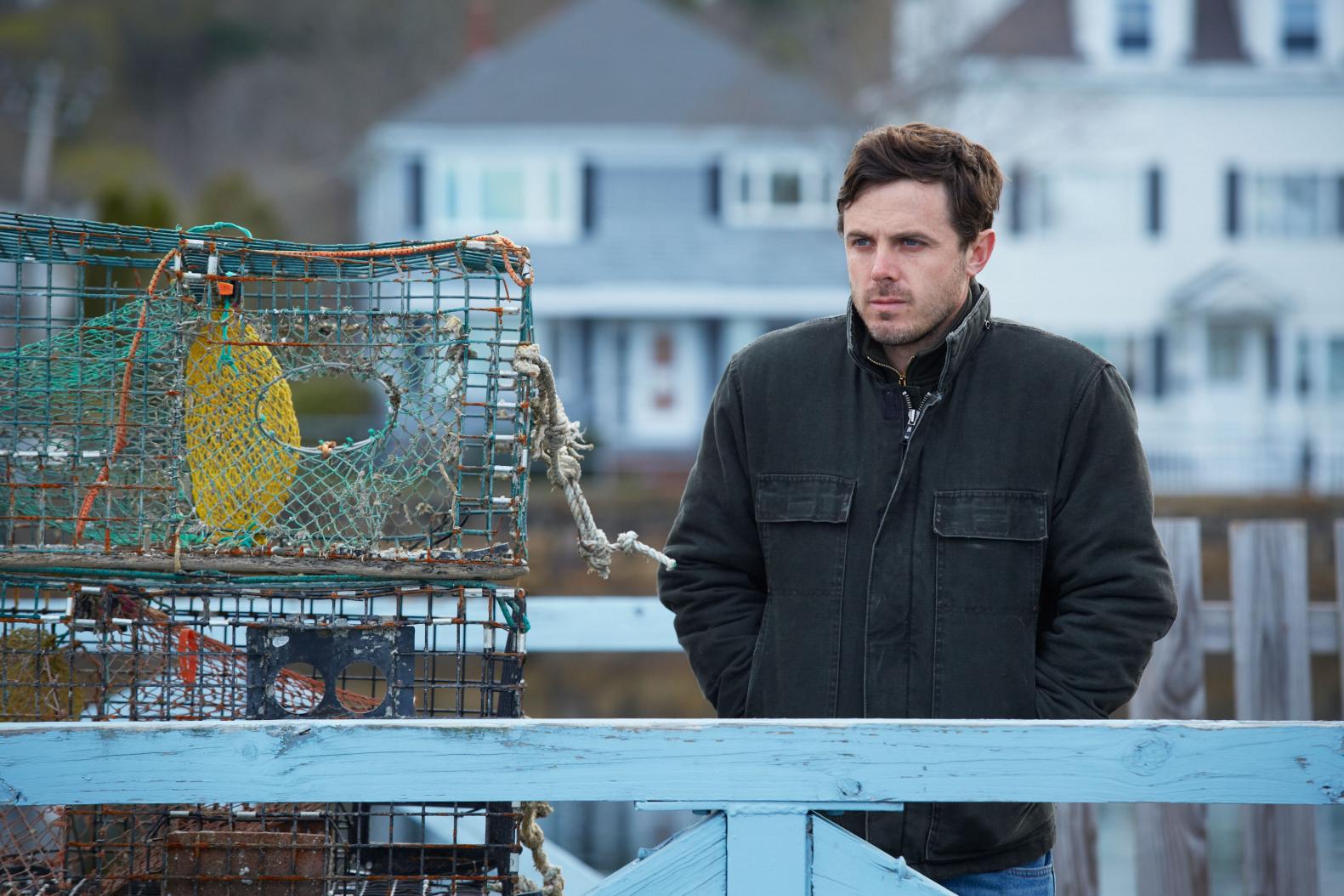
As Kenneth Lonergan’s third film opens, Lee, the quiet protagonist played by Affleck, has seemingly found a place in the world in which he feels comfortable, even if no one would mistake that feeling for happiness. A janitor living alone in suburban Boston, he lives a life of solitude interrupted by occasional eruptions of rage. But at least it’s more bearable than life in Manchester-by-the-Sea, home to his family and the site of an unspeakable tragedy. When the death of Lee’s brother, Joe (Kyle Chandler), forces him to return to care for his nephew, Patrick (Lucas Hedges), Lee’s forced out of his angry rut and compelled to confront the past. The brilliance of Affleck’s work here comes from his ability to suggest emotions lurking just beneath the surface—his grief at the loss that’s defined his life, his love for Patrick, his fear that he’ll fuck up his new responsibilities. And he plays them fully when they do surface, whether via fistfights or a reunion with his ex-wife, Randi (Michelle Williams), in which he’s forced to say out loud the feelings he’s done his best to keep even from himself. It’s extraordinary work made all the more remarkable by Affleck’s ability to balance mournfulness with humor and faint, distant notes of optimism that Lee might someday find his way back to the world. —Phipps
42
Andy Serkis as Gollum, The Lord of the Rings: The Two Towers (2002)
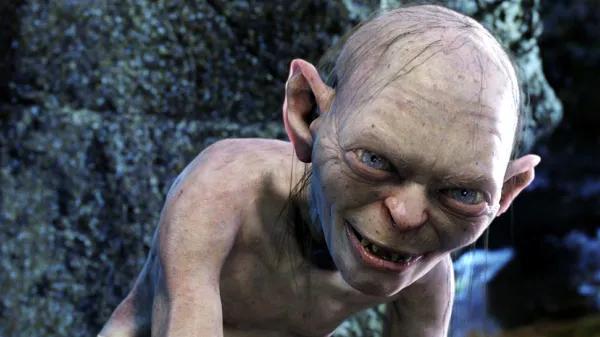
The Two Towers came out three years after The Phantom Menace, as good an illustration as any of the risks of incorporating a prominent computer-generated character into a live-action blockbuster. Gollum was a make-or-break character in the follow-up to Fellowship: had he come off as cartoonish or fallen into the uncanny valley, he could’ve been a distraction from the drama, majesty, and emotion elsewhere on the screen, creating a debacle like the Gollum video game. Instead, the twisted, treacherous, self-loathing hobbit helped make the movie, thanks in large part to the award-worthy man in the mocap suit: Andy Serkis.
Gollum was originally intended to be 100 percent CGI, but Serkis played him better than a computer could have on its own. (Plus, Serkis’s scenemates acted more effectively when he was on set.) A good deal of the credit for the character’s resonance still goes to Weta Digital’s animators, but Serkis provided the voice, movements, and reference facial expressions that truly brought the hobbit to life—and he didn’t need movie magic to transform into him (or, for that matter, other characters who were almost as memorable). Playing Gollum alone would’ve been tough enough; mixing in Sméagol—the innocent, sunny side of the wretched ring fiend’s split personality—made the performance a master class. —Lindbergh
41
Brad Pitt as Billy Beane, Moneyball (2011)
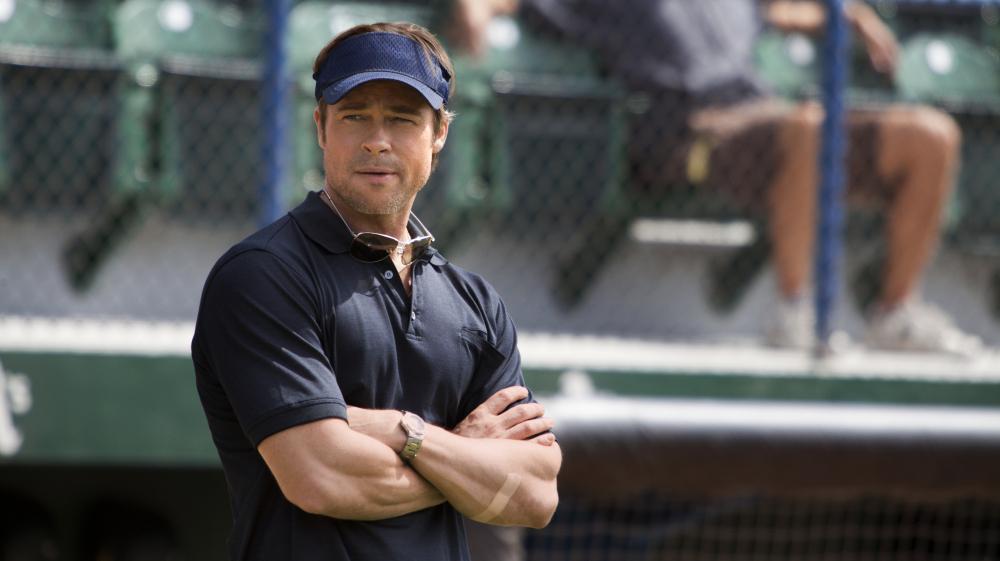
In general, the camera is obsessed. This is one of the most movie-star-iest performances of the last 25 years and a master class at keeping the viewer’s attention. It is entertaining watching Pitt scoop ice cream into a bowl. It is entertaining to watch him take the cap off a marker. He is good at wearing glasses, good at staring at screens, good at looking at papers, good at pretend dipping, good at eating a Twinkie in two bites, good at angrily lifting weights, good at hitting a stereo with a baseball bat, good at shaving with an electric razor in his office. He is good at saying, “He plays for Detroit now.” He is good at pounding burritos while watching film. He’s good at tossing magnetized nameplates onto big dry-erase boards. He stunts in the conference room, preens in the conference room, dreams in the conference room. The Patron Saint of Business Caszh, your man’s wearing pleated khakis and wielding the remote like White Chocolate, turning televisions on without looking.
Pitt’s in the flow from the first frame, so good that you forgive the visor. A rare sartorial fumble from someone with his track record. It’s really a cautionary tale. Any man thinking of becoming a visor guy should watch this movie first. Pitt can’t pull it off, but you think you can? The only exception to this rule is every college football coach in the world and anybody over the age of 70. I guess it’s also fine if you’re on a boat.
Before the first game of the season, Pitt tells Jonah Hill he doesn’t watch the games, then asks him to send game updates. Pitt does this thing with his left hand—acts like he’s holding a phone, and pretends to text. Something about the way he does it, I think about it all the time. —Parker
40
Natalie Portman as Nina Sayers, Black Swan (2010)
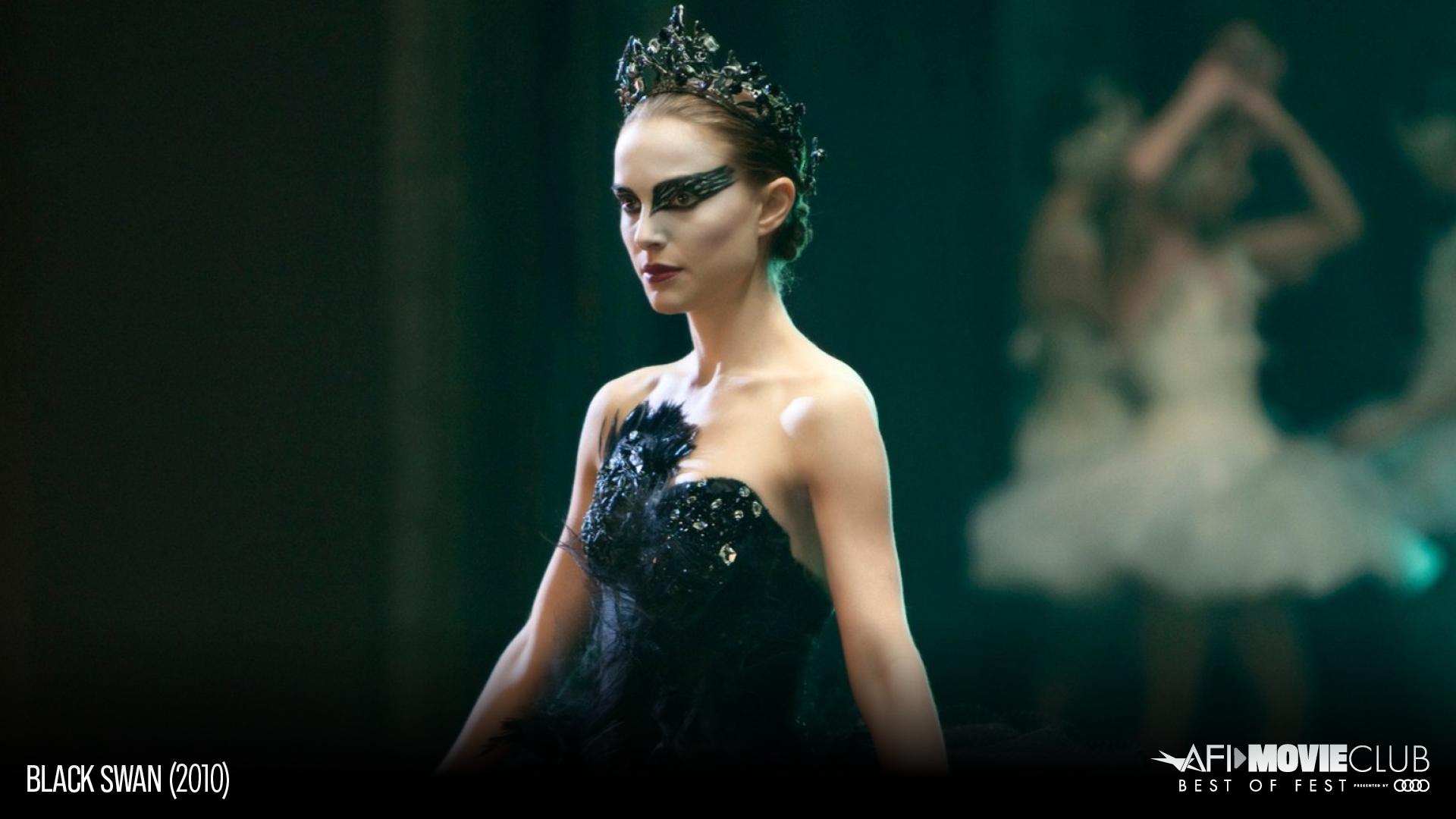
There’s always been some rigidity or distance to Natalie Portman’s performances. It’s hard to picture her being a normal person, collapsing on the couch in sweats—maybe because of the severe, perfect lines of her face, the brittle perfection of so many of her roles, or the discipline she seems to wear around her like armor. But that quality is perfectly suited to her dual parts in Black Swan, as the girlish, perfectionist Nina Sayers and her angry, haunting double. There’s something otherworldly to how Portman physically transformed for the role and how she slips between Odette and Odile; where the first always seems to retreat into herself, going quiet and apologizing for the fact of her existence, the second expands outward, taking over Nina’s body and the crowd she’s performing for. It’s hard to imagine anyone less flawless than Portman playing this role, a ballerina who strives so hard for perfection that she has to tear herself apart to get it. —Hunt
39
Paul Mescal as Calum Patterson, Aftersun (2022)
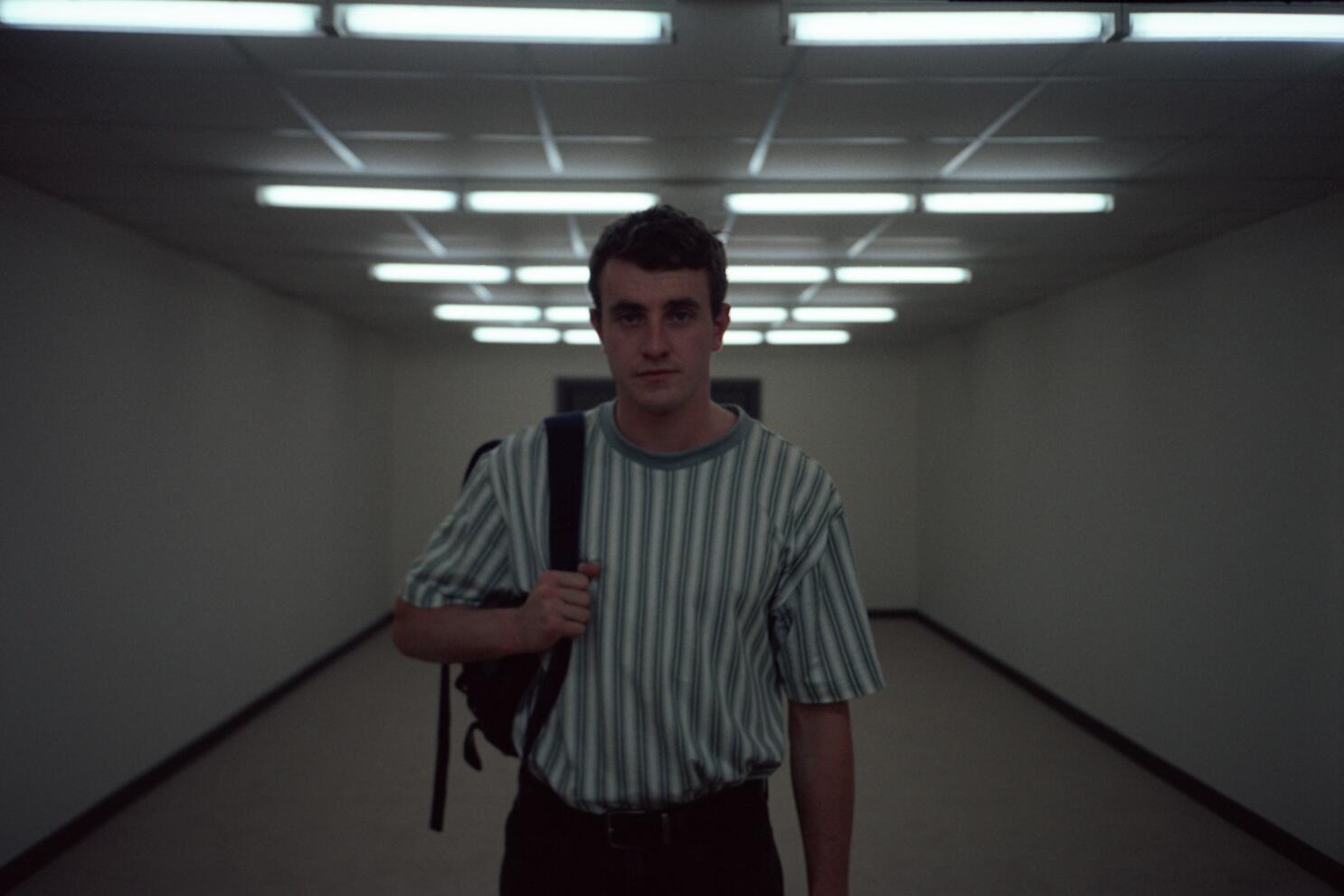
For much of Aftersun, Paul Mescal gives the camera his back: broad and muscular, but also somehow vulnerable, as if buckling from within. It’s the posture of a man afraid of being perceived, clutching his cards close to his chest while he contemplates whether to play them. What’s devastating about Charlotte Wells’s debut feature—a semi-autobiographical memory piece about a preteen girl’s fateful Mediterranean holiday with her father—is how ardently the camera scrutinizes Mescal’s Calum, looking for hints of the sadness he’s hiding away; the lens becomes an extension of his daughter’s love and concern. Mescal’s pensive, sad-eyed handsomeness has never been more persuasive than in his Oscar-nominated breakthrough; the same furtive, sensitive qualities that made him wrong for, say, Gladiator II work like gangbusters in a movie about private pain. Whether slumping in a hotel room or rocking dad-bod dance moves with his kid, Mescal’s body language in Aftersun is the height of eloquence—especially for all that it leaves unsaid. —Nayman
38
Nicole Kidman as Anna, Birth (2004)
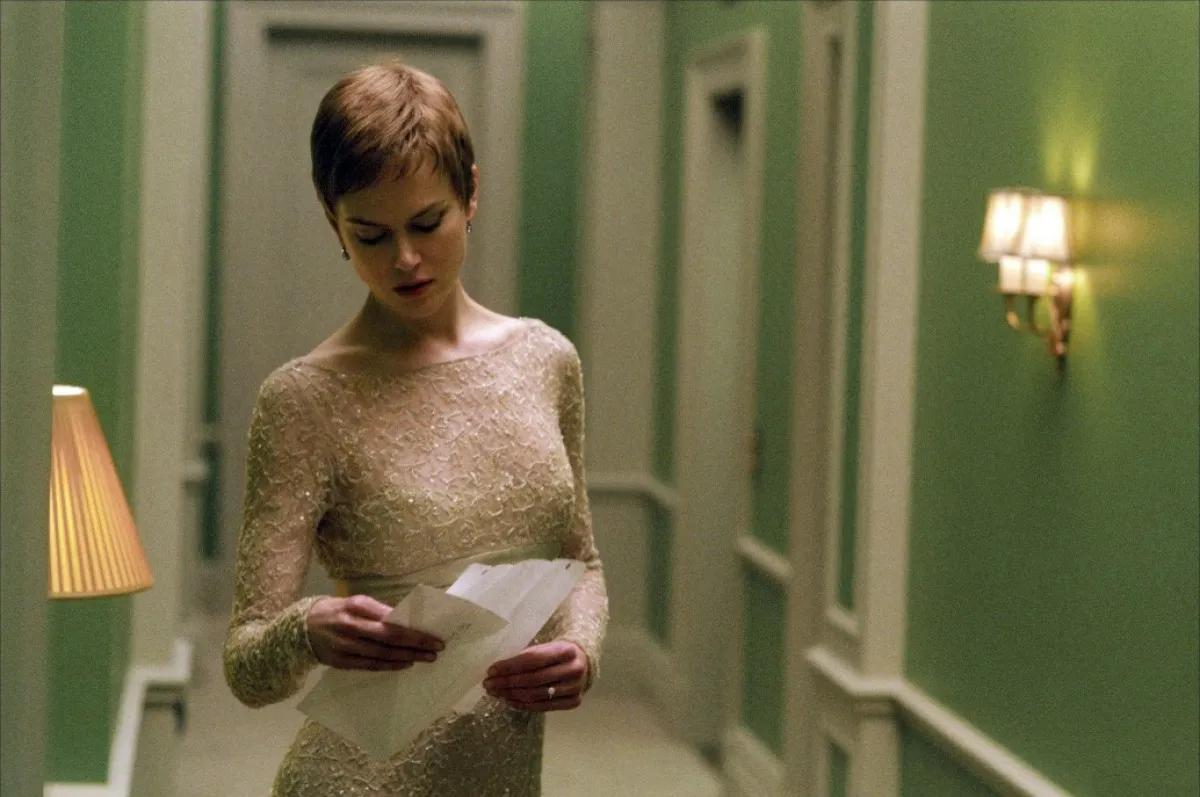
British filmmaker Jonathan Glazer has made a habit of offering extremely challenging parts to talented women—Scarlett Johansson and Sandra Hüller were mesmerizing in Under the Skin and The Zone of Interest, respectively, both playing characters out of touch with humanity. In Birth, Nicole Kidman is tasked with taking the spectator along on her journey toward the supernatural—beyond humanity itself. She plays Anna, a widow who is about to remarry when a young boy steps into her life and tells her that he is Sean, her former husband. Anna isn’t simply incredulous, however; she is terrified by the idea, indicating that she may believe in its possibility a little. As she goes further down that line of thinking, Anna never comes across as ridiculous—both Glazer and Kidman take her doubts and hopes too seriously for that to happen, and, eventually, so do we. With her delicate, minute performance, Kidman manages to give equal weight to Anna’s reason and her understandable desire to believe in love after death. Glazer’s predilection for exploring the outer limits of the possible and the moral—his zones of interest—is perhaps best represented in the famous long take on Kidman as she arrives late for a Wagner concert, sits down, and stares straight ahead while the music swells. Her birdlike gaze barely wavers, but she jumps when her fiancé leans over, bringing her back down to earth, but only for a moment; unbeknownst to him, she is opening up to the possibility of an afterlife in real time. —Lazic
37
Julie Delpy as Céline, Before Sunset (2004)
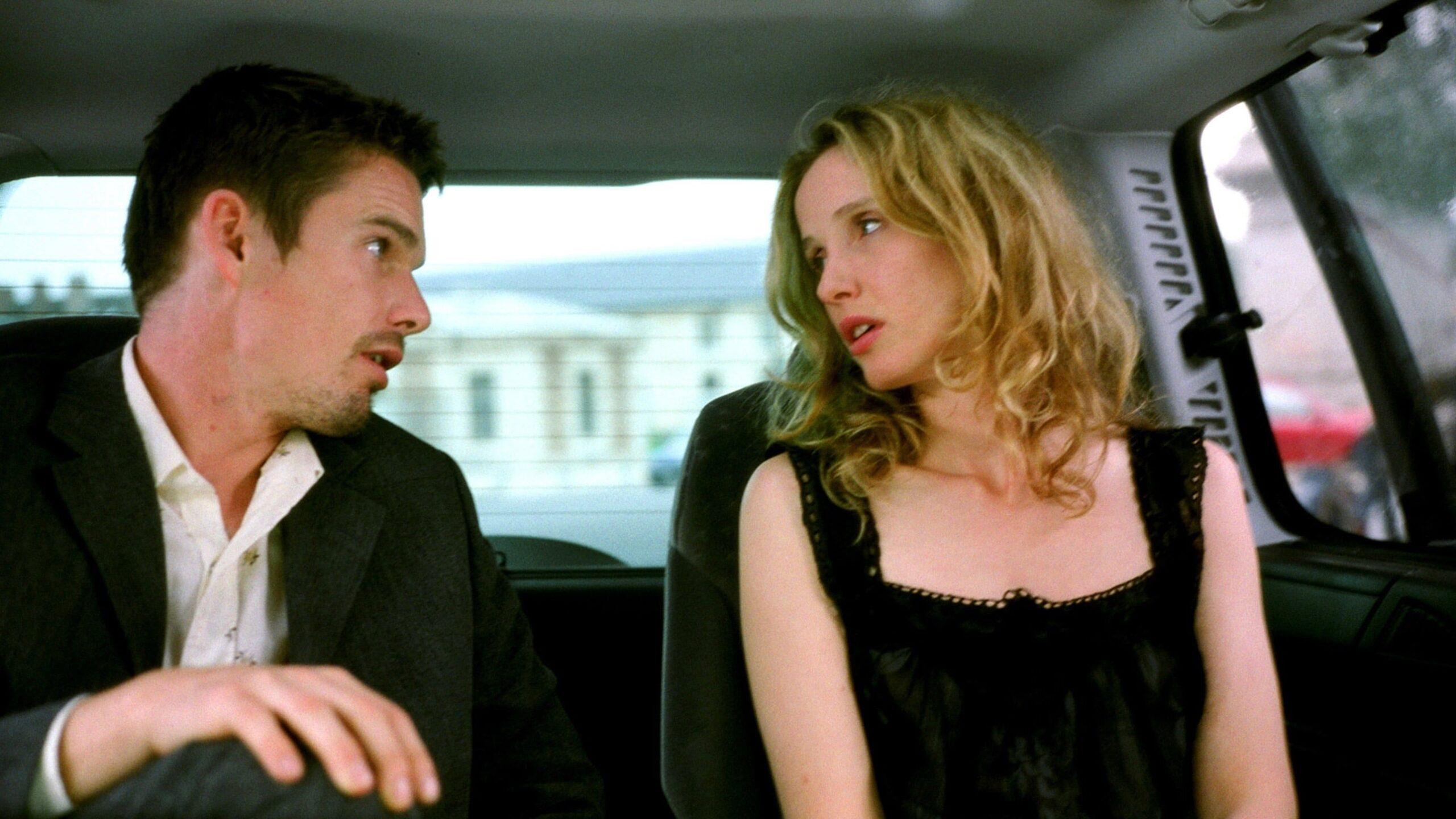
Seven words: Baby, you are gonna miss that plane. OK, two more: I know. Céline and Jesse’s love story is told via three movies over the span of 18 years, but it’s all right there in that exchange—the longing, the departing, and the returning. In Before Sunrise, Julie Delpy’s Céline was a wide-eyed solo traveler up for adventure and romance—a blank slate falling for Ethan Hawke’s equally fresh canvas in Jesse. But in Sunset, they have history. Sure, the banter and big questions about love and life still come naturally to them, but there’s more at stake beneath the surface: Why didn’t they meet again in the nine ensuing years after their walk around Vienna, and where do they stand now? It all comes to a head in a cab, with Delpy’s furrowed brow and wandering eyes trying to make sense of Céline’s turmoil. “I put all my romanticism into that one night,” she admits. “And I was never able to feel all this again.” Despite the pair’s clearly lasting chemistry, it’s Delpy’s palpable tension that has you genuinely wondering whether they’re gonna make it. Then she sings you a waltz, and you realize that your mind, along with Jesse’s, was made up from the start. You’re missing that plane. —Ress
36
Michael Stuhlbarg as Larry Gopnik, A Serious Man (2009)
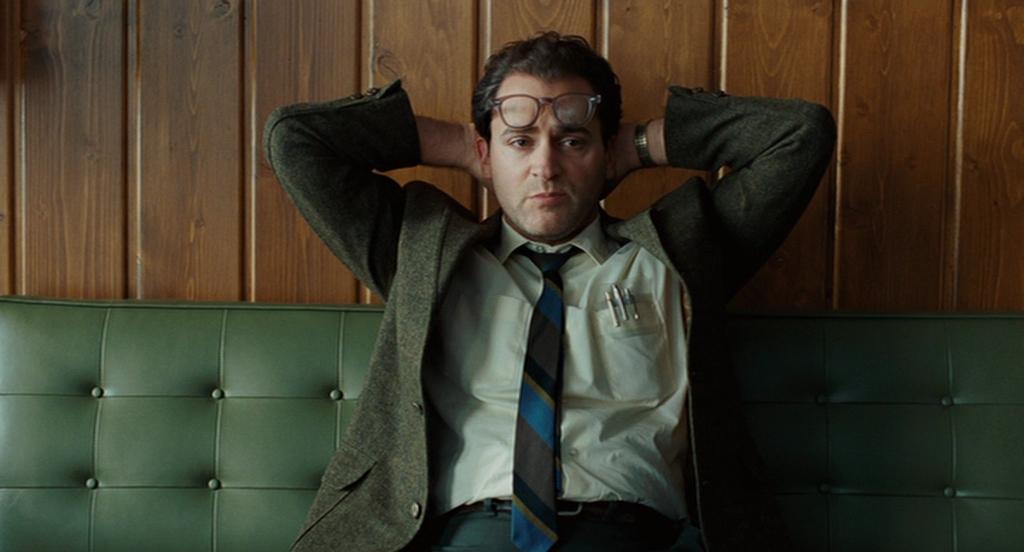
It’s right there in the title. He’s a serious man. In the film, those words are spoken about a different character, but still: Larry Gopnik’s seriousness is what makes the Coen brothers’ underappreciated 2009 masterpiece so funny and so bleak. And Michael Stuhlbarg, who plays Larry, somehow manages to convey both the comedy and the cosmic darkness at the same time. A Serious Man is part of a long line of movies about normal people whose lives unexpectedly fall apart; what makes this film different is that Larry, raised within a Jewish religious tradition of strict moral inquiry, is determined to make sense of everything that goes wrong in his life by referring back to that tradition. His life is unraveling—his wife is leaving him for another man, someone is sending anonymous letters attacking him to the university where he works—and he desperately needs the chaos he’s experiencing to submit to the order of his religious framework. Which, of course, it won’t. Stuhlbarg captures the faltering dignity, the futile intelligence, and the mounting rage of a 20th-century Job without either glorification or mockery. Not many actors are capable of grappling explicitly with the meaning of life (in a comedy, no less!) but Stuhlbarg, unlike his character, comes out of the ordeal unscathed. —Phillips
35
Nicolas Cage as Charlie and Donald Kaufman, Adaptation (2002)
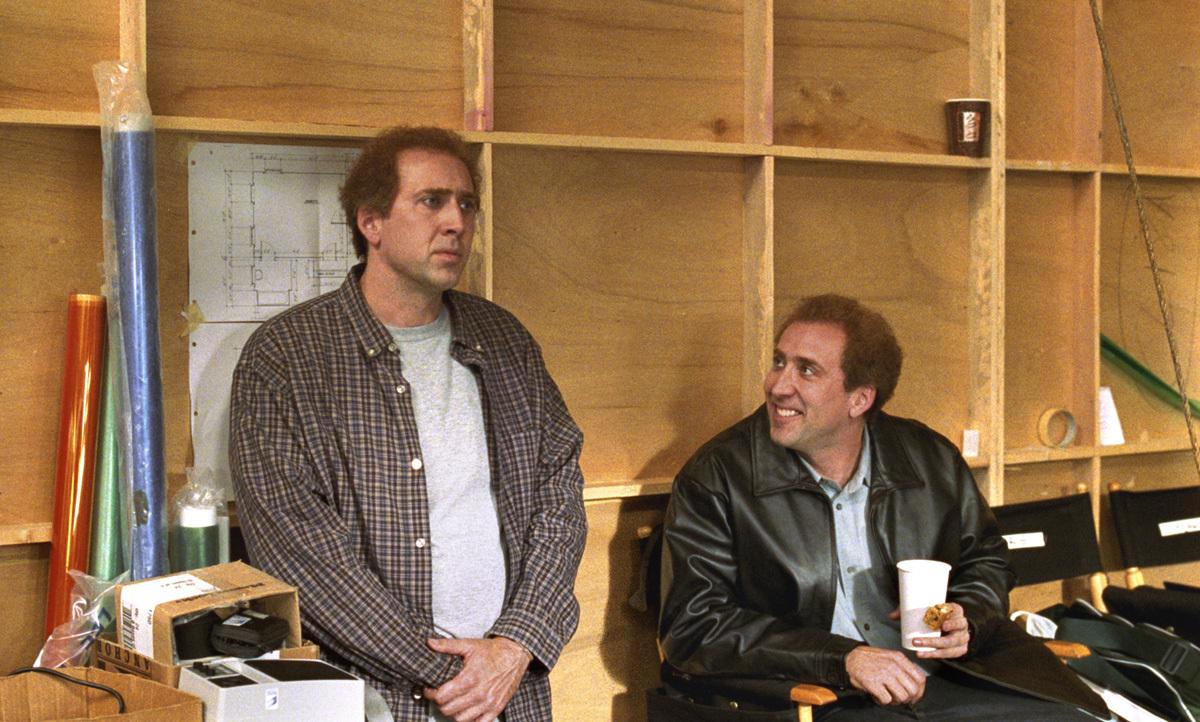
One of the weirdest, most ambitious movies of the past 25 years requires not one, but two of its weirdest, most ambitious performances. Adaptation begins, literally, with the creation of all life. It culminates in Cage playing the legendary screenwriter Charlie Kaufman—in a film written by Kaufman—and his fictional twin brother, Donald, who are less foils than the two ends of a snake eating its own tail. To call the whole thing self-reflexive doesn’t even begin to cover it. Cage observed and interviewed Kaufman extensively to play the part, after which Kaufman would watch a nervous Cage perform him. Round and round they went, until all of that layering self-consciousness rendered one of the most prolific actors of his generation unrecognizable.
Cage’s Charlie is more neurosis than man. Cage’s Donald, by contrast, is either too dumb or too smart to get in his own way. Together, the two performances uncork one of the best movies ever made about the creative process, in all its high-flying self-importance and low-hanging hackery. Watching it feels like a miracle. Adaptation shouldn’t work, and in the hands of just about any other actor, it couldn’t work. Yet Cage manages to double sell a movie about failing to write a movie, stepping over every potential pitfall to show how the truth makes it through to the other side. It’s beautiful. It’s unwieldy. It’s Cage. —Mahoney
34
Gene Hackman as Royal Tenenbaum, The Royal Tenenbaums (2001)
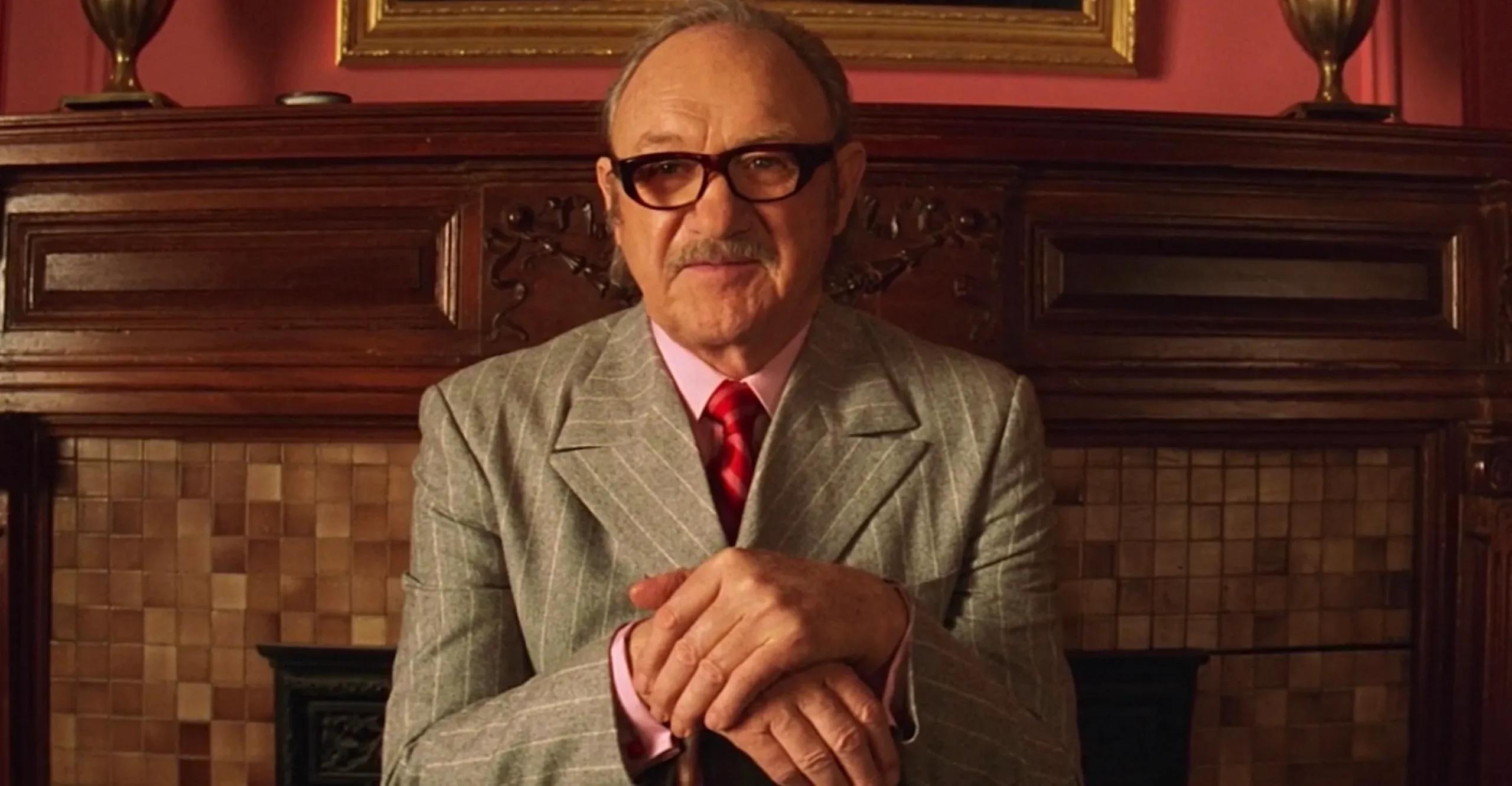
Gene Hackman didn’t want to do The Royal Tenenbaums. “It was written for him against his wishes,” Wes Anderson would later deadpan of the New Hollywood legend, who griped about the pay and clashed with his young director. Of course, that saltiness comes through loud and clear in the star’s hilarious performance as Royal, estranged father to a brood of fallen prodigies, a man so magnificently unscrupulous that he takes “son of a bitch” as a charitable assessment of his character. But it’s still hard to square Hackman’s begrudging participation with the bastard joy he brought to the role—the incorrigible, irresistible spirit of a scoundrel desperate to reclaim his place within a family he doesn’t deserve. How could the actor have hated making this movie and still summon the cackling mischief of that joyride montage across Brooklyn, preteen coconspirators in tow? Now that’s acting! His work as Royal, the richest and funniest of Anderson’s signature bad dads, can't help but look—in the wake of Hackman’s recent death—like the ideal swan song, even if he made two more films and lived two more decades after the film's release. He'll be fondly remembered as a Tenenbaum, among many other things and presumably against any final wishes. —A.A. Dowd
33
Tilda Swinton as Karen Crowder, Michael Clayton (2007)
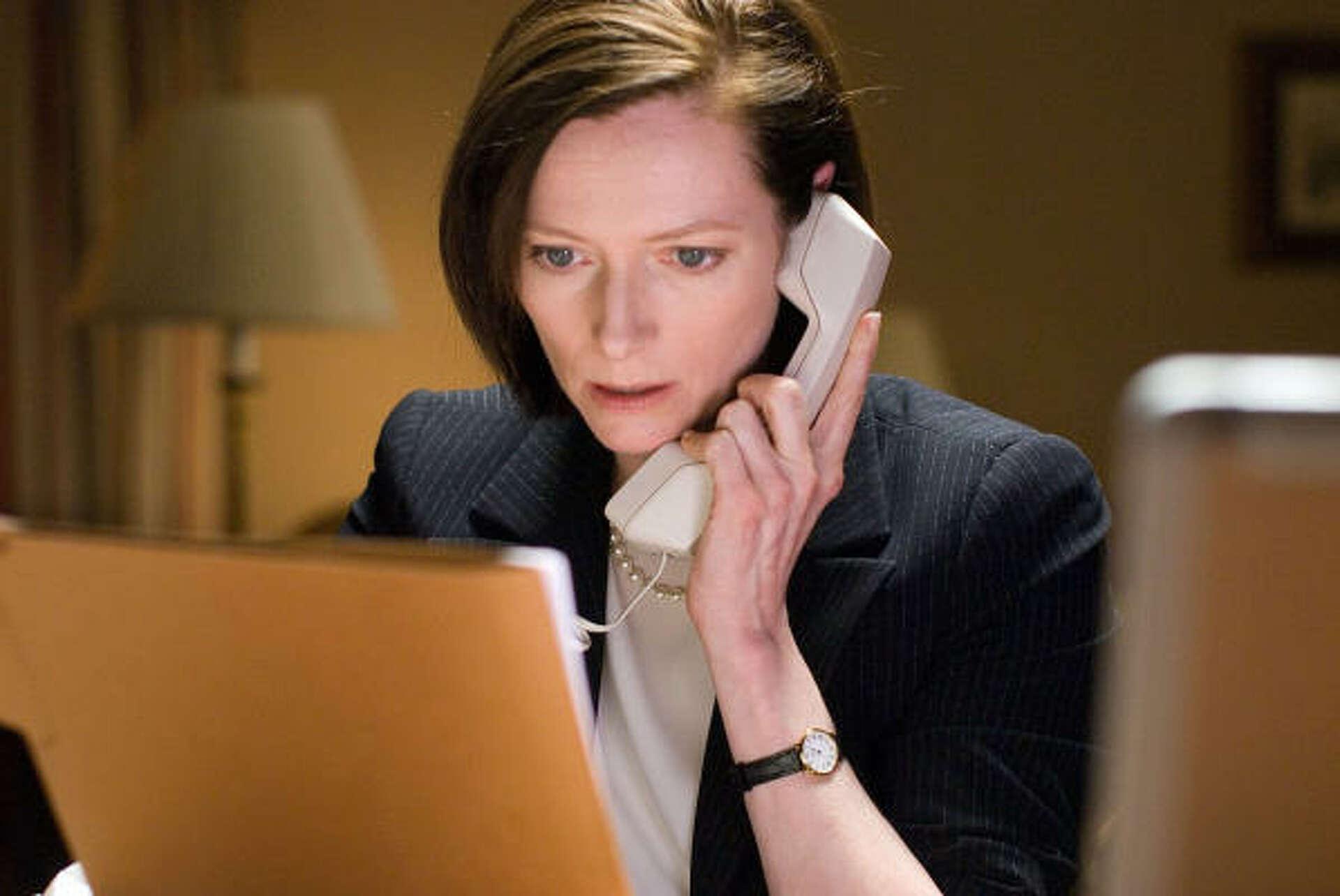
There is a reading of Michael Clayton that takes it as a fantasy, not unlike the book series Michael’s son evangelizes: One man’s (or really: two men’s) moral epiphany is enough to bring evil to light and cripple a malicious global conglomerate. But Tony Gilroy’s directorial debut is really about the way that this act is ultimately futile—the machine of capital turns men and women into bagmen or middle managers, plaintiffs or defendants, drones or assassins, and eventually it grinds them all to dust. Tilda Swinton’s Karen Crowder physicalizes the pressure of this predicament. She contorts herself in bathroom stalls and a budget hotel room’s swivel chair; she pours sweat, she orders a professional hit, she worries what her boss will think of her. Michael escapes this loop; Karen cannot. When, in the climactic scene, she asks, “You don’t want the money?!,” there is no way to distinguish her from U-North. The system’s logic has become her own. —Thompson
32
Tony Leung as Chow Mo-wan, In the Mood for Love (2000)
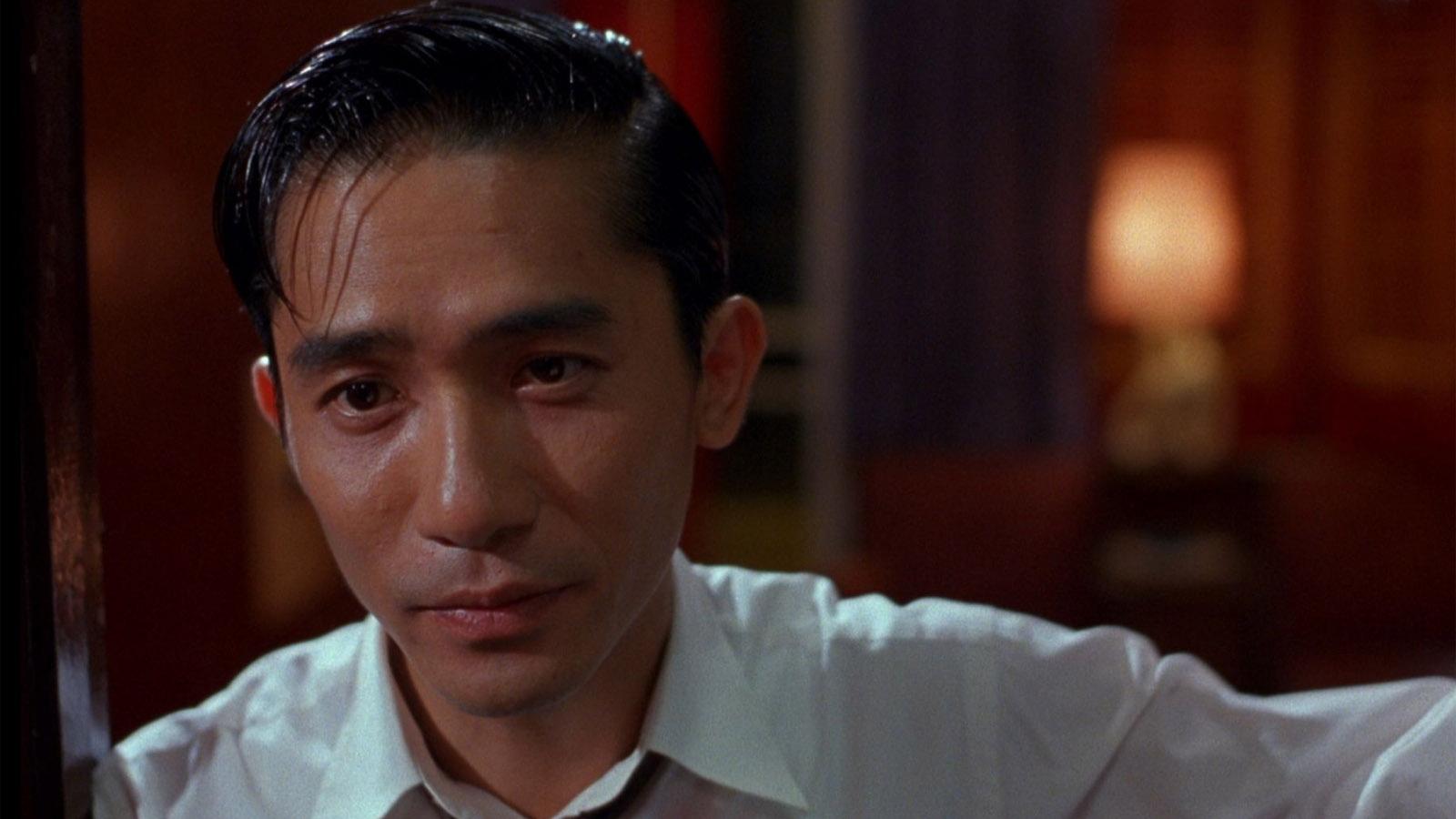
On grounds of glamour alone could Tony Leung lay claim to silver-screen immortality: Decked out in casually elegant 1960s business wear, the Hong Kong star makes James Bond (any of them; pick a Scot or Brit) appear shabby and unkempt by comparison. But it was more than supernova good looks and classical charisma that Leung lent to the most exquisitely bittersweet of his collaborations with the great director Wong Kar-wai. The actor also exuded longing straight out of his eyes like a tractor beam to play a married journalist who falls into a purgatory of mutual, unconsummated desire with his next-door neighbor (Maggie Cheung, matching his smolder gaze by suggestive gaze). The chemistry between the two, forever simmering and often unspoken, is as sexy as any sex scene. And Leung, like his costar, says so much without words, containing a wellspring of ardor behind a polite veneer of social propriety. He makes his heartache ours; in turn, a grateful, global audience of romantics fell deeply in love with In the Mood for Love. —Dowd
31
Viola Davis as Rose Lee Maxson, Fences (2016)
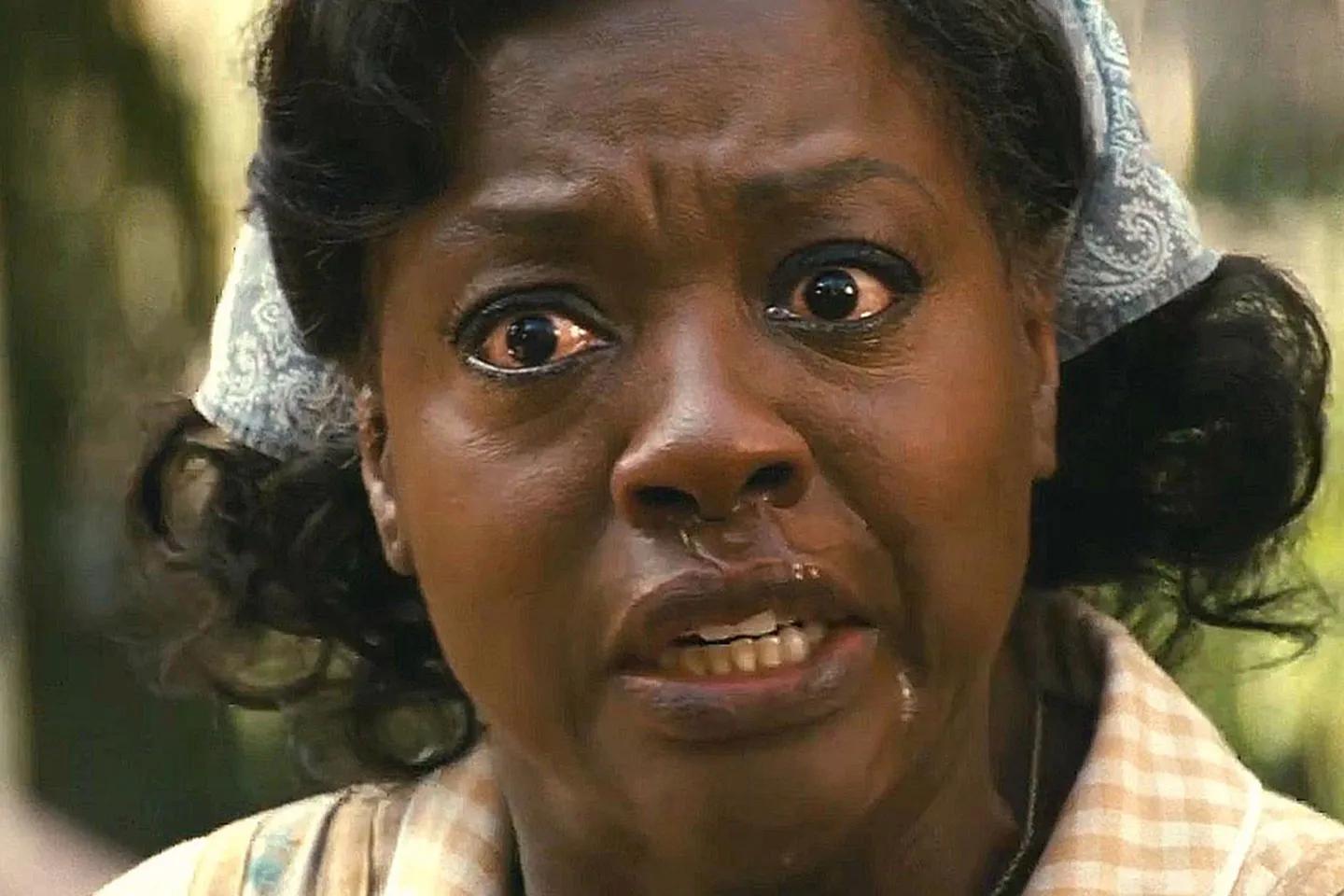
Viola Davis has, perhaps, more stunning on-screen combustions: She burns a hole right through 2008’s Doubt (picked up her first Oscar nomination for it, too) and engulfs Steve McQueen’s ultraslick 2018 caper, Widows. She’s summited more unexpected peaks: Her existence and ascendancy in a mainstream Hollywood ecosystem that has spent exponentially more time opposing her humanity than enraptured by it is—like Ruby Dee’s and Cicely Tyson’s before her—an incomprehensible upset. But if I had to pick a single performance from the most astonishing rise of the millennium to take with me for all time, it would be her titanic rendering of Rose in Fences. For in Davis’s brushstrokes lie multitudes.
You will hear words like “indefatigable” or “unbroken” used when trying to assess Davis’s showing here, but those are too small to wrap around her. Rose is indomitable, yes, but she’s also fed up, footsore, furious, every day falling apart and stitching herself back together. She’s been everything since the moment that playwright August Wilson first sketched her. Davis manages to capture her entirely, faithfully. If you’re lucky enough, you’ve seen this woman before. Hardly ever, though, on a screen. —Pryor
30
Cillian Murphy as J. Robert Oppenheimer, Oppenheimer (2023)
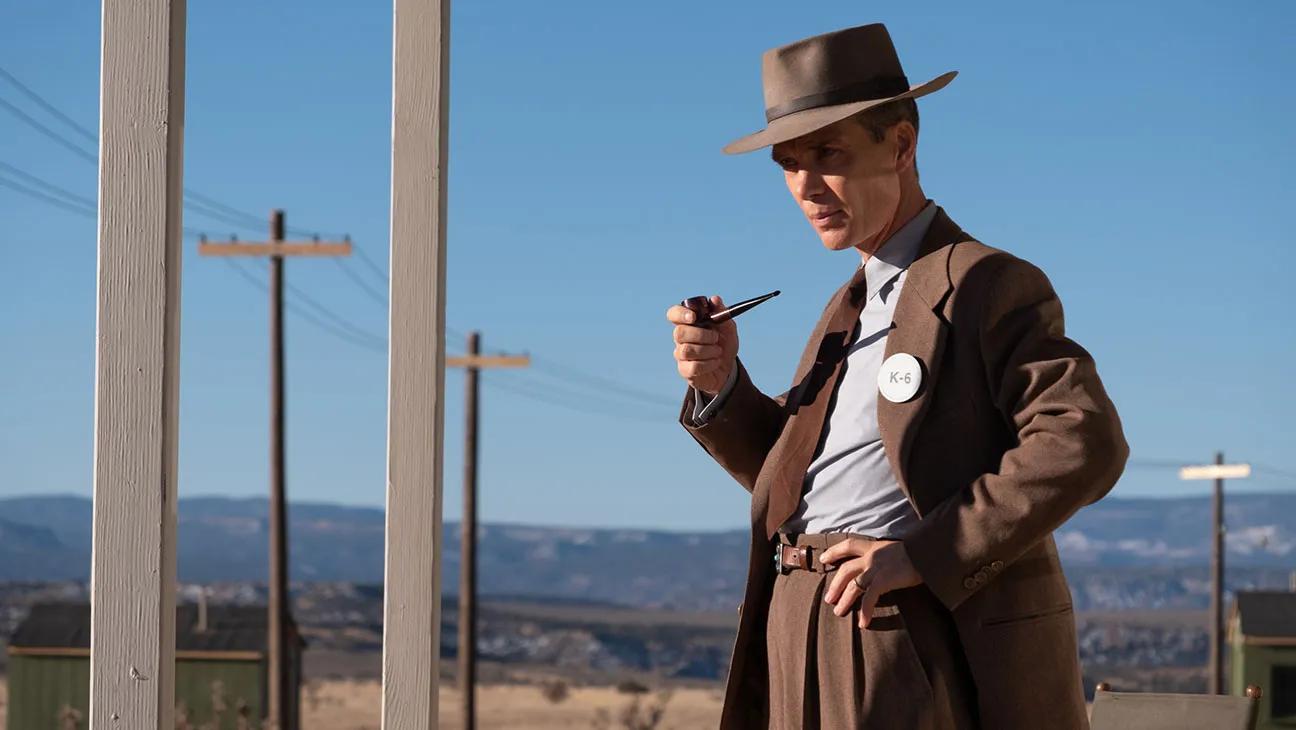
Murphy’s performance was so bracing it nearly (successfully?) dragged wide-brim fedoras, suspenders, and trench coats back into the zeitgeist. Serious, historically resonant biopics aren’t supposed to have style or commerciality. Oppenheimer did, thanks to the way Murphy looked and spoke and suffered. He personalized a disaffected genius who changed humanity and somehow did it while making him seem cool as a cucumber. Not easy!
Millions of moviegoers rushed to Oppenheimer thinking the atom bomb would be its star. They wanted to see man’s most cataclysmic invention rendered on an IMAX screen by a director who’s floated to the top of his profession by mastering the art of cinematic spectacle. Most weren’t disappointed, per se. But the carnage in this movie was almost entirely concealed behind Murphy’s heartbreaking, guilt-ridden eyes. There was clearly no more appropriate way to communicate all the devastation J. Robert Oppenheimer hath wrought. —Pina
29
Scarlett Johansson as the Female, Under the Skin (2013)
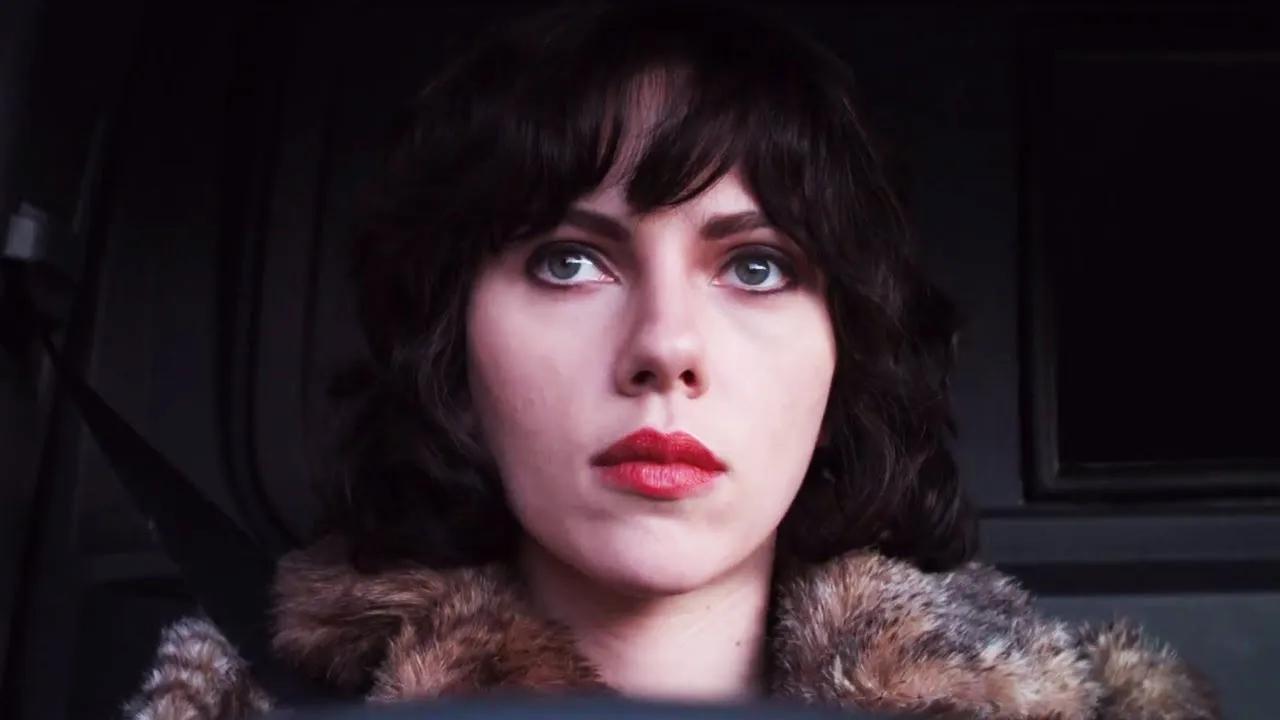
A performance’s level of difficulty shouldn’t really be a factor in considering its greatness, but it’s hard to forget that Jonathan Glazer’s unnerving, deeply moving sci-fi film requires Johansson to (a) play an alien wandering around Scotland looking, at least at first, for horny single men to lure to their deaths while (b) sometimes acting opposite unsuspecting nonactors. Even without those factors, the way Johansson builds her unnamed character’s emotional life piece by piece is as mesmerizing as Glazer’s stark, stylish filmmaking. She begins as a pitiless predator incapable of being moved, even by a baby left alone on a beach, and turns into a being who becomes human in more than just appearance. The film memorably deploys special effects when needed—particularly in scenes of the sticky abyss into which Johansson’s character draws her victims—but its most memorable on-screen transformation belongs entirely to its star. —Phipps
28
Vicky Krieps as Alma Elson, Phantom Thread (2017)
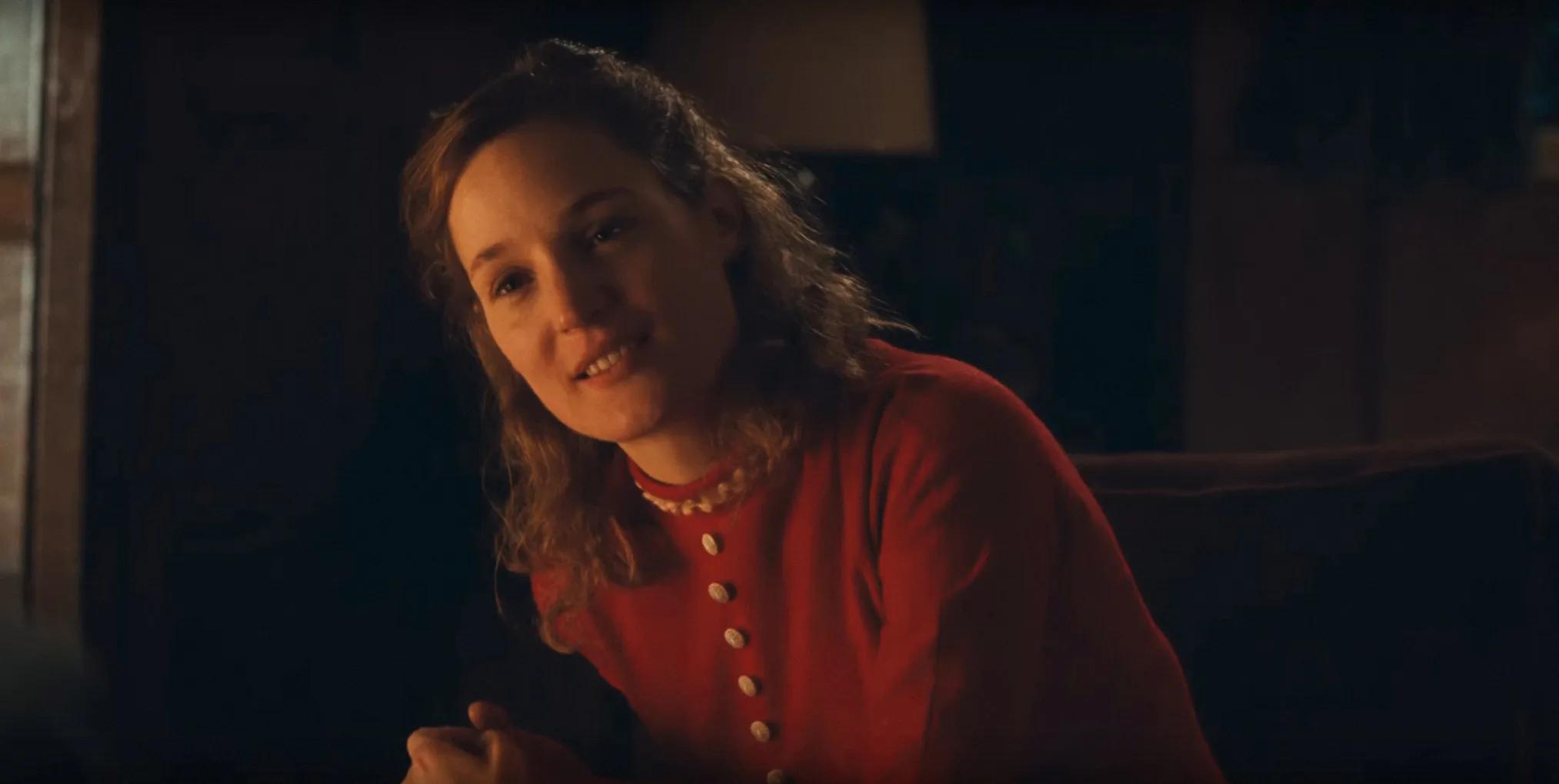
Vicky Krieps’s Alma is the variable in a world that Reynolds Woodcock (Daniel Day-Lewis) has tried to control down to its finest fiber. Phantom Thread’s twist, such as it is—that Alma wants Reynolds incapacitated, and that Reynolds likes to be cared for this way, too—would be too tidy if not for the fact that Krieps plays her waitress turned muse with such seemingly transparent naivete. She is blank enough for Reynolds to project onto her all his creative ambitions, but game enough to follow him to his private fitting room for what she—like the audience—must assume is a seduction; she’s willing to play along when his sister emerges from the shadows in that room to record her measurements, but possessed enough to poison the man she loves. On the most fundamental level, this is what great acting is: a clot of neuroses made coherent, an idea given flesh. —Thompson
27
Rosamund Pike as Amy Dunne, Gone Girl (2014)
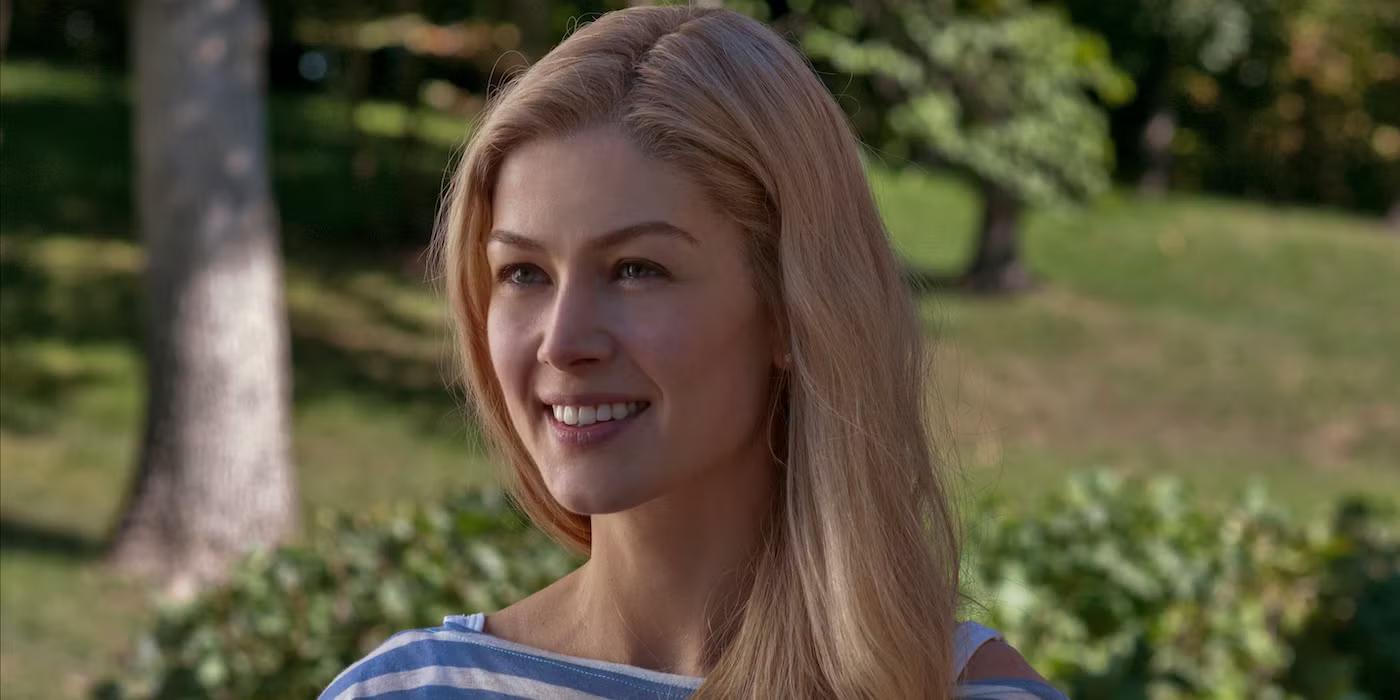
In Gone Girl, Rosamund Pike delivered something rare: a full-bodied, empathetic portrayal of an absolute psychopath. As Amy Dunne, Pike accomplishes many jobs with what appears to be little effort: She’s menacing, evil, convincing, charming, and most importantly, relatable. Amy Dunne is made of ice but filled with fire. Pike balances sociopathy and satire smoothly, turning Gillian Flynn’s biting prose into something operatic.
From bingeing junk food while driving to slashing Neil Patrick Harris to death while fucking him, Pike’s performance is a master class in tonal control and manipulation of both the audience and the characters in the film. She takes advantage of her agreeability—a quality that made her the ideal Jane Bennet in 2005’s Pride & Prejudice—and uses it against the audience, who spend a majority of the film rooting for her, despite the fact that she framed Nick Dunne (Ben Affleck) as being guilty of her murder.
No other actor in the 21st century has weaponized a smile this effectively. Pike didn’t disappear into Amy Dunne: She made women see ourselves in her … a much scarier, more thrilling feat. July 5—the morning of—has never been the same. —Wittmer
26
Uma Thurman as Beatrix “the Bride” Kiddo, Kill Bill: Vol. 1 (2003)
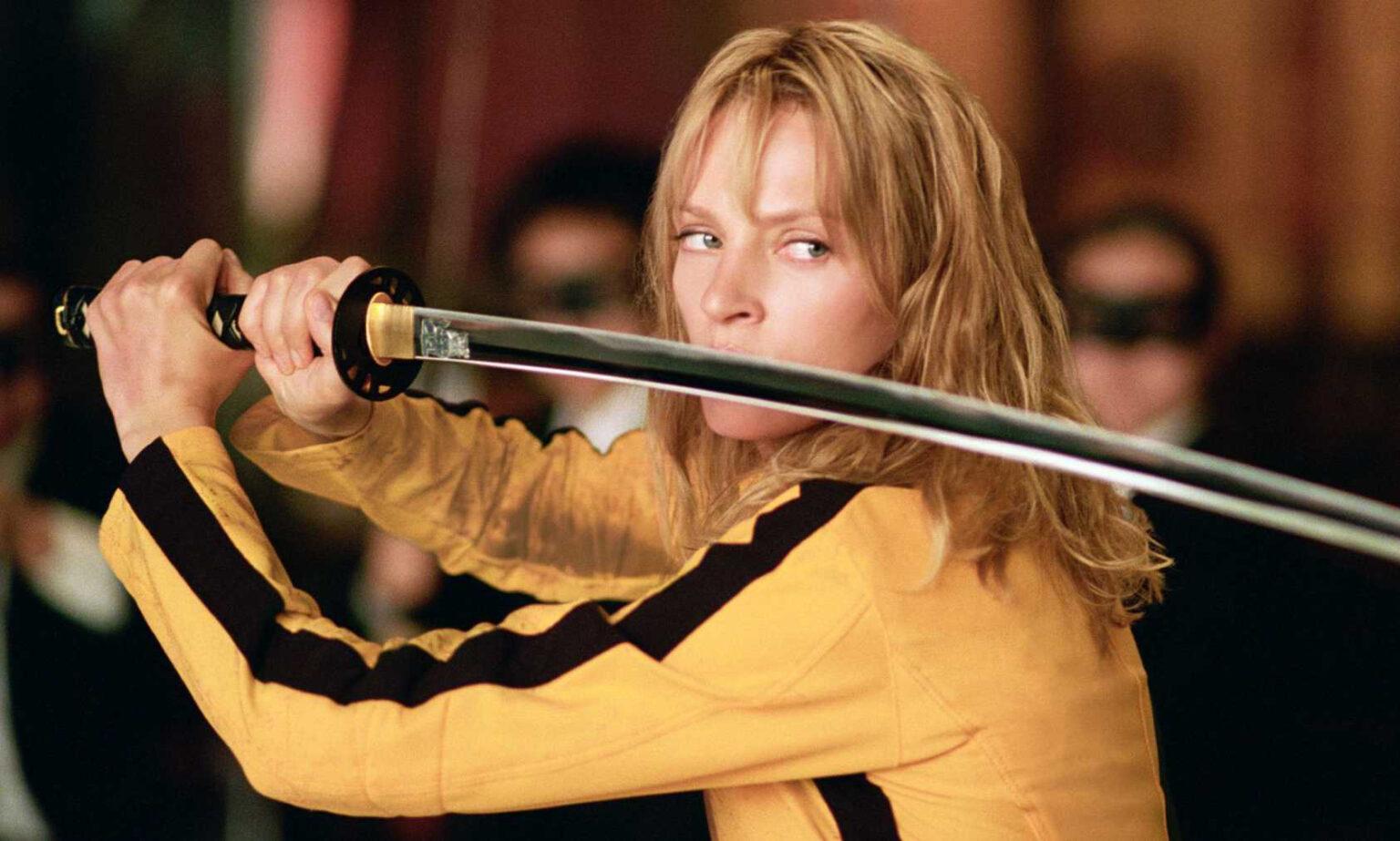
One of the many qualities I have in common with Charlize Theron is that we both find it super messed up that Uma Thurman was never Oscar nominated for playing the Bride/Beatrix Kiddo/Black Mamba/Mommy in Kill Bill Vol. 1 and Vol. 2. “Academy, wake up!” Theron exclaimed recently about the wronged actress’s turn as a wronged assassin—who has quite the wake-up of her own. In Quentin Tarantino’s Kill Bill diptych, toes wiggle, heads roll, eyes get yoinked, and hearts go boom. And at the center of it all is Thurman, who packs a whole body of work into her gorgeous, gruesome role.
As Black Mamba et al., Thurman’s smile doubles as a sneer. Her icy glint somehow casts a warm glow. She seems to be a good hang, even and especially when she’s in the midst of a killing spree. It was Thurman who first helped director Tarantino conceive of the Bride, back when they were filming Pulp Fiction. (Years later, it did take some convincing to get her to see the appeal of Kiddo’s iconic “banana Popsicle” duds.) It was Thurman whose life was put on the line by the powers that were during filming. And it was Thurman who clawed and crawled and charmed her way into a cinematic legacy that is bigger than any award. —Baker
25
Maggie Cheung as Su Li-zhen, In the Mood for Love (2000)
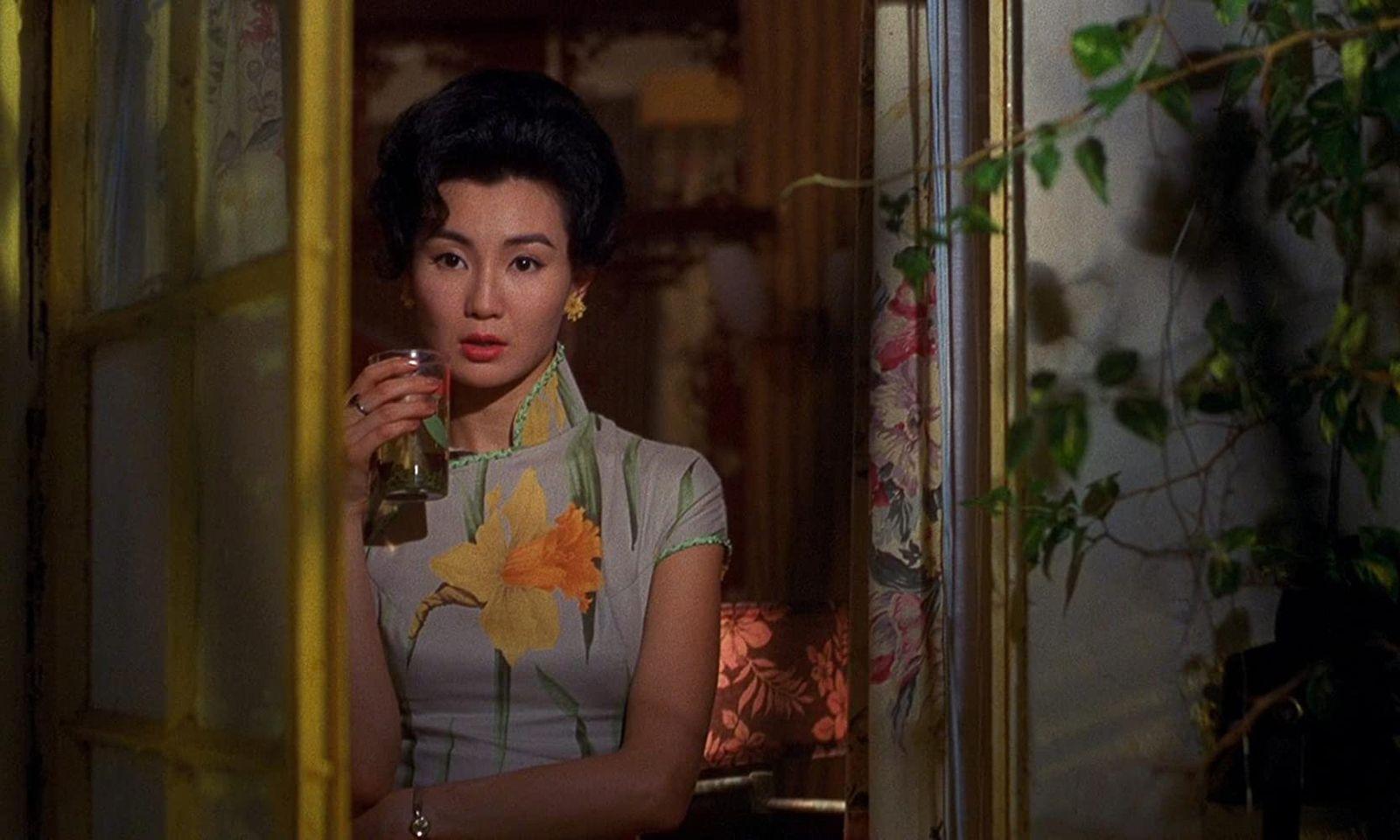
Perhaps the most beloved actress to emerge from Hong Kong, Maggie Cheung isn’t easily defined by one role. From starring in wacky Lunar New Year comedy All’s Well, Ends Well to playing Jackie Chan’s damsel in distress in Police Story to breaking through into international art house cinema with Irma Vep, she’s been one of the most prolific and talented women to ever grace the screen. It’s Wong Kar-wai’s masterpiece In the Mood for Love, however, where Cheung merges every facet of her screen presence into a performance for the ages. Yearning, graceful, and a little awkward, Cheung’s lovelorn neighbor to Tony Leung’s equally sexy and bashful journalist is a powder keg of desire that can never alight. As their spouses have an affair with each other, the two share long nights of unfulfilled love. Cheung pulls off the hair-thin balance between goofy girl with a crush and lustful grown woman. That their paths never allow them to consummate their love is devastating, of course, but ultimately immaterial. You’ll leave each viewing convinced you’ve seen the most sensual film ever made, and the two never even touch. All thanks to Maggie Cheung, cinema’s greatest yearner. —Streussnig
24
George Clooney as Michael Clayton, Michael Clayton (2007)
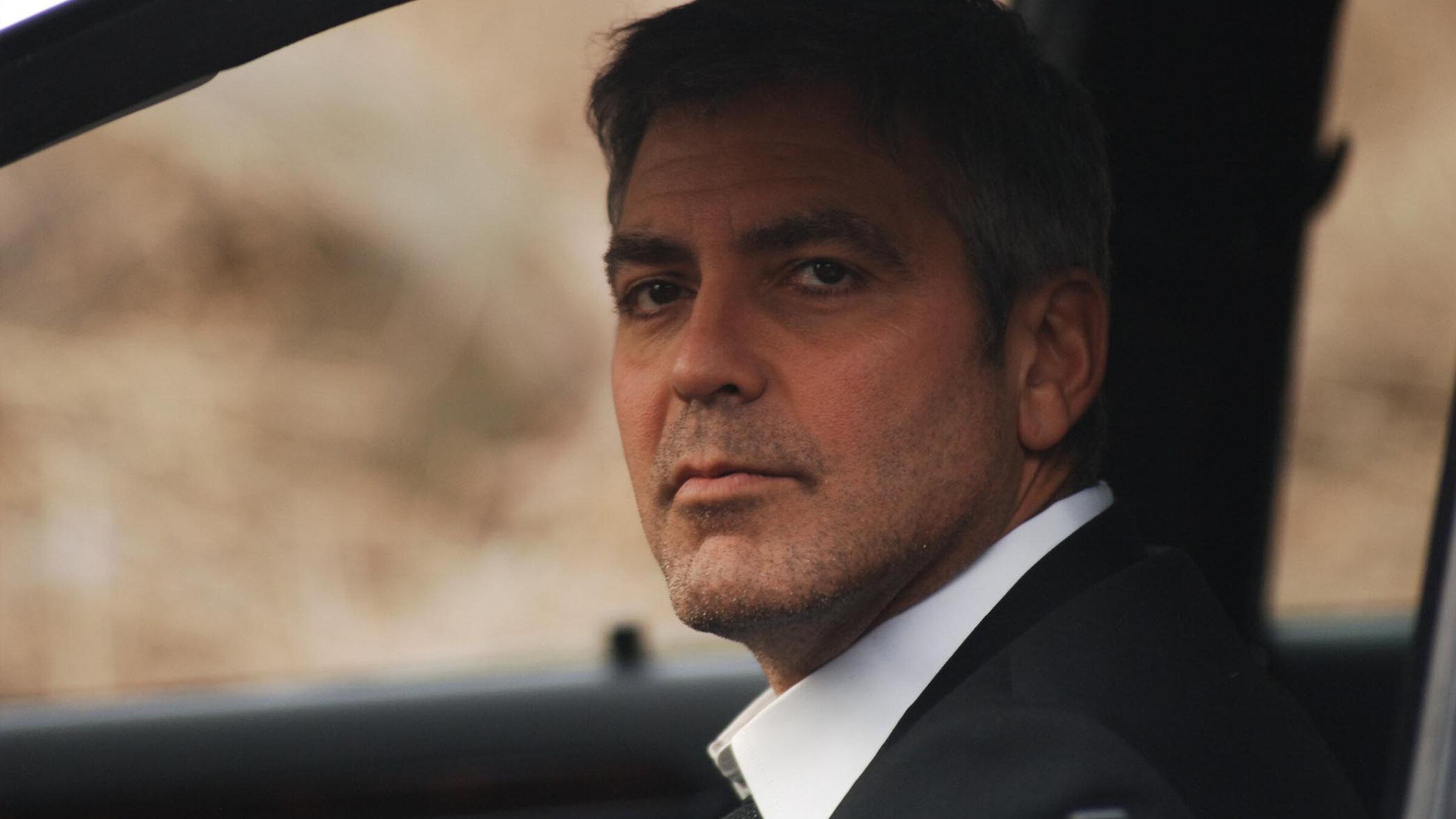
Michael Clayton can fix anything—except himself. Or so it seems for much of this movie about a law-firm fixer who’s reputed to be a “miracle worker” but can’t get himself out of debt, kick his card-playing habit, or repair his splintered family. Actually, work isn’t going great, either: Clayton can’t convince a manic, too-talkative litigator to clam up about an agricultural company client’s role in poisoning the populace, and billions hang in the balance. But a fatal fix is in: the litigator’s crisis of conscience gets him killed by Big Culcitate, and Clayton himself is soon targeted, too. In the end, of course, Clayton fixes everything by breaking the cover-up wide open and arranging the arrests of the corporate counsels who ordered the hits—and the release of the smoking memo they were trying to suppress.
Clayton drives a sleek car, dresses nicely, and talks smoothly, projecting confidence despite being broke and at the end of his rope. Clooney, who was cast as Clayton after Denzel Washington passed on the part, has the suave exterior the role requires. But he also digs deep to convey the desperation and pathos of a man who feels bad about being good at his job. Clooney had cause to feel good about the job he did: It earned him his first Best Actor Oscar nomination. —Lindbergh
23
Lily Gladstone as Jamie, Certain Women (2016)
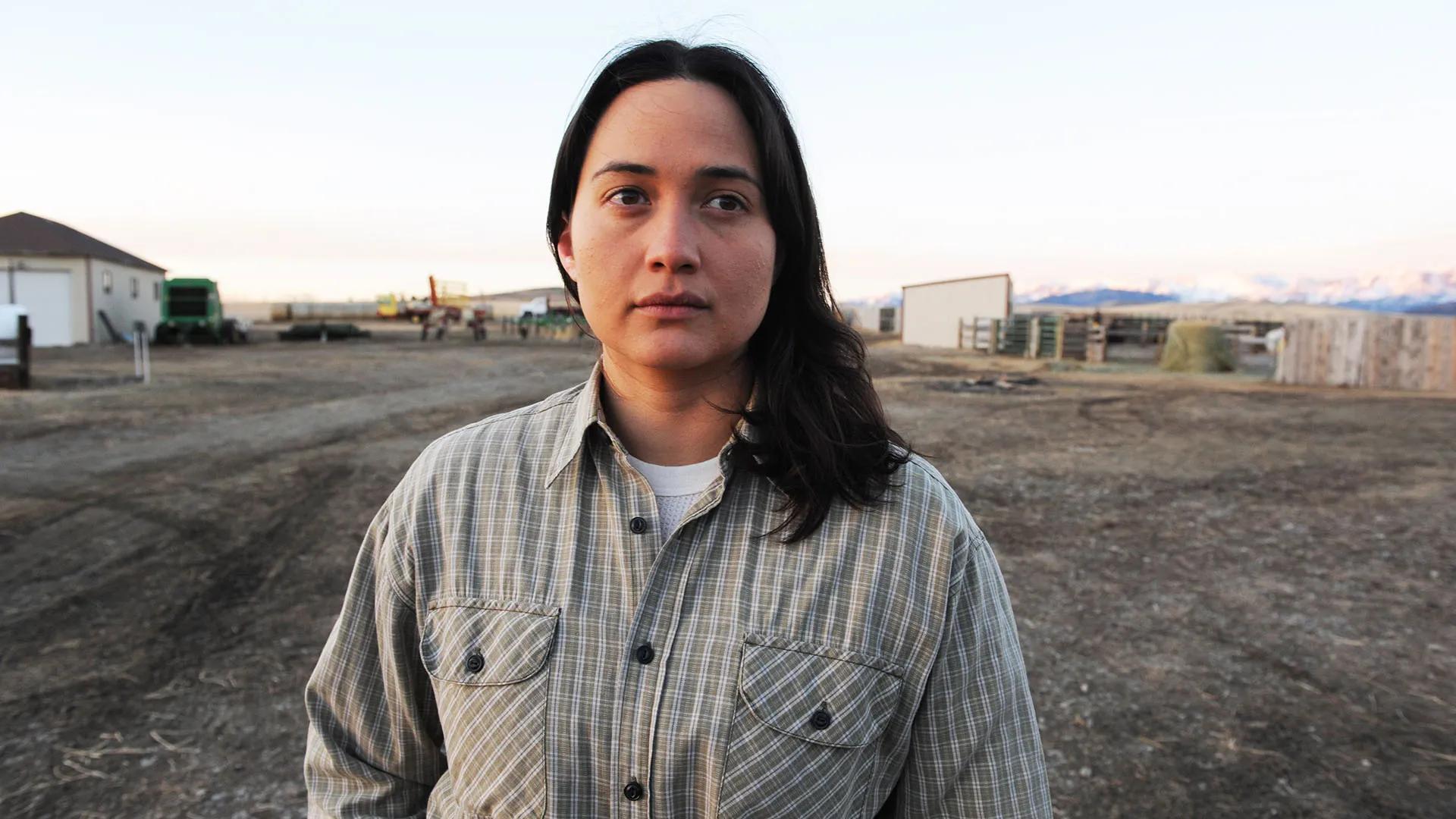
In a film populated by some of the greatest actresses of their generations giving career-best performances, Lily Gladstone did more than hold her own. As Jamie, the most understated character in Kelly Reichardt’s Certain Women, the then-unknown actress revealed an impressive level of confidence. Deeply feeling her way through her part and unafraid to seem opaque, Gladstone commands attention, letting us get to know Jamie rather than telling us who she is. Jamie spends most of her time in the company of horses on a ranch, until she stumbles into an education law classroom in town one evening. Drawn to teacher Beth (Kristen Stewart), Jamie keeps coming back night after night, yet she remains as quiet with her crush as she is with her animals. She offers her dinner one evening, and while Stewart—herself a performer at peace with her own idiosyncrasies—eats and talks, Gladstone observes her with a tender smile, turning the initial awkwardness between them into a kind of peaceful intimacy. Despite her isolated lifestyle and clear lack of human contact, Jamie isn’t uncomfortable in her new friend’s company; she is happy simply to be in her presence, breathing the same air. When Jamie drives home after Beth has rejected her, Reichardt fixes her camera on Gladstone for long minutes, rightly trusting her ability to express a breadth of feelings of shame, grief, and determination through her face alone. —Lazic
22
Meryl Streep as Miranda Priestly, The Devil Wears Prada (2006)
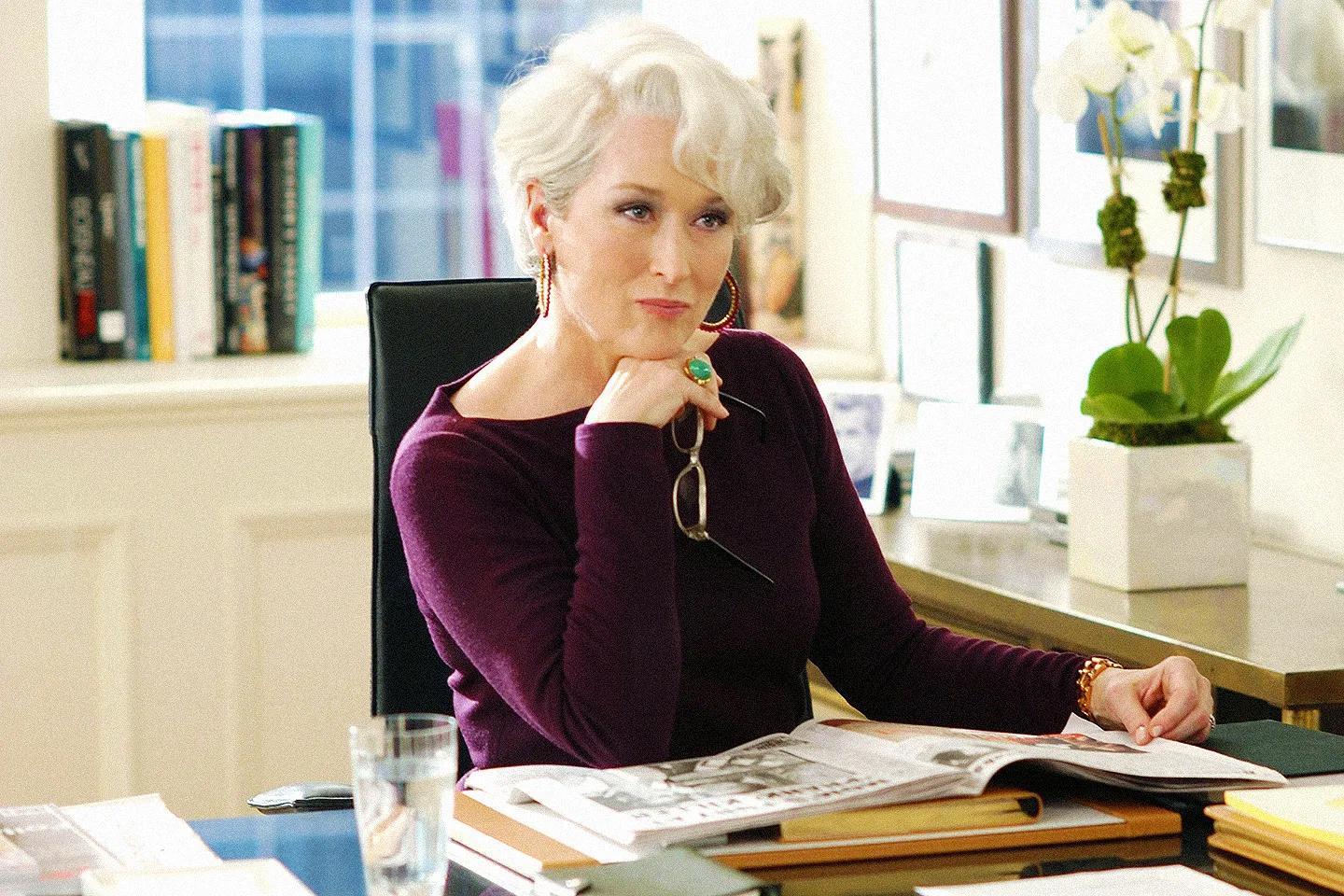
Adrian Grenier is at the center of the most overbaked cinema take of the 21st century. Over 20 years, the pithy observation that Grenier’s Nate is the real demon of 2006’s The Devil Wears Prada has crystallized into unassailable fact, and Meryl Streep is to blame.
Streep’s portrayal of Miranda Priestly—the editor in chief of fictional Vogue stand-in Runway—is so deep, electric, and resonant that you’d rather dunk on Anne Hathaway’s shitty Entourage boyfriend than look into the abyss of Priestly’s eyes. To embody this version of Anna Wintour, the Oscar-winning actor created a character totally distinct from her. It’s a performance of spirit over mimicry. The cerulean sweater monologue can be bullshit in fact because the essence of Priestly’s worldview is rendered with such clarity. Streep doesn’t approximate Wintour or revel in caricature. Instead, she builds something as mythic as it is human. Priestly is villainous, but never evil. She’s cold, exacting, and meticulous because that’s what her world demands. So let’s not give Vince Chase too much credit; there’s only one devil that deserves to claim Prada. —Holmes
21
Isabelle Huppert as Erika Kohut, The Piano Teacher (2001)
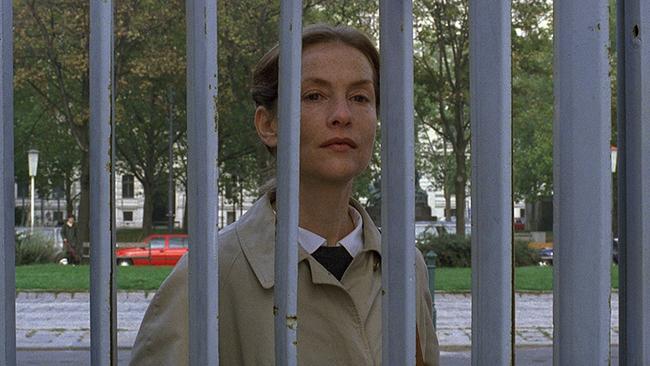
Although she had been a fixture of French art house cinema for decades by that point, it wasn’t until she starred in Michael Haneke’s brutal critique of the bourgeois psyche that Isabelle Huppert became not only an international star but also the epitome of French class (and twistedness) across the world. Erika, an über-strict and antisocial piano teacher in Vienna, can relate to other people only through domination and submission. She hopes to have found a suitable companion in Walter (Benoît Magimel), a young prodigy too confident and cocky to let her aggressive disdain get to him. Huppert is glacial, until she’s not: Her cold heart melts when she begs Walter to sexually dominate and humiliate her, which he refuses, disgusted. Yet even then, Huppert doesn’t choose the easy route. It isn’t simply that Erika’s emotions have been repressed and need to burst out in a messy explosion of tears; rather, she has lost all connection to her feelings, and they take her by surprise. Tears roll down her face, but it remains expressionless whether she’s listening to Walter’s beautiful piano playing or stabbing herself in the heart. Haneke is often criticized for his own cruelty, but Huppert managed to make us feel for Erika, without betraying her deep-rooted iciness—a performance that paved the way for her turn in Paul Verhoeven’s Elle, where she helped another misunderstood sicko explore the dark end point of misogyny. —Lazic
20
Lupita Nyong’o as Adelaide Wilson/Red, Us (2019)
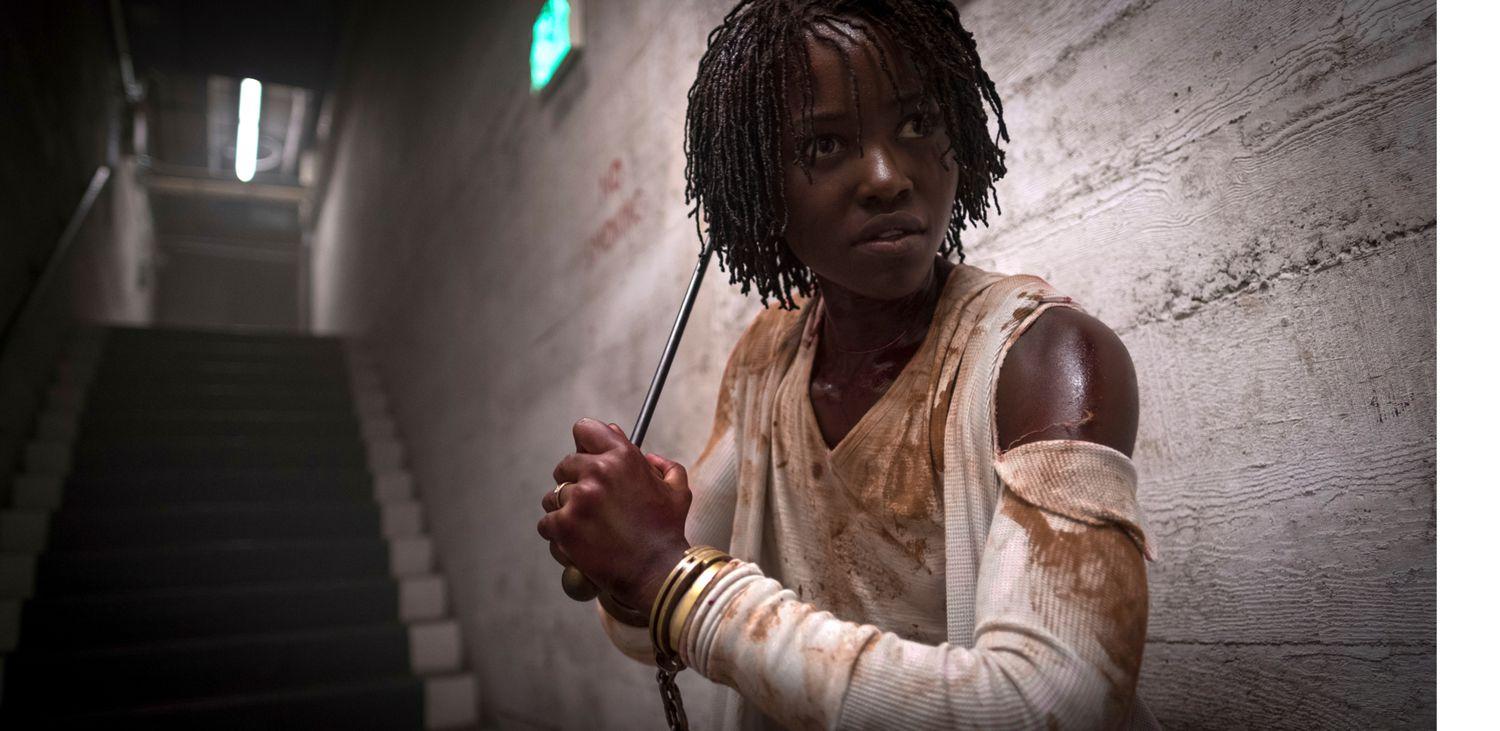
Jordan Peele quickly established himself as one of the sharpest, most provocative filmmakers of his generation thanks to his innovation, wit, and attention to detail—but Us is the closest he’s come to letting a film get away from him. It skews convoluted and too often leans on overly explanatory dialogue to compensate. Yet it’s still completely gripping and effective thanks to a pitch-perfect performance by Lupita Nyong’o, who holds the film together by balancing its twists and turns along with her two characters, Adelaide and Red.
It’s hard to imagine an actor tasked with capturing more precarious emotions on-screen. On paper, Addy is a caring mother facing a scary situation with a sense of humor—coaching her son to keep up with the beat of “I Got 5 on It” and later teasing her daughter about who has the highest kill count in the family. Seems simple enough. But Nyong’o imbues her with just a hint of imbalance—maybe it’s how she wields her trusty fireplace poker with sudden aplomb against the Tethered or the twinge of sadness she feels toward her children’s Tethered. Red, on the other hand, is a looming shadow who speaks in a guttural murmur that allows Nyong’o to really showcase the talent that has also made her a successful voice actor. Those pregnant pauses in the middle of words (“Careful, he has a t—emper”) are just about the most terrifying thing in the movie.
The revelation at the end—that, spoiler, Adelaide was the original Tethered and took Red’s place as a child—clicks everything in place, and suddenly Adelaide’s discomfort and Red’s menace take on a whole new meaning. Nyong’o’s is a deep, layered performance that rewards rewatches, but seeing her closing smirk the first time immediately cemented its canonization. —Ress
19
Laura Dern as Nikki Grace/Sue Blue, Inland Empire (2006)
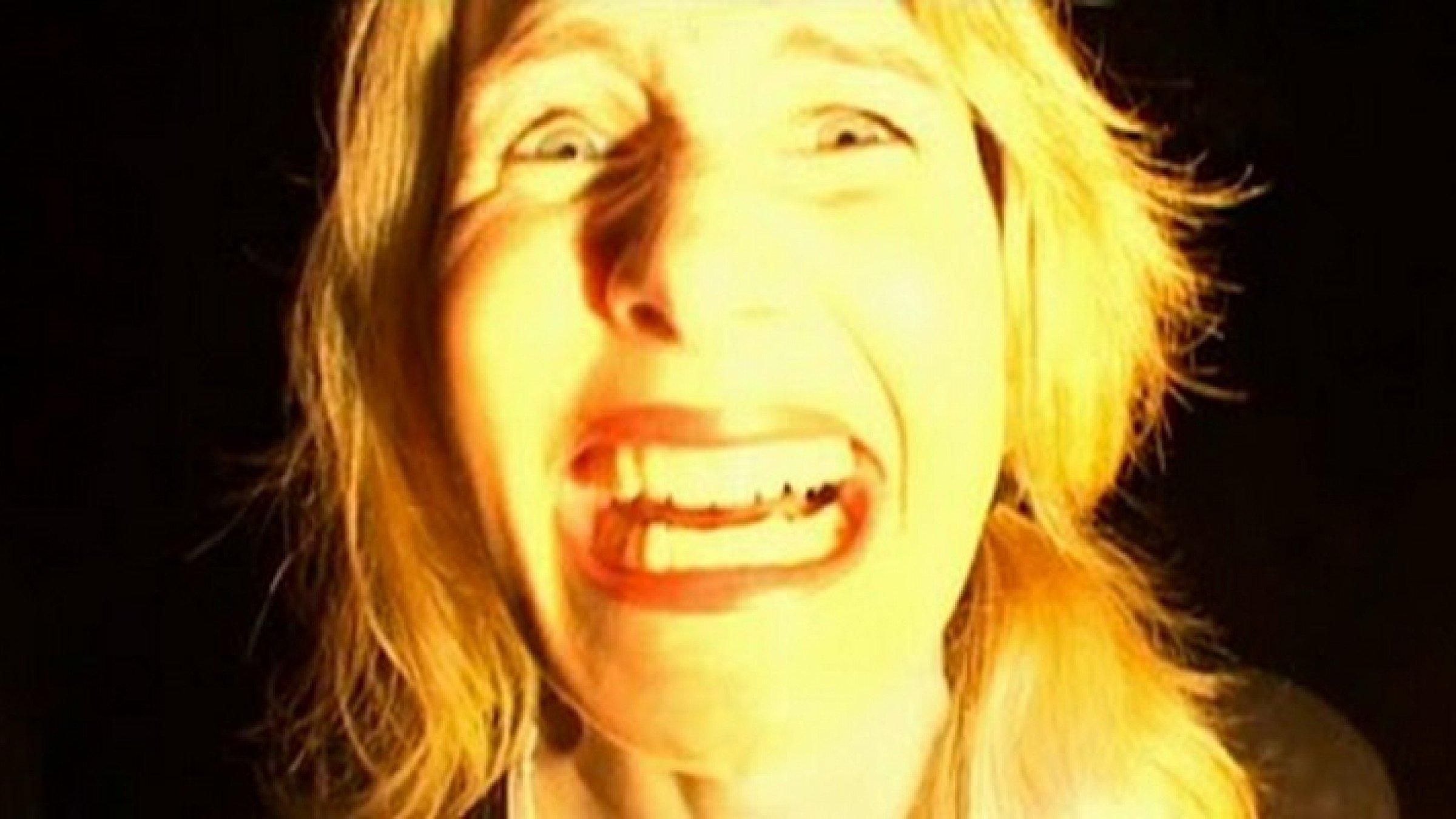
Nikki Grace is an actress, but at its most bone-chilling, Inland Empire reminds the viewer that Laura Dern is as well. David Lynch’s final feature film, which began as a series of no-stakes riffs with Dern and a digital camera, follows Grace as she—and Sue Blue, her character in a cursed film production, and perhaps Dern, and perhaps, simply, all women—gets lost in the folds of space-time. The specifics of what lies beyond each corner of a hastily constructed soundstage house or motel room door in Łódź vary, but the bottom line is oblivion. While Dern was excellent in Blue Velvet and Wild at Heart (and would be again in the third season of Twin Peaks), here she becomes the definitive vehicle for Lynch’s larger project: documenting the ways women are abused by men, acutely and in the aggregate, their pain commodified and fetishized. That Dern can move so fluidly between the slightly ineffectual Grace, the effete Blue, and the snakebitten snarl of the unnamed woman detailing rapes in the dark room above a nightclub defies understanding—which is exactly Lynch’s point. —Thompson
18
Adam Sandler as Howard Ratner, Uncut Gems (2019)
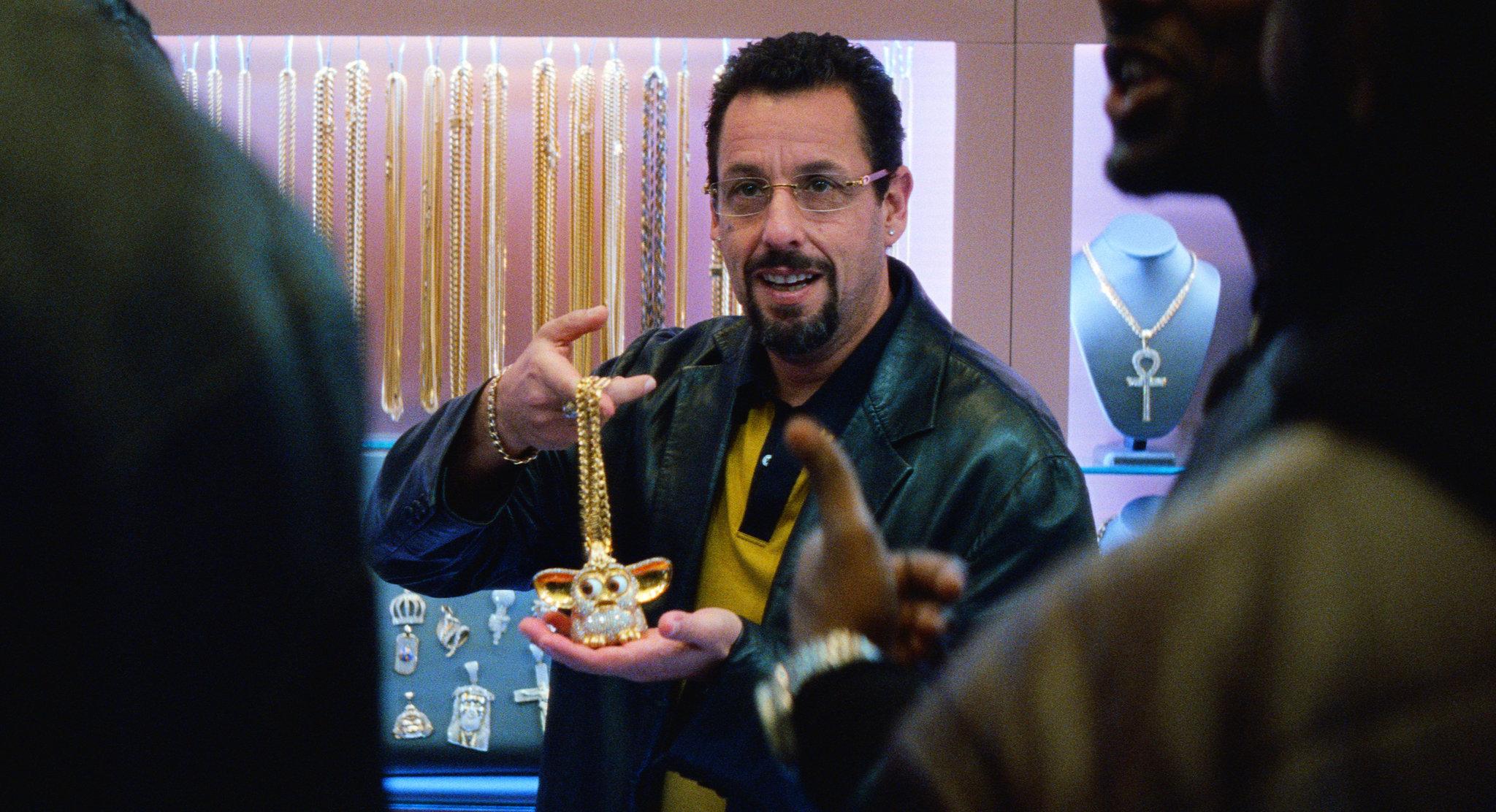
In Punch-Drunk Love, we already had proof that Adam Sandler can be a compelling dramatic actor; it’s just easy to forget when we’ve been subjected to some truly cursed films like Jack and Jill, Pixels, and The Ridiculous 6 over the years. After Uncut Gems, however, we’ll never doubt the Sandman again. As New York jeweler and gambling addict Howie Ratner, Sandler is a ball of frenetic energy—constantly chasing the next big bet even as his debts continue piling up. The highest compliment I can give to Sandler is that being in Howie’s chaotic headspace for two-plus hours was the cinematic equivalent of a panic attack. But despite being so loathsome, Sandler makes you root for Howie to survive his self-imposed high-wire act. A character who could so easily devolve into caricature feels tragic—even, on some level, relatable. Sandler has never been better. That’s history right there, you understand? —Surrey
17
Daniel Kaluuya as Chris Washington, Get Out (2017)
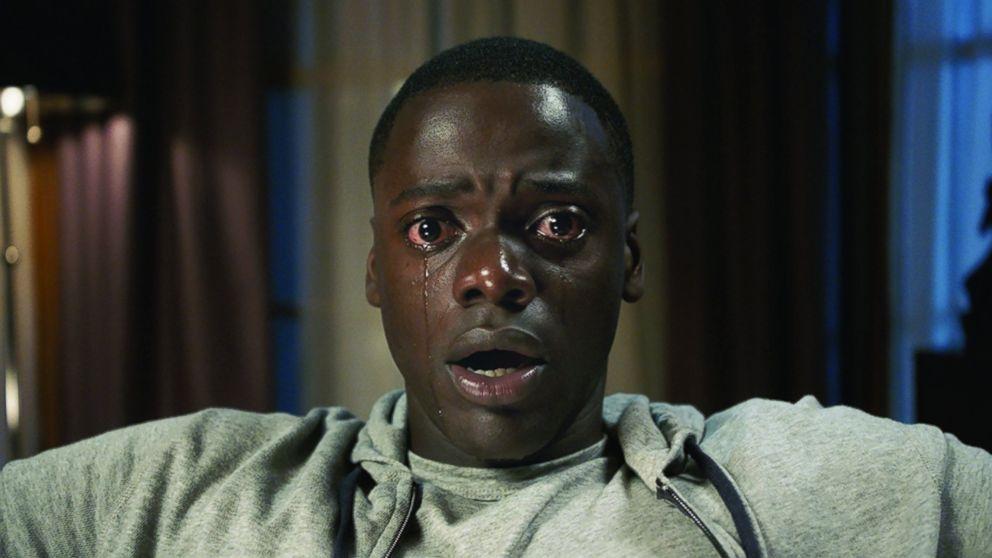
Daniel Kaluuya had a stellar run from 2018 to 2023, starring in films such as Black Panther, Widows, Queen & Slim, Judas and the Black Messiah, Nope, and Spider-Man: Across the Spider-Verse. And it was all thanks to his breakthrough performance as Chris Washington in 2017’s Get Out.
Jordan Peele’s directorial debut is a clever and captivating psychological thriller that satirizes the idea of a post-racial America in ways that can be as comical as they can be terrifying. Chris, a young Black photographer, is thrust into a quiet weekend getaway with his white girlfriend and her family that turns into a much larger event involving dozens of white guests visiting the family property. Kaluuya’s understated performance finds that sweet spot in between Peele’s comedy and horror as Chris navigates every uncomfortable microaggression and tense situation with a restrained yet weary grace.
Get Out—and Kaluuya’s performance—peaks in its introduction of the Sunken Place. Catherine Keener’s Missy Armitage hypnotizes Chris in a spellbinding sequence, breaking down his well-guarded walls to unpack the traumatic loss of his mother that he experienced as a child. Kaluuya imbues Chris with a palpable sense of fear, his face contorting between nervous laughs as he slowly loses control of his body and free will. When Missy finally triggers his consciousness’s sudden descent into the Sunken Place, all that remains is Kaluuya’s haunting expression, his face frozen in place with his mouth agape and tears streaming down from his widened, flitting eyelids. It’s as iconic as any image in modern horror cinema. —Chin
16
Toni Collette as Annie Graham, Hereditary (2018)
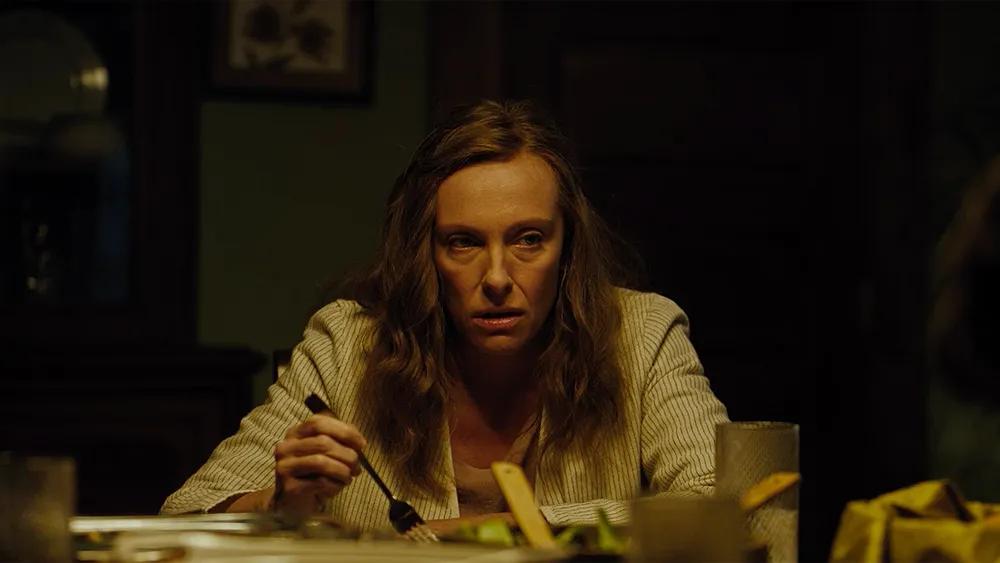
Hereditary is about Toni Collette’s face, and what she can do with it, probably even more than it’s about cursed families or missing heads. In any given moment she slides between rage, horror, regret, grief, possession, and fascination, and she can be as terrifying as any other bump in the night at the Graham family home—something familiar turning into something uncanny. As Annie, Collette’s walking a fraying wire between the relative normalcy of the family life she’s created (made literal in her obsessive, disturbed miniatures) and the batshit inheritance left by her demon-worshipping mother. Like any tragic character, she has no say in which side she’ll fall on when that wire breaks, and her face lets us know every time she slips a little closer to Paimon’s side of things.
What Collette is doing can’t be learned; there’s a quality to her strangled screams and especially to her face that just seems innate (and pretty unfair to any actors who might want to imitate her). And like a woman possessed, she doesn’t even seem to be in control of whatever’s animating her; she’s channeling some subterranean force to make Annie’s grief feel real, and to fill us with abject horror as she gets closer to the darkness. —Hunt
15
Oscar Isaac as Llewyn Davis, Inside Llewyn Davis (2013)
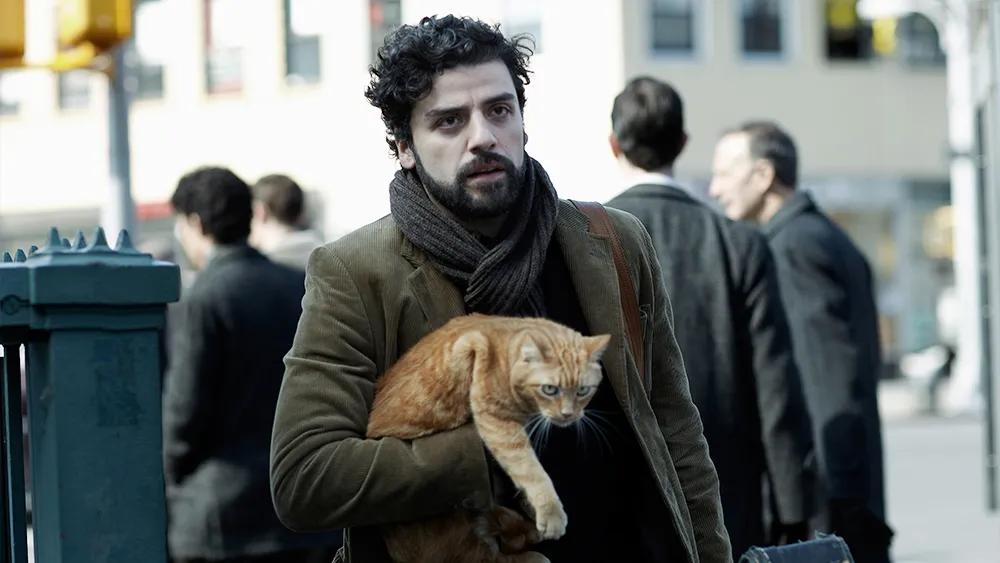
Llewyn Davis is tired, penniless, and, most of all, fucking freezing. Seriously, can someone get this guy a winter coat? He’s couch surfing through 1961 New York City, chasing down an orange tabby, and trying to hold his life together by the thinnest frayed thread—and on top of it all, he’s freezing his ass off. It’s one of the cruelest realities of life: Sometimes, it can get worse.
Outside of a couple of memorable supporting roles, Oscar Isaac was a relative unknown when the Coen brothers cast him as their finger-plucking Greenwich Village folk devotee for 2013’s Inside Llewyn Davis. His musicality was a bonus—he did all his own singing and guitar playing, and his renditions of traditional folk songs “Fare Thee Well” and “The Shoals of Herring” are particularly lovely—but Isaac also brought a world-weariness to the role that simply can’t be taught. Llewyn isn’t necessarily all doom and gloom, and he even tosses off funny one-liners. (“Have you ever heard the expression ‘It takes two to tango’?”) But there’s something in his eyes—the way they soften when he sings, only to glaze over when told, “I don’t see a lot of money here”—that knows the semblance of a dream he’s clinging to is terminal, but it still hurts to watch it die.
These days, although we still root for him, Isaac is closer to his on-screen counterpart than we thought he would end up being back in 2013: The guy who was supposed to be the guy and never quite got there. But we’ll always have Llewyn Davis—life left him out in the cold, but he brought Isaac closer than he’s ever been to the warm glow of transcendence. —Ress
14
Christoph Waltz as Hans Landa, Inglourious Basterds (2009)
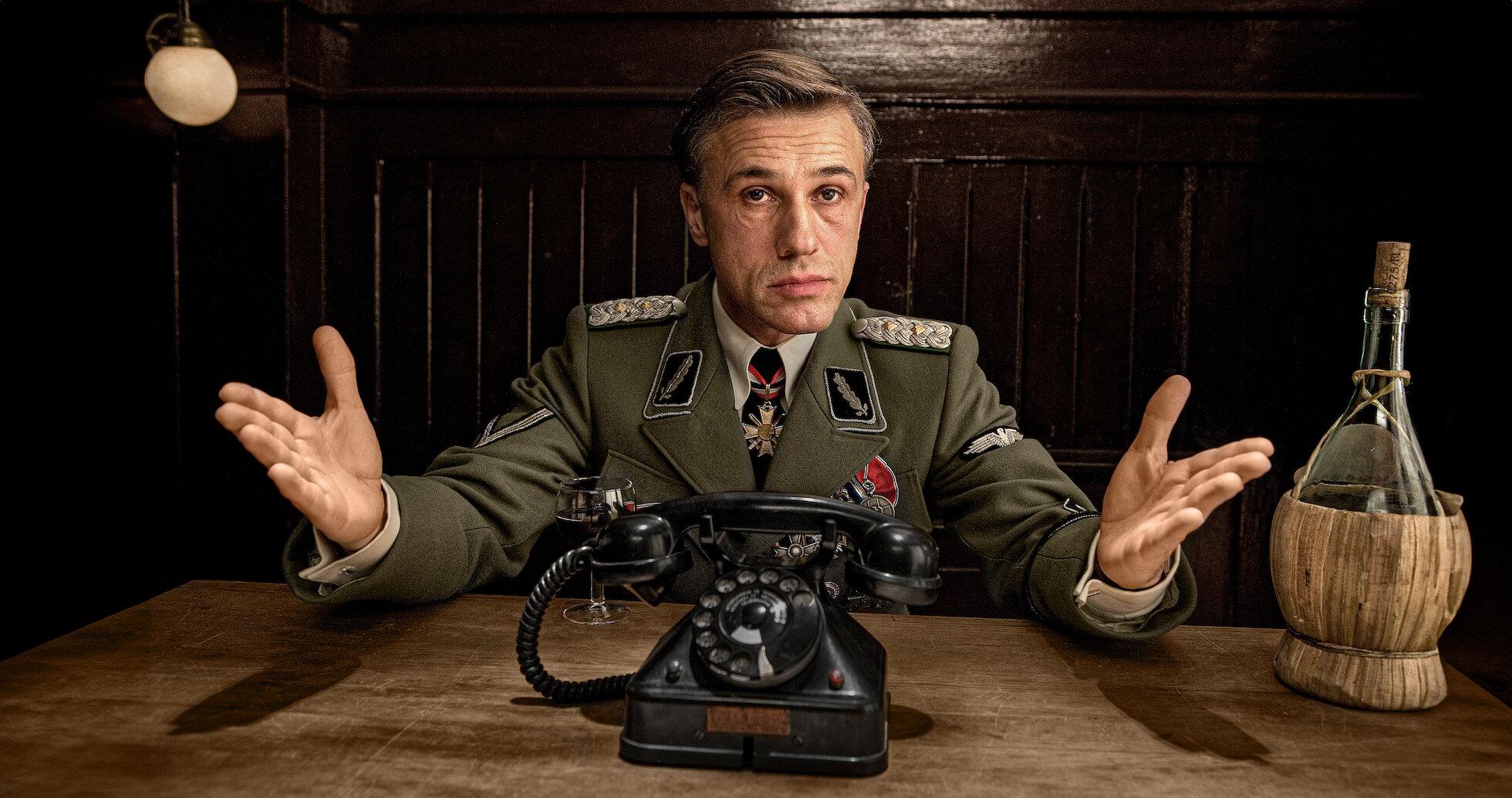
Quentin Tarantino has created countless memorable characters in his films, so it’s high praise when he says that Hans Landa is the best one he’s ever written. We can’t argue with that: The moment Landa shows up in the opening scene of Inglourious Basterds—interrogating a French dairy farmer who’s hiding a Jewish family from Nazis—is a master class in sustained tension. Of course, it’s one thing to have a character that works on the page; you need a great actor to bring them to life on-screen. In Christoph Waltz, Tarantino found a diamond in the rough. A relative unknown outside his native Germany, Waltz does for Landa what Anthony Hopkins once did for Hannibal Lecter: maintains a polite facade and toys with his prey until he’s ready to strike. You can’t take your eyes off Landa, even when you know it’s only a matter of time before he does something horrible. (When he attacks Diane Kruger … terrifying!) Like Hopkins, Waltz earned an Oscar for his performance and catapulted into the mainstream. Nothing in Waltz’s career has come close to matching the brilliance of Landa; then again, we never get on a pitcher’s case when they can’t throw another perfect game. —Surrey
13
Leonardo DiCaprio as Jordan Belfort, The Wolf of Wall Street (2013)
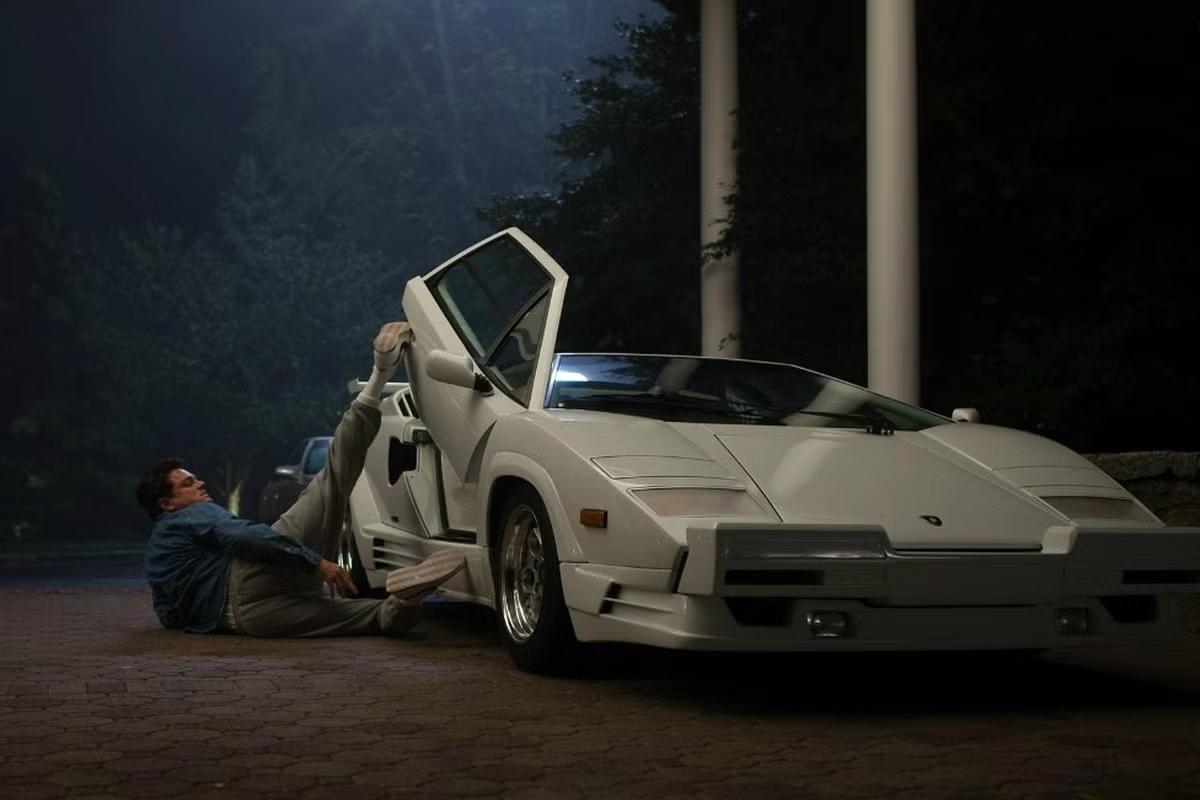
The most underrated performance in Leonardo DiCaprio’s filmography is his role as Frank Abagnale Jr. in Catch Me If You Can, in which Leo cranks his charisma to stratospheric levels and takes the audience on a ride—while still finding room for a deeper study of the character. His performance in The Wolf of Wall Street is almost exactly like that, with just a lot more cocaine. Jordan Belfort does a lot of fucked-up things in this movie, from abusing little people to bastardizing the American economy; he is petty, eternally stunted, all id. Obviously not a hero. Yet Leo is able to look directly into the camera (sometimes literally), stick his hand through the screen, and pull you into the passenger’s seat of his Lamborghini Countach. Weaponizing every cent of his goodwill and former status as a 2000s heartthrob, DiCaprio makes it so you never want to take your eyes off of him, even as Belfort’s behavior grows in obscenity.
Ever since the premiere of The Wolf of Wall Street, Martin Scorsese has faced criticism that his film glamorizes a truly irredeemable man. But Scorsese isn’t the one forcing you to fall in love with Jordan Belfort. That’s all Leo. —Gruttadaro
12
Mahershala Ali as Juan, Moonlight (2016)
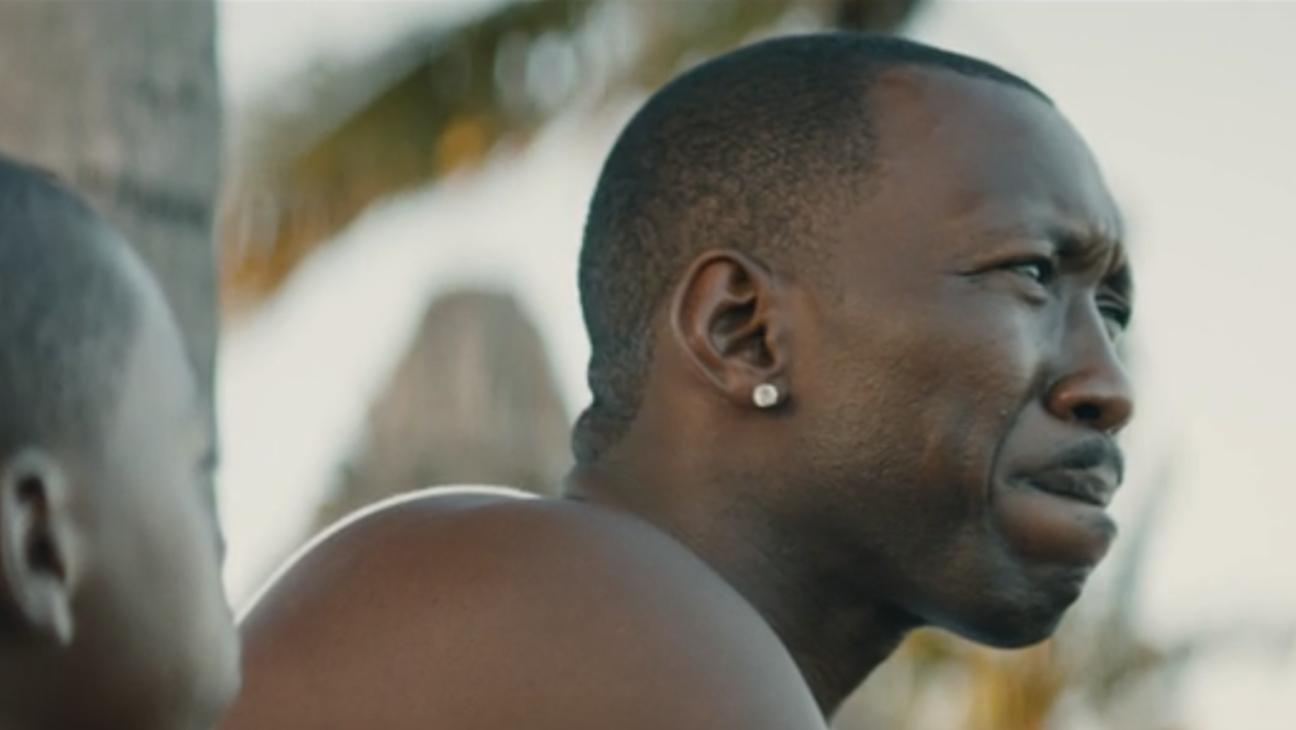
He’s on-screen for all of 20 minutes. He dies—off-screen—before the second act even starts. Doesn’t matter. Mahershala Ali is unforgettable. As Juan, the drug dealer who finds Chiron, Moonlight’s protagonist, while he’s hiding from childhood bullies, Ali embodies an impossible set of contradictions. He’s a protector and a father figure to Chiron, whom he treats with genuine love and care; he’s also the man selling crack to Chiron’s mother, helping trap the little boy in the cycle that’s endangering him in the first place. He’s open-minded and independent, teaching Chiron, who’s gay, that only you get to decide who you are; he’s also weighed down by the guilt of the life he’s chosen. He doesn’t make perfect sense. In other words, he’s a human being. A lot of writing about Ali’s role in Moonlight treats Juan as a focal point for the theme of Black masculinity, but what amazes me about Ali’s characterization is how fiercely individual it is. Juan isn’t a symbol. He’s alive. He’s himself. The beach scene! The stakes of a performance rarely feel higher than this; performances almost never feel more alive. —Phillips
11
Song Kang-ho as Kim Ki-taek, Parasite (2019)
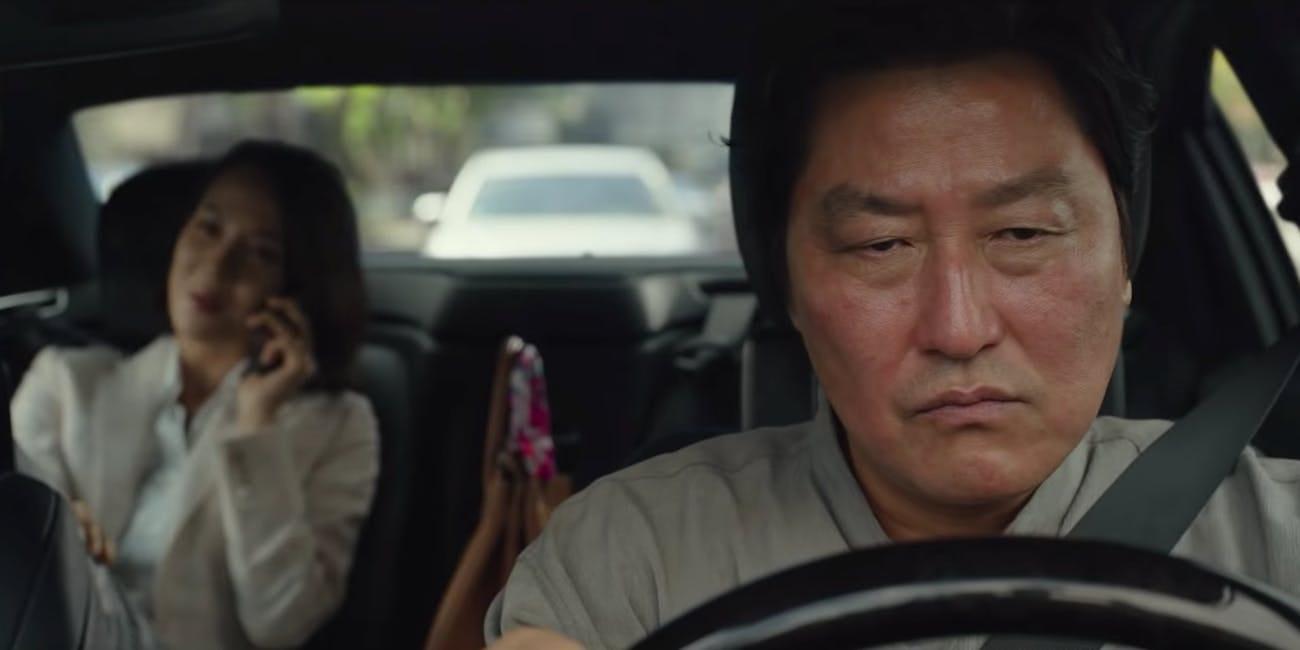
Song Kang-ho is one of the world’s greatest actors, as well as the muse of one of its greatest filmmakers: Bong Joon-ho. Song easily could have (and perhaps should have) also made our list for his performance in Bong’s masterful Memories of Murder. But the South Korean actor gained international fame for his role in the Oscar-winning Parasite, the first non–English language film to ever win Best Picture. And while it may not be as flashy as his turn as detective Park Doo-man in Memories of Murder, Song’s subtle performance as Kim Ki-taek in Parasite is just as impactful and may be an even more impressive feat of acting.
In Kim Ki-taek, Song transforms himself into a man who is hilariously—and even dangerously—frugal. He’ll go to absurd lengths to save money or make some quick cash, always searching for a new scheme to help lift his desperate family out of poverty. Parasite begins as a more lighthearted satire that centers on class inequality before descending into a full-blown thriller. It’s a wild and unexpected shift, one that is anchored by Song’s performance.
“This film starts with a story of average neighbors and builds to something extreme,” Bong told The Atlantic in 2019. “To cover that wide range, I thought Song Kang-ho would be the best to handle it. Especially in the climax; his character doesn’t have any lines—it’s the subtle changes in his muscles, the subtle tremors, that have to convince the audience of the entire film. Song has that strength as an actor.”
Song exhibits a full spectrum of emotions through simple, measured movements and changes in facial expressions, whether he’s silently reacting to the shame of hearing his employers discuss his distinct stench or he’s watching his basement home flood around him in hopeless, painful defeat. Parasite is an extraordinary film that The New York Times recently named the best movie of the 21st century, and Song is crucial to its groundbreaking success. —Chin
10
Kirsten Dunst as Justine, Melancholia (2011)
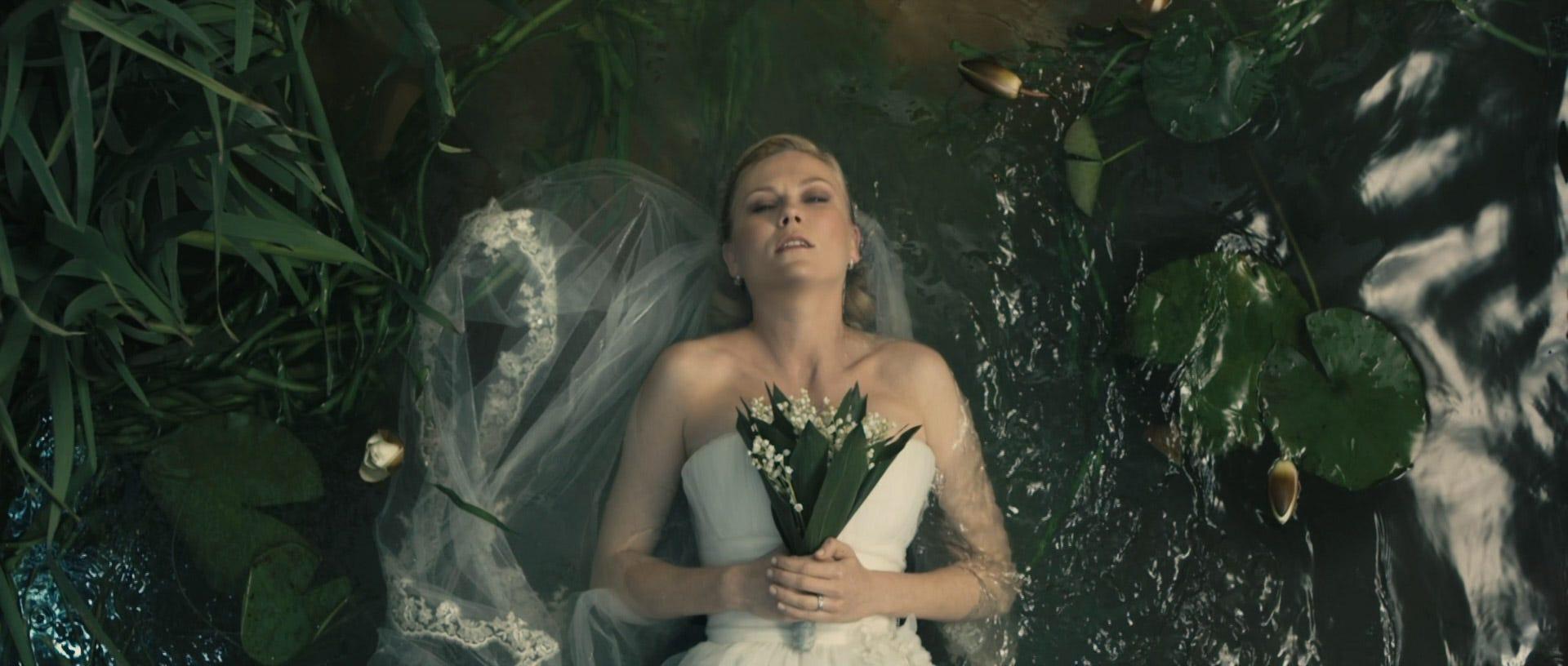
Justine, the main character played by Kirsten Dunst in Lars von Trier’s Melancholia, is damned and beautiful, luminous and dolorous, spiraling and serene. At the center of the haute-doomsday film about worst-case scenarios, Justine is frustrating at first and freed at last, a bottomless well of whatever all the while. “I brought my own slant,” Dunst told British Elle in 2011 about the role, “but I am very much portraying Lars’s experience of depression. We met before I did the movie and talked about how the light goes out of your eyes.”For a time, Dunst’s expressive, depressive performance in Melancholia was overshadowed by a looming, destructive anomaly of sorts—in the form of von Trier’s unwelcome, viral ramblings during a 2011 Cannes press conference. But in the years since, as audiences have visited or returned to the film, it’s Justine who has proved to be Melancholia’s enduring gravitational force. Dunst successfully dims her radiance for the good of this role. Still, you can easily see she’s a star. —Baker
9
Joaquin Phoenix as Freddie Quell, The Master (2012)
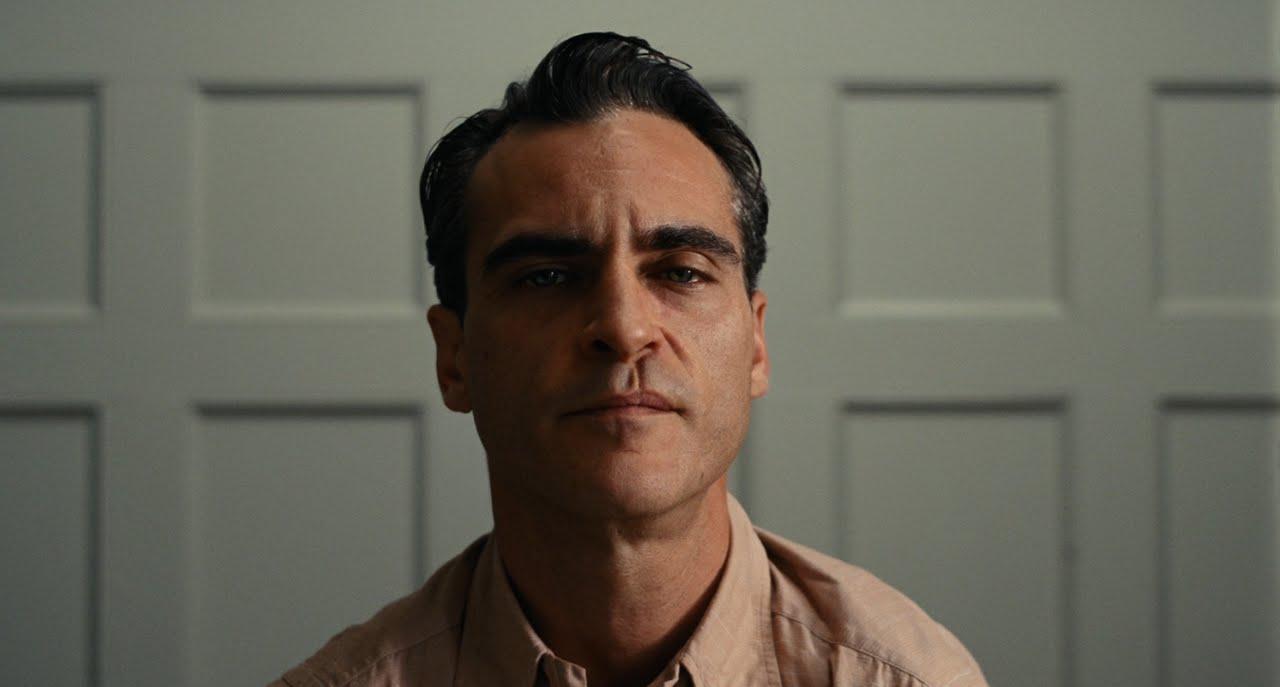
From body to mind does Joaquin Phoenix map his maladjusted misfits. Is there an actor alive who can reveal more of a stunted psychology with the mere clench of a jaw or the jut of a bony shoulder? The Master is his master class, a profile of haunted, volatile postwar masculinity told in telltale alien mannerisms: the crooked, sideways curl of his mouth, the boyish impatience of how he stands, curvy as a question mark, hands clutching his sides. As Phoenix plays him, Freddie Quell is pure id, a creature (or “silly animal,” to quote Philip Seymour Hoffman's charlatan religious guru, Lancaster Dodd) driven by his appetites and impulses. He farts, he fights, he fucks the beach, he smashes a toilet, but beneath these showboating outbursts of primitive emotion, the possibility of a deeper soul (or perhaps a thetan awaiting liberation) tantalizingly, even tragically glimmers. You look at this dog-loyal, half-mad disciple and want to unpack the enigma of his existence; he's a Rorschach test, just like the one Freddie reads as a porno mag in the opening minutes of Paul Thomas Anderson's enduringly mysterious character study. —Dowd
8
Jesse Eisenberg as Mark Zuckerberg, The Social Network (2010)
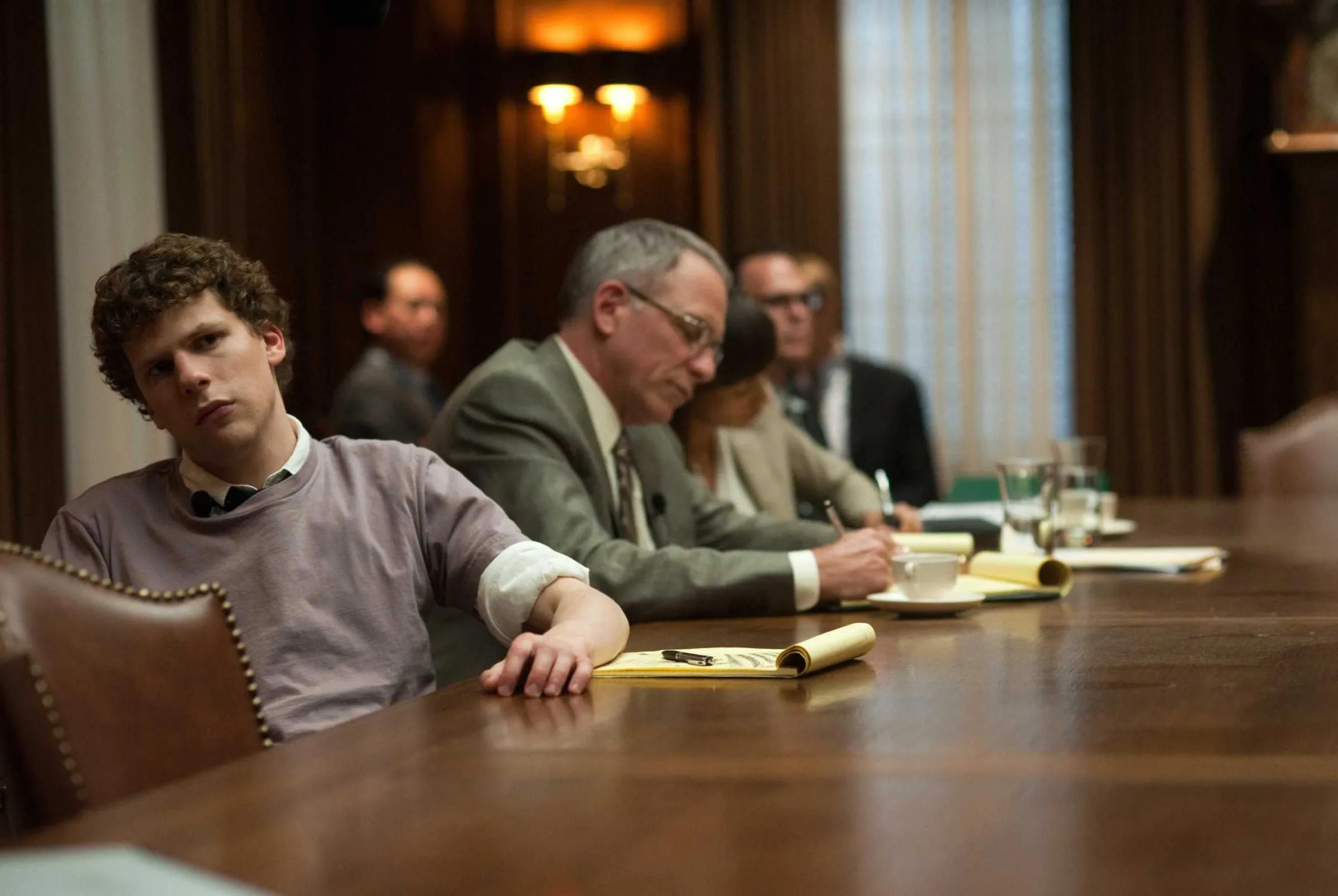
The film editor who worked on The Social Network once told me that whenever he came across the name Mark Zuckerberg in the news, the face that flashed through his mind belonged to Jesse Eisenberg. I could relate: Sometimes, I have to remind myself that “If you guys were the inventors of Facebook, you’d have invented Facebook” is an inspired Aaron Sorkin–Eisenberg alley-oop and not, like, real-life Zuck footage that I must’ve come across on 60 Minutes once. Eisenberg’s bitter patter, clipped condescension, and wounded pride in The Social Network may not be an exact impersonation of Zuckerberg, but it’s something more lasting: the embodiment of both the guy and a generation.
Eisenberg had neither a Facebook account nor any familiarity with Zuckerberg when he took the role. (He was in the car driving to Facebook HQ unannounced to see whether he could stroll in and shake hands with the man himself when producer Scott Rudin and the studio’s legal department called off this pavement-pounding recon mission. Eisenberg settled for listening to a lot of Zuck interviews.) Director David Fincher’s advice? “Figure out a way to remain an enigma,” Fincher remembered. “Be more opaque,” Eisenberg recalled. The resulting character study is both intimate and aloof, curated and revealing. Even all these years later, that’s what a Facebook profile is all about. —Baker
7
Denzel Washington as Detective Alonzo Harris, Training Day (2001)
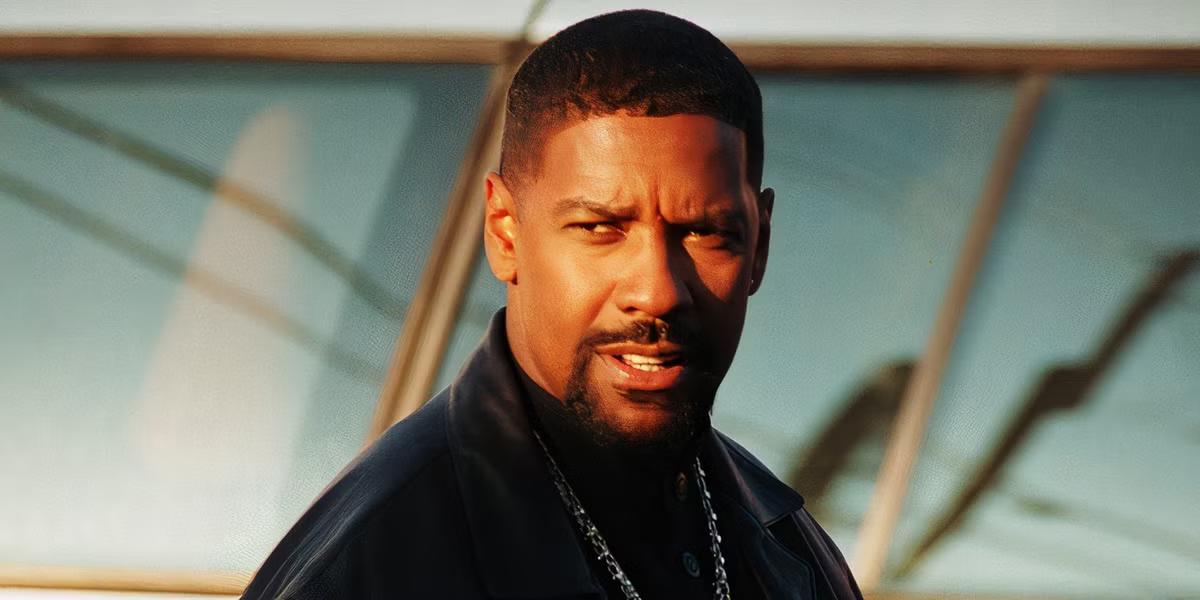
There are many Denzel struts—the ones that make you straighten up in your own seat (see Malcolm X), the ones so chilly they leave frost in his footprints (see American Gangster), the ones that prompt all sorts of hollers to all sorts of lawds (see Mississippi Masala or Inside Man). None of them, though, are quite as mean-spirited, houndish, or just plain predacious as Alonzo Harris’s Training Day stride. A dastardly pattern of movement, innately and meticulously constructed, each step translates, roughly, to a challenge: Try me.
For most of the film, no one does. You understand why, without a word. So, yes, there’s more to the sculpting of Denzel’s most villainous turn—the bravado, the frightfulness, the comedic acrobatics, the sheer irrepressible charisma—but it’s all synthesized, here, within this gait. Before “King Kong ain’t got shit on me” and unconsenting sherm hits, there was one foot in front of the other, and another after that. The secret, in this way, to Denzel’s greatest 21st-century performance is that he walked so that he could run. How else would you know where the threat was coming from? —Pryor
6
Heath Ledger as the Joker, The Dark Knight (2008)
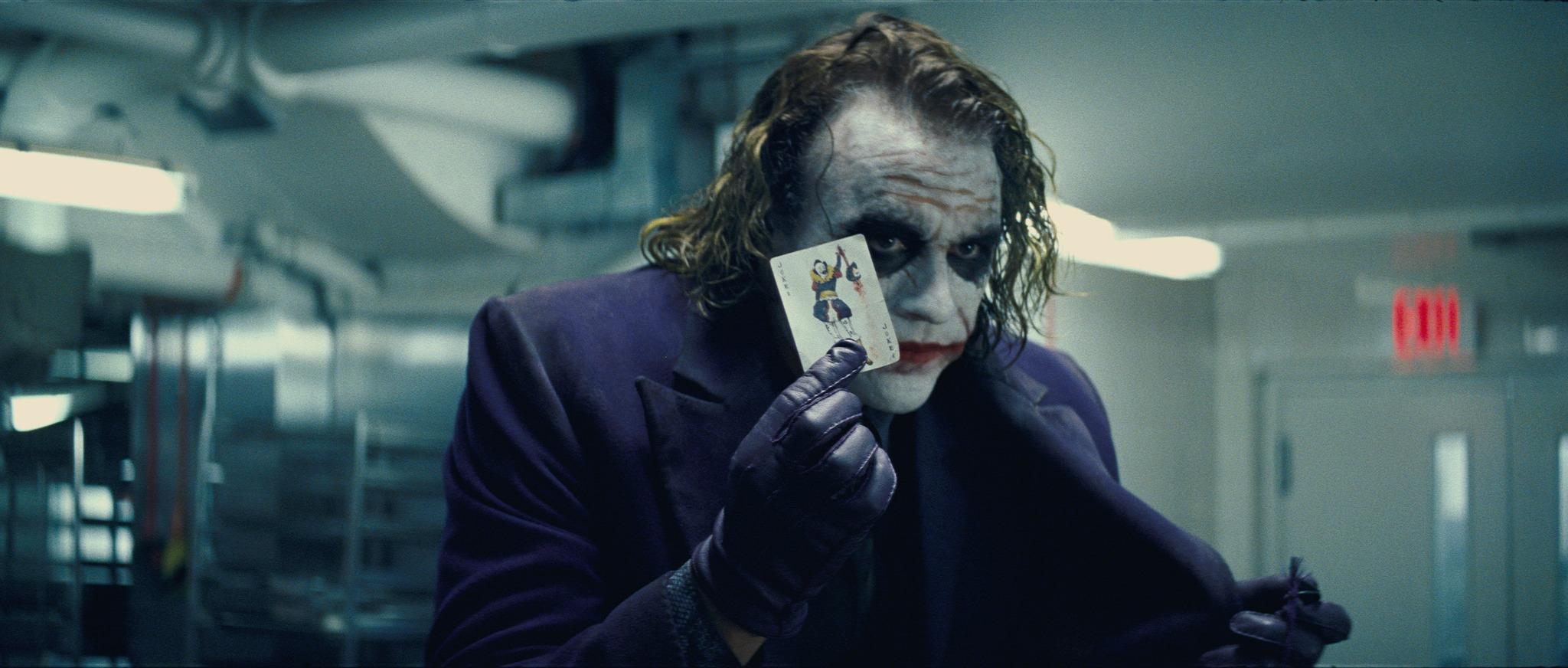
In 2025, it’s easy to forget how nervous—or outraged, even—Batman fans were about the casting of Heath Ledger in the role of the Joker in 2006. Until that point, the Australian actor was best known for being a heartthrob in romantic comedies, from 10 Things I Hate About You to A Knight’s Tale, and for his Oscar-nominated turn in 2005’s Brokeback Mountain. Bat-stans couldn’t fathom Ledger becoming the iconic villain who had existed in comics, TV, and film dating back to the 1940s, with memorable on-screen performances from the likes of Jack Nicholson and (the voice of) Mark Hamill. Yet, these days, Ledger’s take on the Joker in The Dark Knight is widely considered the definitive portrayal of the Clown Prince of Crime.
Ledger’s transformation in The Dark Knight is so convincing that it’s hard to believe that—somewhere beneath all of that messy clown makeup—the actor who serenaded Julia Stiles on those high school stadium steps could be the same guy performing magic tricks for Gotham’s mob bosses. Ledger is terrifying, hilarious, and mesmerizing as Batman’s archnemesis, stealing every scene he’s in while serving as the primary engine for the greatest superhero movie ever made. It’s fitting, then, that he became the first actor to earn an Oscar for a role in a superhero flick, with Ledger posthumously honored as the Best Supporting Actor at the 2009 Academy Awards following his death the previous year. He would remain the only actor to achieve the feat for a full decade, until Joaquin Phoenix stepped into the same role for 2019’s Joker—and it feels safe to say that the billion-dollar film would have never existed if Ledger hadn’t redefined the villain in The Dark Knight. —Chin
5
Javier Bardem as Anton Chigurh, No Country for Old Men (2007)
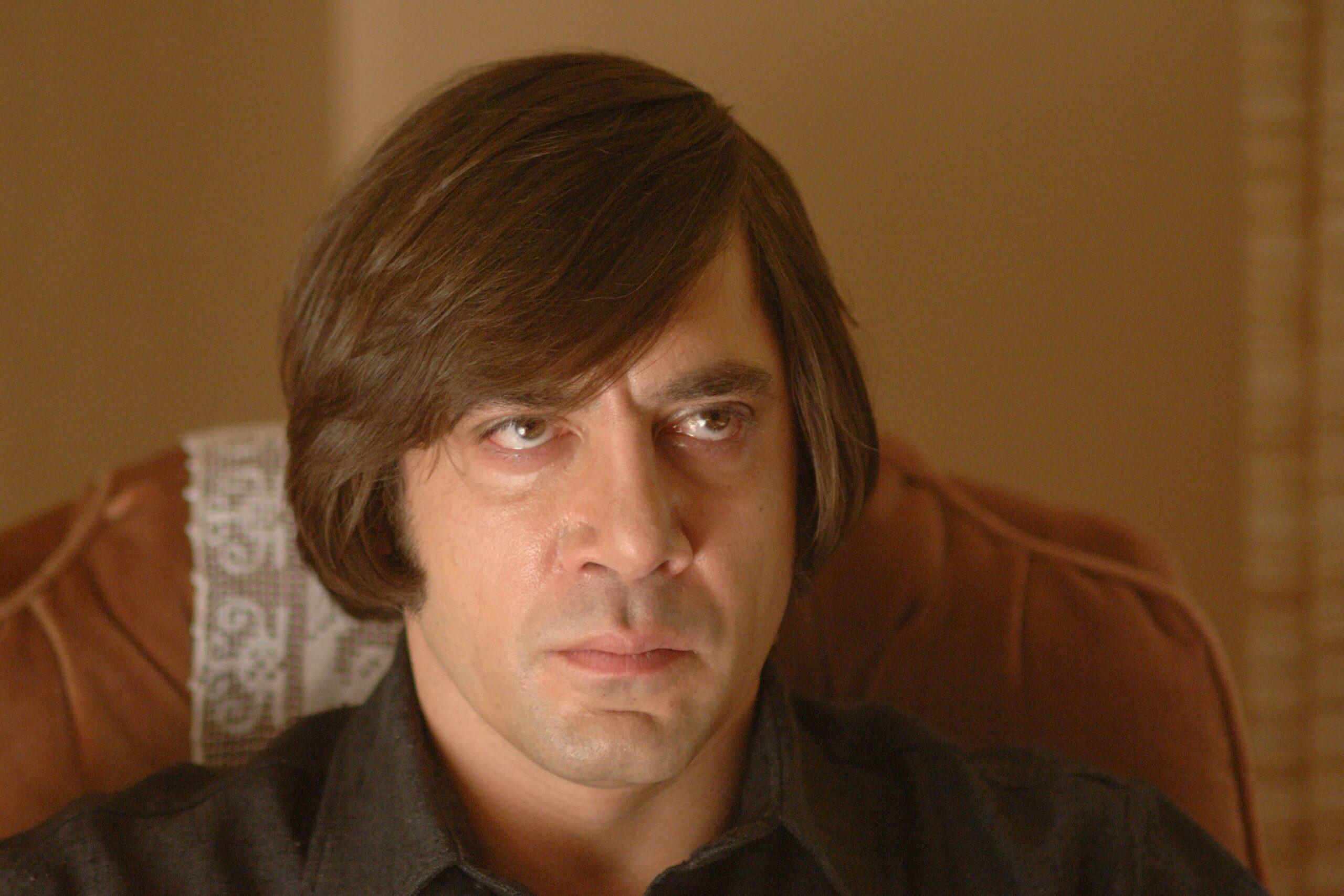
Some actors chew scenery. In his Oscar-winning performance in Joel and Ethan Coen’s No Country for Old Men, Javier Badem quietly liquefies it with his mere presence on-screen. As Anton Chigurh, Bardem gave us a villain more terrifying than his mop top. Within mere weeks—maybe even days—of the film's release in November 2007, Chigurh became an iconic movie villain on par with Hannibal Lecter and Nurse Ratched. Bardem is measured but unfiltered; he kills coolly and calmly but has a warm smile. His silhouette, a captive bolt pistol by his side, increases heart rates and sweat production.
Bardem channels the menace of Chigurh through an absence of anything recognizably human behind his unprepossessing brown eyes. He doesn’t play evil with a wink. Instead, Bardem’s performance is completely absent of exaggeration. It’s mechanical and weirdly polite, as exemplified by the coin toss with Kelly Macdonald (“I got here the same way the coin did”) and the calm way he asks for the coin toss in the gas station (“Call it, Friend-O”).
In a film full of silence and stark and striking landscapes, Bardem fills the space with a dread so thick that you could choke on it. It’s a performance that stalks you. Seventeen years later, we’re still scared to call heads. —Wittmer
4
Cate Blanchett as Lydia Tár, Tár (2022)
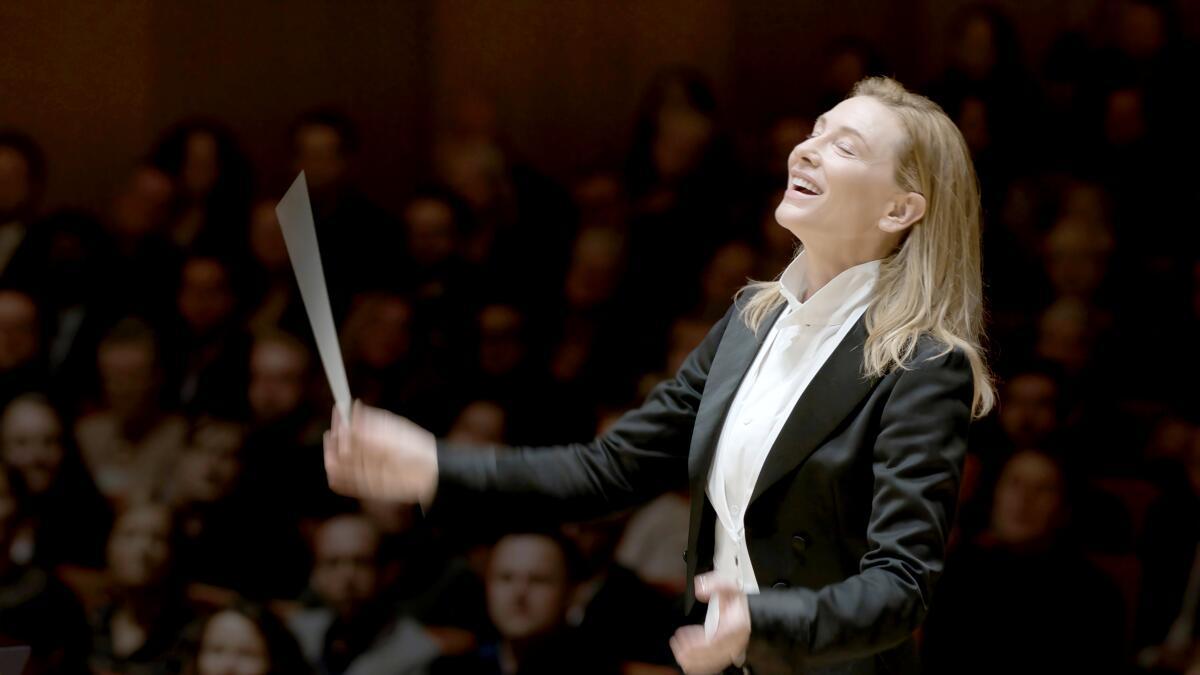
Lydia Tár (née Linda Tarr) is a germophobe. We see the stress that touching other humans gives her; we watch as she tries and fails to scrub herself adequately clean in the apartment she keeps in Berlin, its tasteful clutter arranged just so. The implication—that someone who cultivates a sense of the exotic, who claims to speak on behalf of Indigenous groups to the white elite, cannot handle any intrusion into her body—is at direct odds with the steely public persona the character has created for herself. Cate Blanchett, at turns terrifying and terrified, has never been better. See especially the scene when she has lunch with a cellist who hopes to play in Tár’s orchestra: Whether the allegations of sexual impropriety are true or not, Lydia here is a predator resting patiently on her haunches. —Thompson
3
Philip Seymour Hoffman as Lancaster Dodd, The Master (2012)
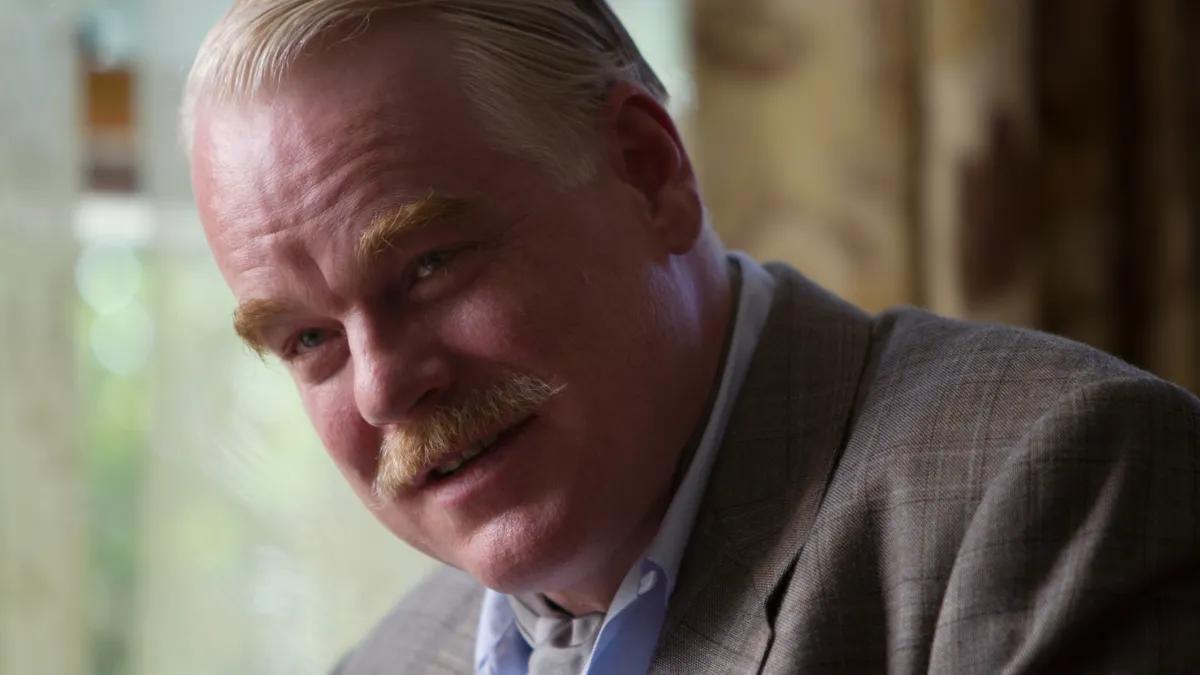
Close your eyes and think about the cult leaders you’ve seen portrayed in movies—the David Koresh stand-ins with long hair, spewing pseudo-intellectual musings with their questionable charisma. Then think of the challenge Philip Seymour Hoffman had in The Master—how he had to be radiantly respectable on the surface, rotten to the core beneath, presenting a veneer that masked deep-seated insidiousness. Truth is, we could’ve gone with any number of PSH’s performances in the 21st century—it greatly pains us to leave his work in Doubt, Capote, Charlie Wilson’s War, Along Came Polly, and especially Synecdoche, New York on the cutting-room floor—but it ultimately felt right to go with the role that captured him at his loudest and quietest, his most charming and most villainous. The processing interrogation in the bowels of the boat—where Hoffman’s L. Ron Hubbard avatar, Lancaster Dodd, and Joaquin Phoenix’s Freddie Quell volley back and forth—is on the short list for best-acted scenes of the century, but there are plenty of indelible moments to choose from: the hand job, the unexpected motorcycle send-off, the volcanic detonation of “pig fuck.” The Master is also PSH’s final major work outside of the Hunger Games franchise, which conjures a heartbreaking question: If he had lived past the age of 46, would he have had another role that surpassed this? —Sayles
2
Daniel Day-Lewis as Daniel Plainview, There Will Be Blood (2007)
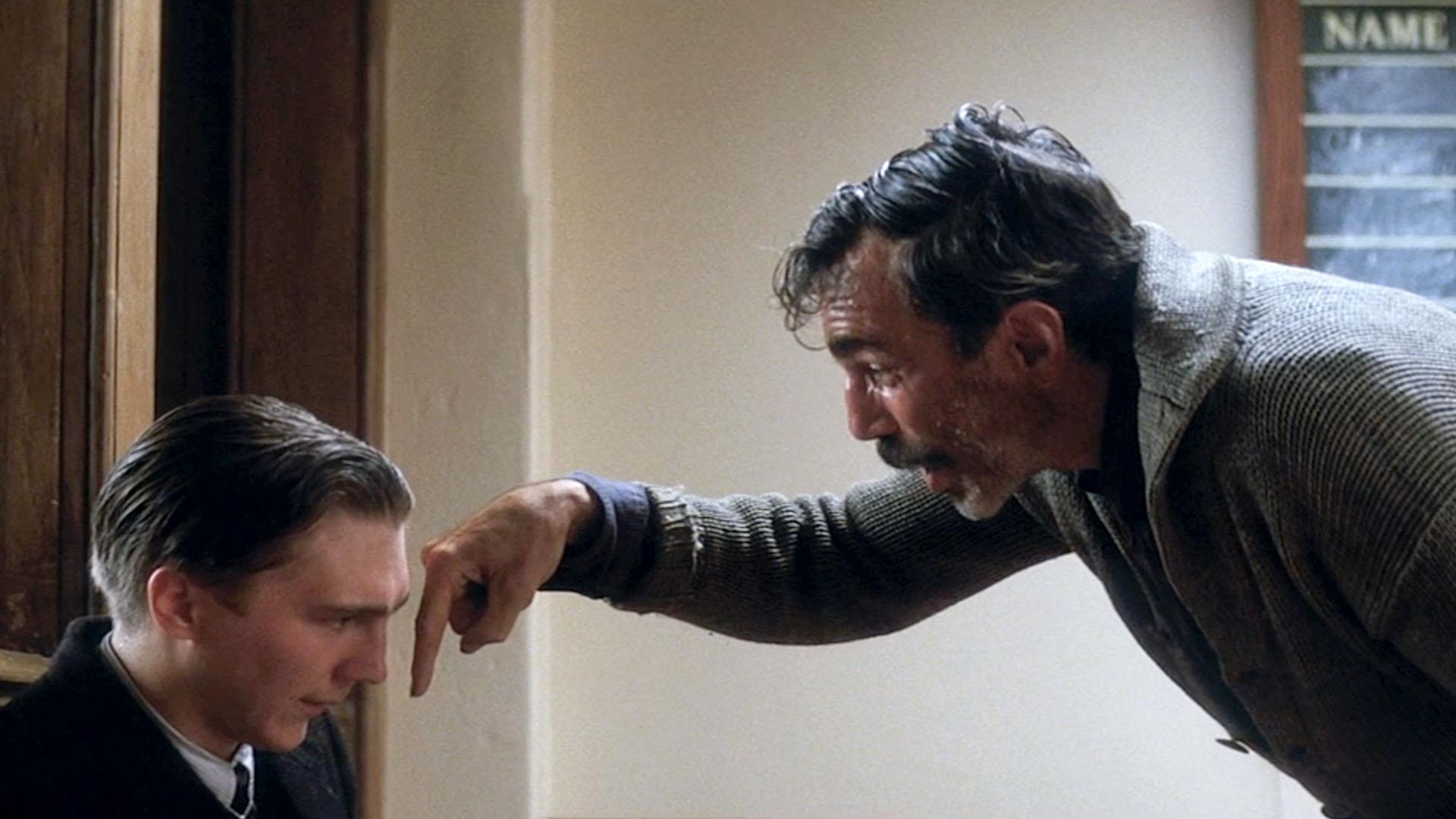
In Paul Thomas Anderson’s career-defining—and century-defining—2007 epic, There Will Be Blood, Daniel Day-Lewis drills a hole. As Daniel Plainview, he digs deeper and deeper into the sub-humanity of man and the black heart of American history. Plainview has a competition in him, and Day-Lewis has a way of making it seem like all of that bile is ever on the verge of bursting out of his veins, through his skin. When it’s quiet, as There Will Be Blood often is, there is still a seething—and when it gets loud, Day-Lewis conjures sounds more reminiscent of a demonic beast, or a derrick, than a man. There are too many scenes here that are the scene, a testament to both Day-Lewis’s command and the nearly insurmountable task put before him: to carry a Great American Film on Plainview’s crooked legs. When Plainview announces “I’m finished!” to his butler as the end-credits score swells—minutes after delivering the now-iconic “I drink your milkshake” monologue, seconds after panting maniacally over his rival’s bludgeoned skull—it can be heard as a declaration of accomplishment. He has dragged us into the hole with him, covered us in blood and black gold until we can’t find the way out. This is one of the defining performances not just of the 21st century but in all of American cinema—a totemic, epic work against which all other so-called “great” performances must be measured. —Gruttadaro
1
Naomi Watts as Betty Elms/Diane Selwyn, Mulholland Drive (2001)
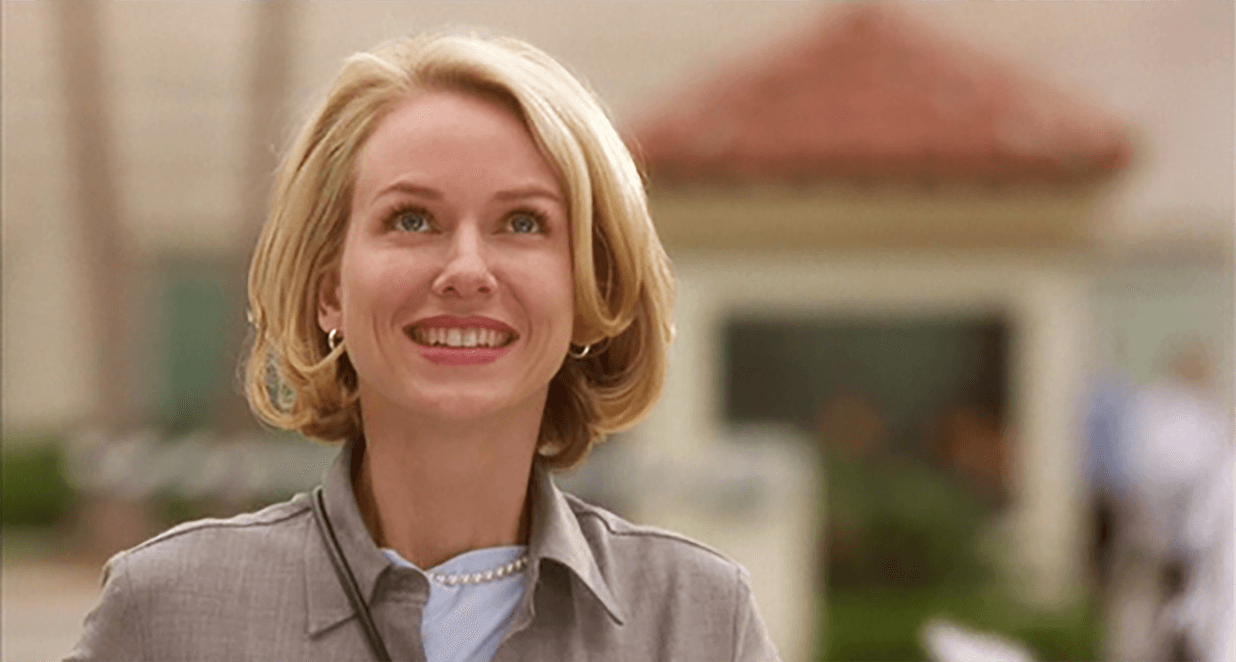
“I just came here from Deep River, Ontario, and now I’m in this dream place. Well, you can imagine how I feel.” The dream place in Mulholland Drive is Los Angeles; the dreamer is Betty Elms, a small-town girl, Canadian as apple pie, hoping to conquer Hollywood Babylon on her own well-scrubbed terms. We don’t have to imagine how she feels because Naomi Watts makes Betty’s emotions—her actorly ambitions, her romantic yearning, her desire to transcend her own jitterbug contest winner origin story—so plangent and sincere that any boundaries between her headspace and our own get dissolved.
There’s a sense of cosmic irony that a movie explicitly dramatizing the ingenue-to-movie-star pipeline ended up playing like a self-fulfilling prophecy. Watts was 31 and mostly unknown when David Lynch cast her on the basis of a headshot (“This is the girl”). She emerged out of the other side of her soul-and-body-baring tour de force in Mulholland Drive as an A-lister sought by every director in the business. The mid-film sequence in which Betty (who’s been nervously prepping for her big audition in between palling around with Rita, the amnesiac femme fatale she found passed out in her apartment) unexpectedly blows away a roomful of casting agents doubles, quite intentionally, as Watts’s own coming-out party. She’s so sexy and scary and surprising when delivering corny soap opera lines with weathered old Chad Everett that it doesn’t seem like there’s anywhere left for her to go.
At that point the movie doubles back and turns itself inside out, and Betty becomes somebody else entirely. It’s a great parlor trick, but it’s also deeply, ineffably sad. Every time I watch Mulholland Drive and our heroines enter Club Silencio I wince; when Watts wakes up as Diane (this is the girl?), I pine for sweet Betty. Over the past 24 years, I’ve probably talked about Mulholland Drive with a hundred different people who’ve had the same Pavlovian response to Watts’s work—a futile, desperate sense of possessiveness over a performance that belongs to history and to all of us. Well. You can imagine how we feel. —Nayman
